
Check out our all-day, agespecific options for campers from age 3 to 18 at da.org/summer !
Camps run from June 14–Aug. 6.



Check out our all-day, agespecific options for campers from age 3 to 18 at da.org/summer !
Camps run from June 14–Aug. 6.

Facebook: facebook.com/DurhamAcademy
Alumni on Facebook: facebook.com/DACavsAlumni
Twitter: twitter.com/DurhamAcademy
Alumni on Twitter: twitter.com/DurhamAcademyAl
Vimeo: bit.ly/DAcavsvimeo
LinkedIn: bit.ly/LinkedInDAAlumni
Instagram: instagram.com/DurhamAcademy
Alumni on Instagram: instagram.com/DACavsAlumni
Flickr: flickr.com/DurhamAcademy



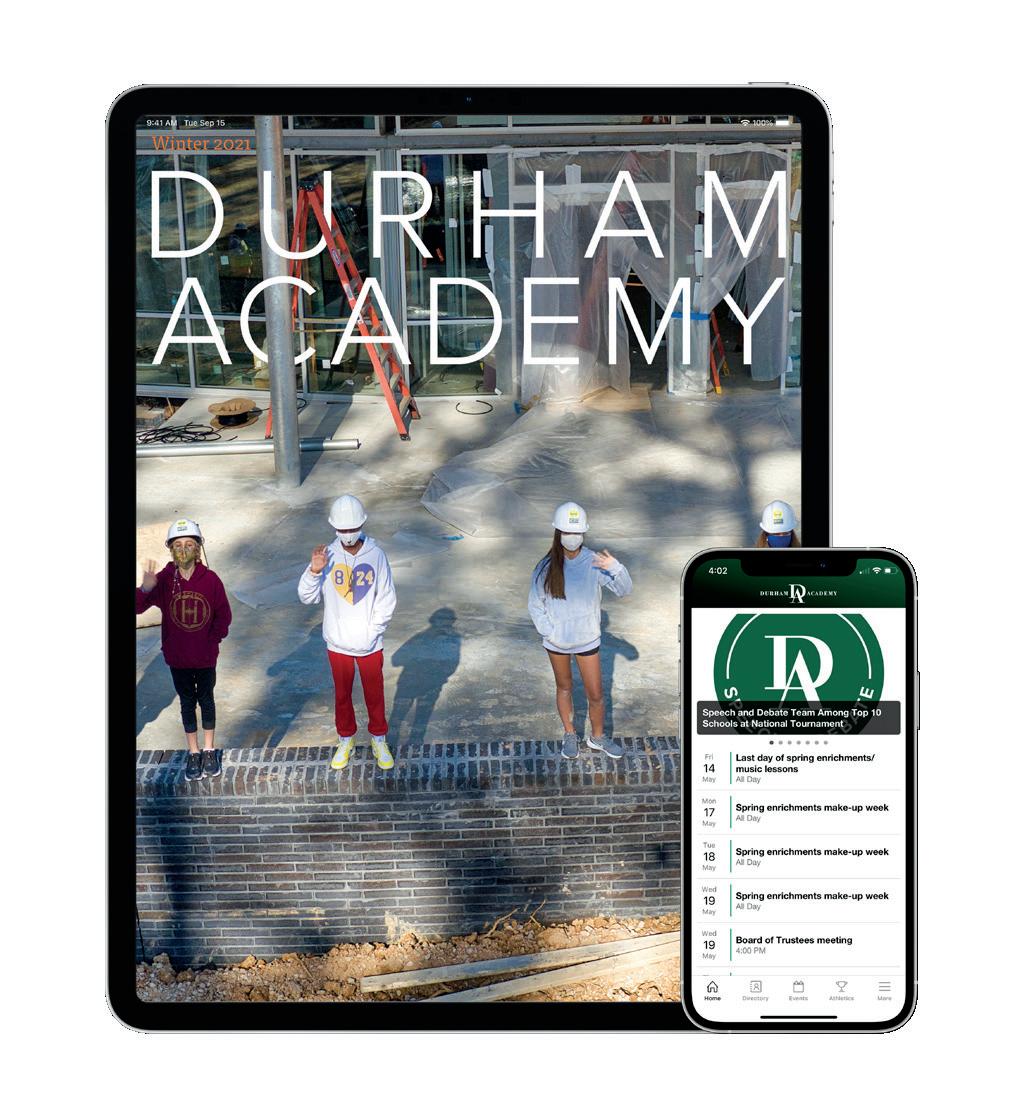
View the magazine online at da.org/magazine
The Durham Academy App is available in the Apple App Store.
26 — WITNESSES TO HISTORY, CLASS OF 2021 IS READY TO MAKE ITS OWN
In her commencement address, Becki Feinglos Planchard ’07 urged graduates to strive to be “authentically, happily, you.”
Members of the Class of 2021 reflect on a historic end to their Upper School careers.
46 — UNDAUNTED BY PANDEMIC, CAVS SET SIGHTS ON VS. CANCER FUNDRAISING RECORD
Over the last six years, a lacrosse tournament organized by varsity boys coach Jon Lantzy has raised more than $300,000 for Vs. Cancer.
54 — ‘A WHOLE WORLD OF STUFF WE CAN DO’
With the opening of the Arts & World Languages Center, the Middle School campus has o cially begun its transformation.
60 — WITH FOCUS ON SUSTAINABILITY, STUDENTS LOOK TO CREATE A BRIGHTER FUTURE
This school year brought the addition of a sustainability component to the required ninth-grade Self and Community course.
64 — WITH DEMAND AT AN ALL-TIME HIGH, OFFICE OF INFORMATION TECHNOLOGY ANSWERS THE CALL
Groundwork that was laid nearly two decades ago and a skilled team smoothed DA’s pivots to remote and hybrid learning.
On the Cover: Lea-Frances Briggs ’21 is one of the 110 Durham Academy seniors who joined the ranks of alumni this spring. For a window into what it has been like to finish out high school in a time of such history, check out the reflections of several seniors on page 30


Vol. 48 // No. 2
EDITORIAL
Kathy McPherson // Editor
Sarah Jane Tart // Art Director
COMMUNICATIONS communications@da.org
Leslie King // Director of Communications
Kathy McPherson // Associate Director of Communications
Melody Guyton Butts // Assistant Director of Communications
Sarah Jane Tart // Brand and Design Manager
Jesse Paddock // Videographer
Pat James // Social Media Strategist
CONTRIBUTING WRITERS
Bria Irizarry, Assistant Director of Athletics for Sports Information; Caroline Kantz ’26; Arsh Parekh ’26; Grace Gao ’26; Susan Ellis, Middle School PE teacher; Valerie Kennedy ’81; Michael Meyer, Upper School music teacher
CONTRIBUTING PHOTOGRAPHERS
Bob Karp; Dave Chandler; Andrea Caruso, Upper School science teacher; Vs. Cancer; Drive, Chip & Putt Organization; Braden Saba ’16
CONTRIBUTING ARTISTS
Emiliano García-Lopez ’23, Omar Pasha ’23, Ash Granda-Bondurant ’23, Kenzie Kim ’26, Grace Gao ’26, Anisha Horne ’26, Audrey Crowder ’26, Eric Cao ’26, Max Bartolo ’26, Tate Duensing ’26
CONTRIBUTING VIDEOGRAPHERS
Dave Chandler, Kaitlyn Kushner ’22
PRODUCTION
RR Donnelley // Printer LEADERSHIP
Michael Ulku-Steiner // Head of School
Caroline Rogers // Chair, Board of Trustees
Sterling Mah Ingui ’97 // President, Alumni Board
PHILANTHROPY AND ALUMNI AFFAIRS philanthropy@da.org
Michelle Morgan // Director of Philanthropy
Tim McKenna // Director of Alumni Philanthropy & Engagement
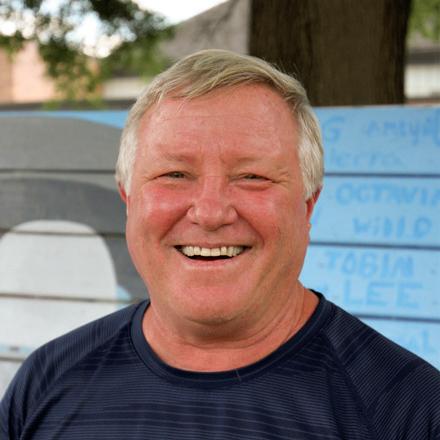
Chandler, a member of the O ce of Information Technology team, has flown his drone to document construction at the Middle School, capture DA events like prom and help create video tours for prospective families who were unable to visit campus due to the pandemic. See page 46.
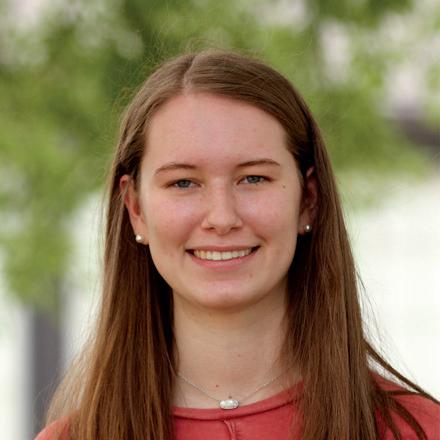
Kushner focused on commercial applications for video during two independent study projects and put those skills to work in a video of the Arts & World Languages Center. See page 54.
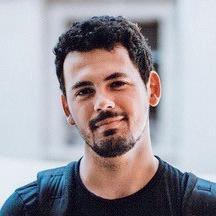
As a University of Pennsylvania student, Saba found a passion for photography, and last year, he put his talent to work making senior portraits for DA’s Class of 2021. This fall, he will begin medical school. See page 30.
Moral, Happy, Productive
10 — ZOE SINCLAIR ’22
The first step in dismantling racism, she says, is simply having a conversation.
14 — CAVS FIND ATHLETIC SUCCESS IN CHALLENGING YEAR
In a year in which little felt typical, DA student-athletes found a little sliver of normalcy on the soccer field, track, golf course and basketball court.
Faculty Spotlight: Upper School Math Teacher
20 — ASHU SAXENA
Following his passions — among them, math, teaching and soccer — has led Saxena to success and fulfillment.
38 — NINE CAVS COMMIT TO CONTINUING ATHLETIC CAREERS IN COLLEGE
DA student-athletes will compete at the Division I and Division III levels in golf, lacrosse, basketball, field hockey, baseball, cross-country and track and field.
52 — BROADENING PERSPECTIVES ON DISABILITY AND ACCESSIBILITY
Disability rights advocate and competitive athlete Max Woodbury helped students and faculty understand challenges he experiences in daily life — knowledge that will come into play as students take a fresh look at DA’s campuses.
58 — TURNING STORMWATER RUNOFF INTO A PLANT PARADISE
Through the Middle School’s Science In Action elective, students studied how changes to the campus a ect the ecology of the greater community — and then took action.
74 — UPPER SCHOOL ENGLISH AND ART HISTORY TEACHER JORDAN ADAIR IS HONORED WITH DISTINGUISHED FACULTY AWARD
Since arriving at DA in 1995, Adair has served as a role model for countless faculty and enriched the experience of hundreds of students.
79 — ATHLETIC HALL OF FAME TO WELCOME NEW CLASS
Alumni Spotlight
80 — COLLIN SUGGS ’08
82 — PARENTS’ COURAGE PAVED THE WAY FOR PROGRESS AT DA
84 — CELEBRATING TWO DECADES OF MUSIC AND FAMILY WITH IN THE POCKET
Alumni Spotlight
86 — TORSIE JUDKINS ’91
88 — WARD HORTON ’94, MOLLY SHAW ’98 AND VERLE REGNERUS RECEIVE ALUMNI AWARDS
90 — A SILVER LINING OF THE PANDEMIC: YOUNG ALUMS RETURN TO DA TO WORK AND VOLUNTEER
Alumni Spotlight
92 — SAMANTHA LANEVI ’14
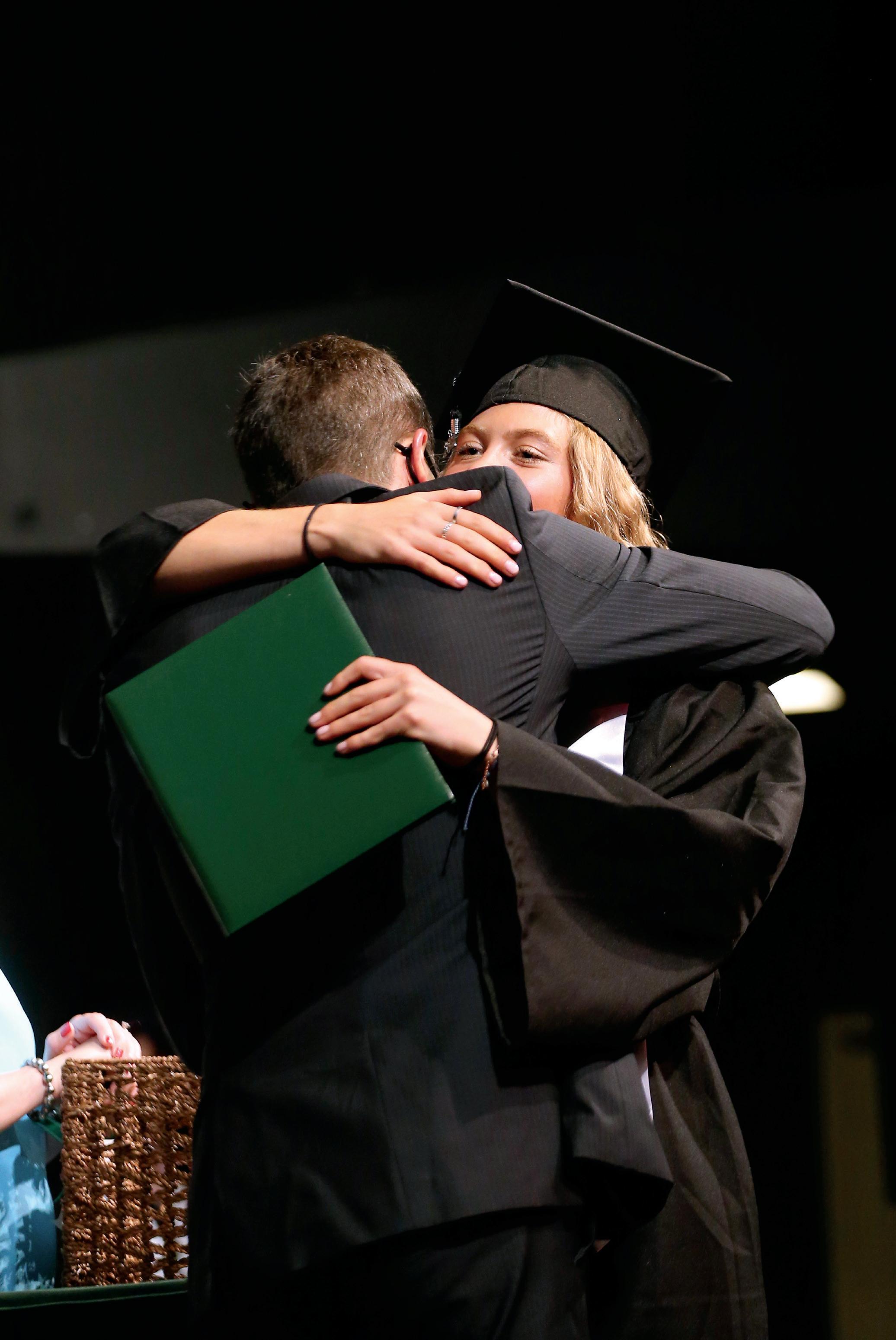
by
Our daughter graduated from Durham Academy last month, and it was not what we imagined it would be. It was terrible, beautiful, profound and unifying.
Commencement was a microcosm of these last 15 COVID-contorted months. We had planned and practiced an elegant and orderly ceremony. We began under blue skies. Then the universe intervened spattering rain and scattering our plans (and plastic rental chairs) to the wind. Within minutes, we moved 500 people (plus an electric piano, wooden podium, video cameras, 110 diplomas and the Durham Academy banner) into Kenan Auditorium. Speeches resumed. Diplomas were delivered. Grandmothers cried in person and via livestream in cities across America.
A senior parent emailed us soon after: “That was the greatest graduation ever. ‘THE Pivot’ in a year of pivots was hilarious beyond belief.” Said another, “Once the storm arrived, the tension was broken, everyone was rooting for you, and we were all in it together.”
We talk often about the volatile, uncertain, complex and ambiguous world that awaits our students. This year, that world did not wait. All of us were plunged into the muck of anxiety and improvisation. From wide-eyed kindergartners to weary-eyed administrators, we stretched like never before. Our teachers were heroic responding with generosity and grace to all kinds of taxing surprises. They squinted at screens, breathed through masks and reinvented their roles as they worried about themselves, their families, our students and the future of our country. With professionalism, creativity and care, they did what we once thought was impossible: “doing school” during a pandemic, safely on campus from August to June.
Among the many lessons we learned this year: We don’t have all the answers. Highly educated, highly organized, highly resourced societies rarely encounter riddles without solutions. COVID-19 may have been the rst such insoluble conundrum in the lives of our students. It won’t be the last.
Adversity fosters antifragility. “Some things bene t from shocks,” writes essayist and statistician Nassim Nicholas Taleb. “They thrive and grow when exposed to volatility, randomness, disorder and stressors. In spite of the ubiquity of the phenomenon, there is no word for the exact opposite of fragile. Let us call it antifragile. Antifragility is beyond resilience. The resilient resists shocks and stays the same; the antifragile gets better.” This year, DA and its students got better. “High school for us wasn’t just about getting that A, going to prom and cheering on athletic teams,” Emily Norry ’21 said in her commencement address (see page 26). “We had the unique opportunity to kickstart the rest of our lives. We haven’t waited for college or beyond to start being the people we are; our exposure to intense events in high school has a orded us the space to grow as individuals and gure out what matters to us and what we want to stand for.”
Gratitude is a superpower. While it was often tempting to feel cheated or deprived this year, we recognized our extraordinary privilege and rediscovered the simplest of pleasures. We will never take health, family and hugs for granted again. We will treasure our campus, our concerts and our class discussions like never before. The summer of 2021 may be the sweetest in American history in large part because it follows this terrible, beautiful, profound and unifying school year.
Michael Ulku-Steiner Head of School @MrUlkuSteiner
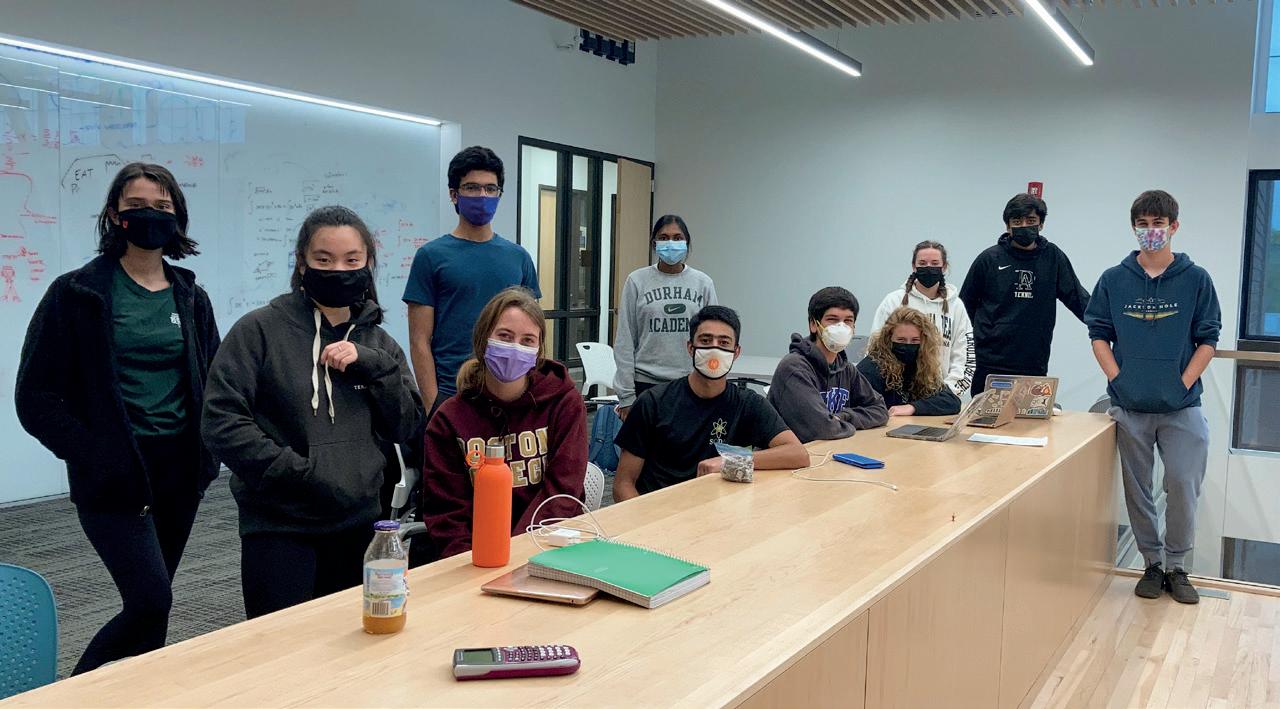
Durham Academy’s three Science Olympiad teams put forth strong showings at the all-remote regional competition, held Feb. 20 and March 6. The Upper School varsity team placed 10th, and the two junior varsity teams took fourth and sixth. With its performance, the Upper School varsity team earned a spot in the state tournament. Several students placed in their respective events, including Haley Fogg '22 and Julianna Hallyburton '22, who took fourth in Write It, Do It; Elizabeth Wong '23 and Joey Shaheen '21, who placed sixth in Rocket/Parachute Design; and Triya Venkataraja '23 and Kabir Khwaja '21, who finished eighth in Physics of Music while using a ukulele built by Cohen French '22. The duos of Brooke Adams '21/Mukta Dharmapurikar '22 and Nik Walling '21/Venkataraja also came in ninth in Chem Lab and Ornithology, respectively.

The Pediatric Brain Tumor Foundation announced its inaugural class of Lacrosse Vs. Cancer Ambassadors in August, and among the 11 current and former coaches and players honored was Durham Academy varsity boys lacrosse coach Jon Lantzy.
Lacrosse Vs. Cancer Ambassadors represent the athletic community’s shared resolve to raise awareness and funds for a world without childhood brain tumors. As the organizer of the annual Brine King of Spring Lacrosse Classic, Lantzy has helped raise more than $300,000 for Vs. Cancer. Read more on page 46

Eighth-grade language arts teacher Ginny Robinson filmed multiple segments for Fresh Quilting, a show produced in part by the Modern Quilt Guild (MQG), that aired on local PBS a liates across the U.S. in 2021. A two-time winner in the appliqué category at the MQG’s QuiltCon, Robinson talked about appliqué technique, designing quilt blocks from other traditional crafts and designing modern memory quilts.
“I was so curious about how TV shows are filmed, and I felt like I’d regret saying no, so I did it,” she said. “I was definitely out of my comfort zone, but proud of myself for committing to it and learning along the way.”
The Jack Linger Explorer Grant committee announced in April that six Durham Academy Upper Schoolers were awarded grants for independent study projects over the summer and/or the 2021–2022 school year. The group includes Alan Bernstein ’22, Emiliano Garcí a-Lopez ’23, Omar Pasha ’23, Mirella Kades ’22, Stephen Lamb ’22 and Holly Wilcox ’23. Established by the Linger family in 2020 in memory of Jack Linger ’20, who rode his bicycle across the U.S. in search of new perspectives on the major issues facing our country, the Jack Linger Explorers Fund is intended to support a spirit of physical and/or intellectual adventure and the expansion of personal horizons. Grants may be used to cover tuition, materials, travel expenses, professional expertise or any other costs associated with a given learning experience.

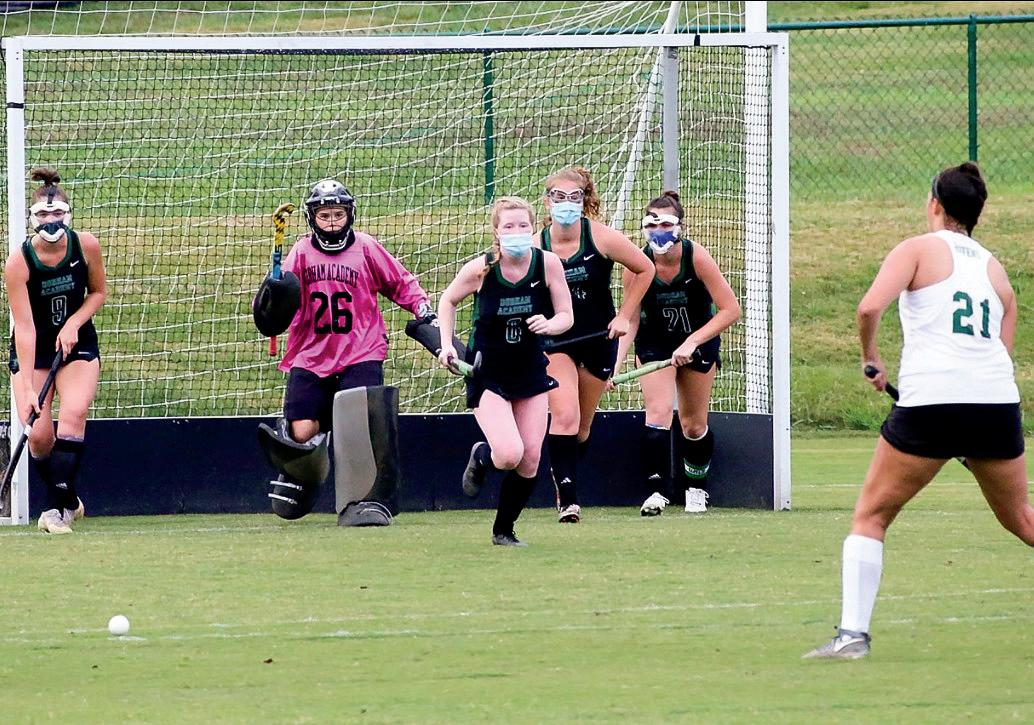
Ten seniors and juniors on the 2020 Durham Academy field hockey team were named to the Keith Waldman – Optimal Performance Associates/National Field Hockey Coaches Association High School National Academic Squad in March.
Seniors Katherine Lantzy and Cecile Meredith and juniors Haley Fogg, Emily Green, Abby Grosshandler, Molly Hunter, Mirella Kades, Amalie Keefe, Kaitlyn Kushner and Talbot Waters made the squad, with Lantzy, Fogg, Hunter, Kades, Keefe and Kushner earning “Scholars of Distinction” recognition. The High School National Academic program honors high school seniors and juniors who achieved a minimum cumulative, unweighted grade-point average of 3.5 out of 4.0 — or the equivalent — through the first quarter of the school year.
Twelve Durham Academy seniors were recognized in November by the National Merit Scholarship Corporation as commended students in the 66th annual National Merit Scholarship Program, and three others were named National African American Scholars by the College Board.
Anna Brent-Levenstein, Tharindu Fernando, Asher Fields, Elizabeth Kohn, Henry Leasure, Molly McLaughlin, Ryan Norris, Charlie Robb, Jake Schwartz, Will Scurria, Nik Walling and Jackson Zobrist received letters of commendation from the National Merit Scholarship Corporation by virtue of their performances on the 2019 Preliminary SAT/National Merit Scholarship Qualifying Test.
Teresa Ibeanu, Lee Je ries and Graham Hairston were DA’s National African American Scholars. To be selected for the National African American Recognition Program, a student must excel on the PSAT/NMSQT, have a minimum GPA of 3.5 by the middle of their junior year and identify as African American.

Upper School Spanish and French teacher Constanza de Radcli e’s latest short story, “La Bendita,” was published in the all-women anthology Féminas in February.
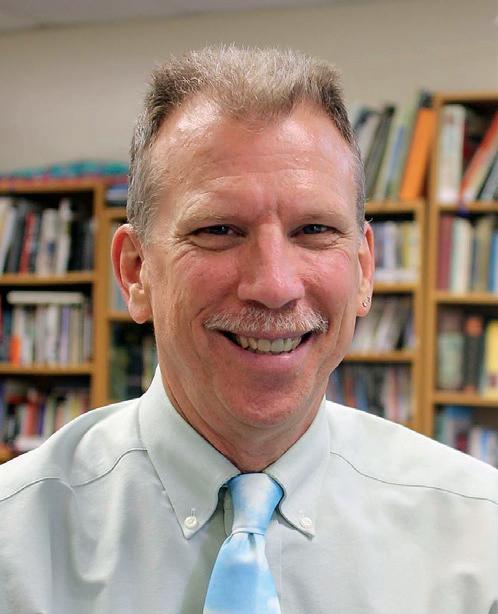
Upon being recognized as the Veterans of Foreign Wars Durham post’s High School Teacher of the Year, English teacher Jordan Adair was named the VFW North Carolina High School Teacher of the Year in January, earning him a nomination for the organization’s national award.
Larry Coleman, a retired North Carolina National Guard lieutenant colonel and the current executive director of the North Carolina National Guard Association, nominated Adair for the VFW Durham post’s award after visiting Adair’s Literary and Artistic Response to War class during the 2019–2020 school year. Adair received a similar award from the VFW Cary post in 2016.“I am honored, to be sure, but I know that the work I do is incredibly important to me personally and by extension to the veterans who take the time to visit my class,” Adair said. “Their stories, passed along to my students, help shape the narrative more accurately and hopefully dispel any lingering misperceptions about those who serve. I have remained in touch with many of those vets over the years and with a number of students who have taken the class. Those relationships have been some of the most fulfilling of my life.”
More on Adair, who is this year’s recipient of the Hershey Award for Excellence in Teaching on page 74.
When Durham Academy’s members of Team Atlantis — Riley Kim ’24, Claire Hong ’24 and former student Catie Powers — won the grand prize at Girls Make Games’ Demo Day in August 2019, they knew they’d have a chance to get their game, “What They Don’t Sea,” published. But in February, that took a significant step toward becoming a reality.
From Jan. 5 to Feb. 5, Team Atlantis raised more than $40,000 on Kickstarter, allowing the girls to keep working on their game and enabling Girls Make Games to hire a development team to professionally produce and develop it. The game will be available on Mac, PC, Android, iOS, PlayStation and Xbox at a later date.
For the seventh time in 17 years, four Durham Academy teams took home titles at the North Carolina K–12 chess championship in March. Featuring 23 chess players from kindergarten to 10th grade, DA’s teams in the K–1, K–3, K–5 and K–8 divisions each came away with first-place finishes in the first-ever online championships.
Ricky Li, Magdalena FenglerRodriguez, Felix Lowe and Alex Broughton made up the K–1 team; Dalton Lad, Leo Lad, Kai Lowe, Kellan Hranitzky, Ricky Li, Sebi Tiwari and Ronav Reddy the K–3 team; Lingaa Venkataraja, Connor Lang, Judson Roederer, Kieran Hranitzky, John David Spatola and Cyrus Policelli the K–5 team; and Asha Kumar, Nicholas Wang, Arav Goldstein, Andy Ye and Charles Roederer the K–8 team.

Through his involvement with the local Latinx youth organization Las Mariposas, Ash Granda-Bondurant ’23 helped write and publish a bilingual book titled Lenna’s Gift / El Regalo de Lenna, released in July 2020. It took over five months for Granda-Bondurant and the 45 other Mariposas students involved to complete the book.
All of the proceeds from book sales went to the Mariposas Scholarship Fund, a community-driven initiative that has awarded over $10,000 in scholarships to first-generation Latinx students since 2017.
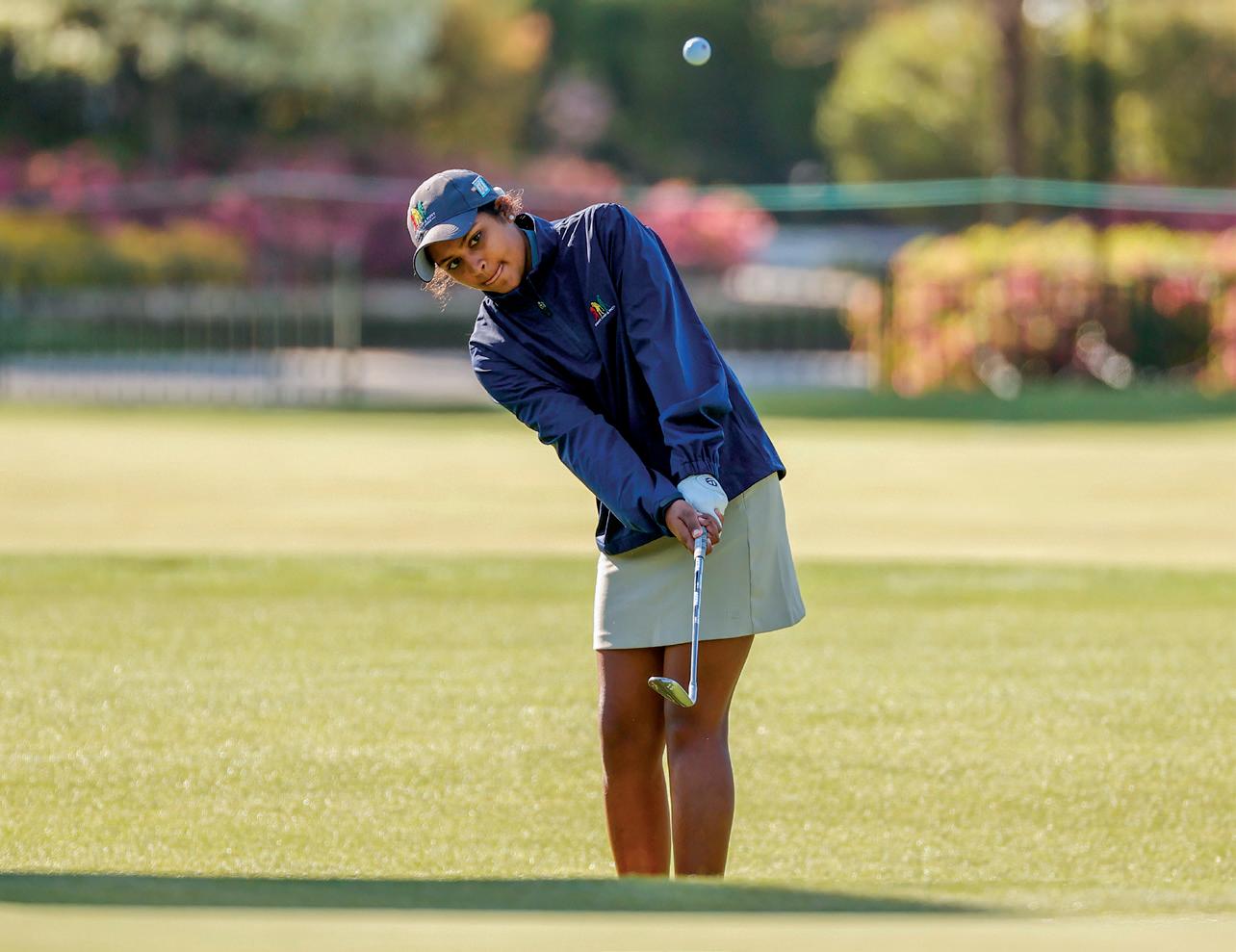
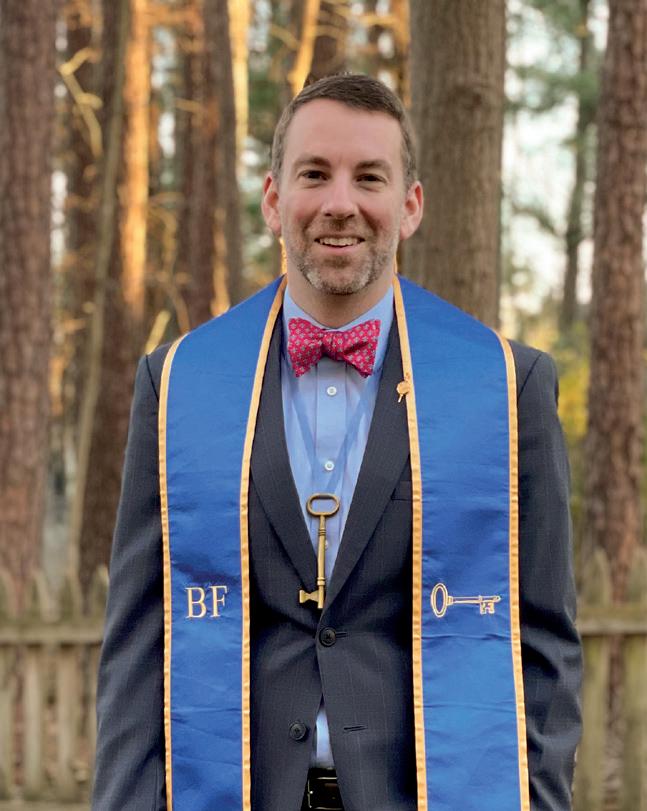
After nearly 20 years of involvement with the Barkley Forum for High Schools, first as a student and most recently as a coach, DA Speech and Debate Director Crawford Leavoy was inducted into the Barkley Forum Gold Key Society in February.
The most prestigious honor given by the Barkley Forum of Emory University, the Gold Key Society recognizes significant contributions to forensics education. Each year, the members of the self-perpetuating Key Society invite a select number of debate teachers from schools across the nation into membership.
“Throughout my nearly 20 years involved with the Barkley Forum for High Schools, the Key Coaches have represented the foundation of this activity,” Leavoy said. “Their tireless e ort, their push for continued excellence and their dedication to thousands of students should be an inspiration to each one of us. I’m both honored and humbled to be selected as an inductee into Gold Key Society.”
Saia Rampersaud ’25 fulfilled a lifelong dream in April, when she competed in the Drive, Chip & Putt National Finals at Augusta National Golf Club.
Rampersaud originally qualified for the 2020 finals through sub-regional and regional events in the summer of 2019, but the 2020 event was canceled due to the COVID-19 pandemic. Rather than hosting another series of qualifiers for 2021, Drive, Chip & Putt invited Rampersaud, along with the 79 other young golfers between the ages of 7 and 15 who qualified in 2019, to Augusta the weekend before the Masters Tournament.
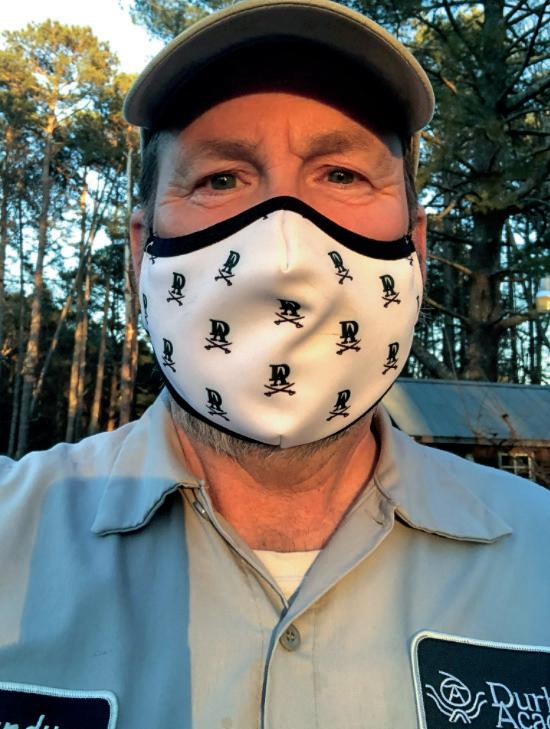
Maintenance foreman Randy Baker celebrated 40 years at Durham Academy on Feb. 23. The father of a DA graduate, Baker spent his first 27 years working on the Academy Road campus, then moved to the Ridge Road campus.
“I will always remember the day I went by to see if they were hiring and [former DA business manager] Mr. [Jim] Horner talked with me for about 45 minutes and then hired me,” Baker said. “Ronald Reagan had just become president, and the top five shows were Dallas, The Je ersons, Three’s Company, Alice and Dukes of Hazzard. Cell phones and the internet were still in someone’s mind. I remember saying, ‘I don’t need a computer unless it can cut my grass.’”
Middle School Latin teacher
Catherine Hayward was named co-editor of PRIMA , the o cial magazine of the Excellence Through Classics, in the winter. Published four times yearly, PRIMA is filled with articles by primary, middle school and high school Latin teachers. Hayward served on the joint ad hoc PRIMA/Resources Writing Committee in 2020.
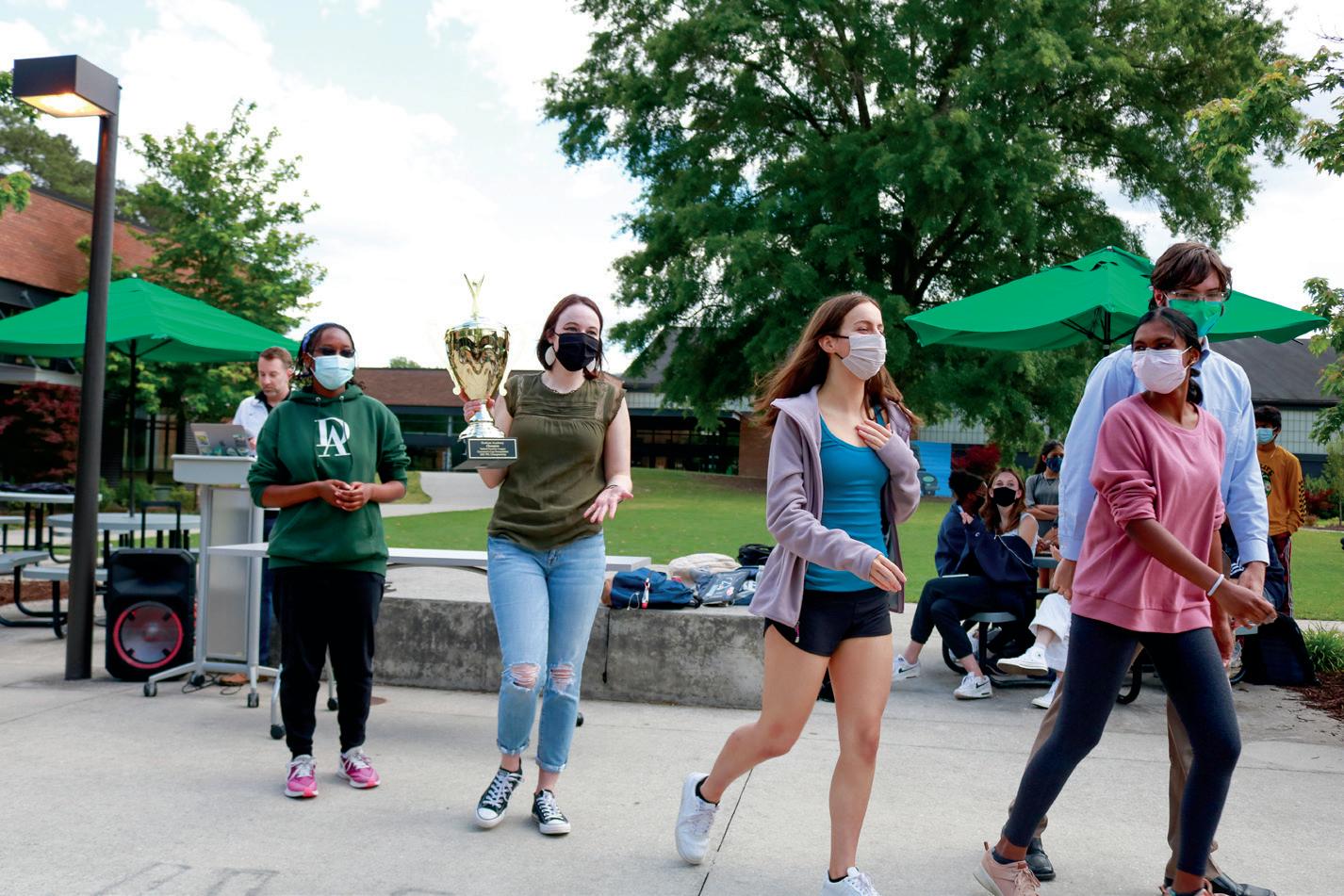
by
The 2020–2021 school year proved to be a banner year for the Durham Academy speech and debate program. In October, it was named one of the 2019–2020 Top 100 programs in the U.S. by the National Speech & Debate Association. Then, in January, the team hosted its biggest Cavalier Invitational yet, with 757 students representing 97 schools from 28 states competing in the virtual tournament.
The program’s most significant achievement came in March, though, when it won its first-ever overall state championship, beating eight-time champion Ardrey Kell High School. Five students also won individual state titles: Izzi Gershon ’22 (congressional debate) and Anna BrentLevenstein ’21, Stacey Kang ’22, Teddy Wallen ’23 and Ani Sukhija ’23 (public forum debate).

Enrolled in Howard Lineberger’s Planetary Sciences course as a sophomore in the spring of 2020, Cal Baker’s research paper on binary black hole systems started o as just a class project. But within a few months, it became so much more.
With Lineberger’s help, Baker eventually submitted his research to the American Astronomical Society, and in January, his work was featured at the AAS virtual meeting.
Tackling racism — with its tentacles reaching into seemingly every facet of our society — can feel overwhelming. But, for anyone feeling that way, rising Durham Academy senior Zoe Sinclair wants you to know two things: that you can get started in this work with just a conversation. And that taking action is important — because there are life or death consequences.
“It starts with you,” said Sinclair, who identifies as Black. “And that might sound cliché, but it really does start with teaching yourself and making the e ort to learn from others.”
She first got involved in diversity and inclusion work as a ninth-grader, when she learned about the Triangle Diversity Alliance, a coalition of students and faculty from five local independent schools. Each year, one of the member schools hosts a conference for students and faculty to learn more about how they can advance diversity, equity and inclusion work, as well as to share about their experiences on their own campuses. Sinclair recalls her first TDA conference, held at Cary Academy her ninth-grade year, as being eye-opening.
“The Black a nity group has been my favorite part of TDA — seeing all of these capable, strong, Black, young individuals who all want to make change in the world, but also just be seen,” she said. “And we’re able to talk about that in a safe way where we all understand each other.”
In January 2020, DA hosted the TDA conference with the help of student leaders like Sinclair, who led an African dance workshop for participants. It was so well-received that she followed up with two more African dance workshops for DA students and faculty in honor of Black History Month this year.
Story and Photo by Melody Guyton Butts
Sinclair is now on the leadership team of RAISE (Raising Awareness for Inclusion and Social Equity), a committee of DA Upper School Student Government that works to identify ways to help make DA an ever-more inclusive, welcoming community. Committee members work to implement programs and activities that promote diversity across all divisions of DA. Through RAISE, she has helped lead Black History Month and Martin Luther King, Jr. Day assemblies for younger students.
Diversity and inclusion work took on a heightened level of urgency for Sinclair after the deaths of George Floyd and Breonna Taylor in spring 2020.
“I was immediately impacted. I knew there was more to what I was feeling and especially what I felt I needed to do,” she said in a speech recorded for the Upper School’s virtual “This I Believe” assembly (see page 50 ). “Although the past few months have been filled with great sadness and despair at times, they have also been a wake-up call. A call for me to educate myself on issues of racial injustice, police brutality, systemic racism and what we can do to make our communities more inclusive and safe for all. And a call for me to engage in di cult but meaningful conversations with people who have di erent viewpoints.
“I believe that this work must start with me,” Sinclair continued. “That it has to start with me. I have learned that internal change and self-education are crucial for change to happen. Because internally is where all of the fear, bias, hesitation, discomfort and misunderstandings reside.”
She leaped at the opportunity to share her thoughts on diversity and inclusion work with the entire Upper
“I believe that this work must start with me. That it has to start with me. I have learned that internal change and self-education are crucial for change to happen. Because internally is where all of the fear, bias, hesitation, discomfort and misunderstandings reside.”
Zoe Sinclair ’22
School community “to really convey that it is life or death work,” even as racism and police brutality may be viewed by some people as distant problems that don’t a ect the daily lives of people they know. In reality, as Sinclair explained in her speech, racism is a part of daily life for so many.
Before either of her brothers — DA alumni Pryce ’16 and Cole ’21 — leaves the house, she said, her mother implores them: “Keep your wits about you,” out of fear that a police encounter could end badly.
Sinclair understands that eroding systemic racism will require policylevel changes. But she believes that change must begin on the individual

level, and that starts with reaching people when they are young.
“If we can get more students of all backgrounds, not just white and Black, but all colors, all ethnicities, religions — if we can just get everybody in one central place to just discuss microaggressions that we face, racism, discrimination, even outright disrespect — then I feel like we can really start to change these problems on a social level, if not the big changes in government,” she said. “... It’s hard to make policies when you are young and don’t have a job, but we can change the way [DA’s] culture looks
or Cary Academy’s culture looks, or Carolina Friends’.”
Sinclair and fellow RAISE committee members have worked with Assistant Director of Diversity, Equity and Engagement Je Boyd to host cultural competency workshops for students and faculty, and she hopes to eventually expand that programming to the parent population. The RAISE committee has also been advocating for increased BIPOC (Black, Indigenous and People of Color) representation on the faculty and in the curriculum, and Sinclair said she was excited to learn that Upper School history teacher Paul Slack will teach
two new courses next year: Jay-Z’s America and Caribbean History.
“Your work to create change doesn’t have to be so big like policy or law, but it could just be asking your friends of color or asking your friends that have di erent religions than you how it is for them or what they’ve gone through,” she said. “Have they experienced any microaggressions or discrimination and then go from there — ask how you can support them. … It really does start with people learning about di erences.”



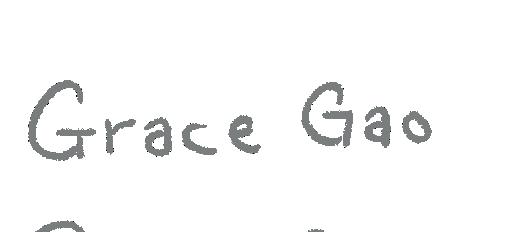
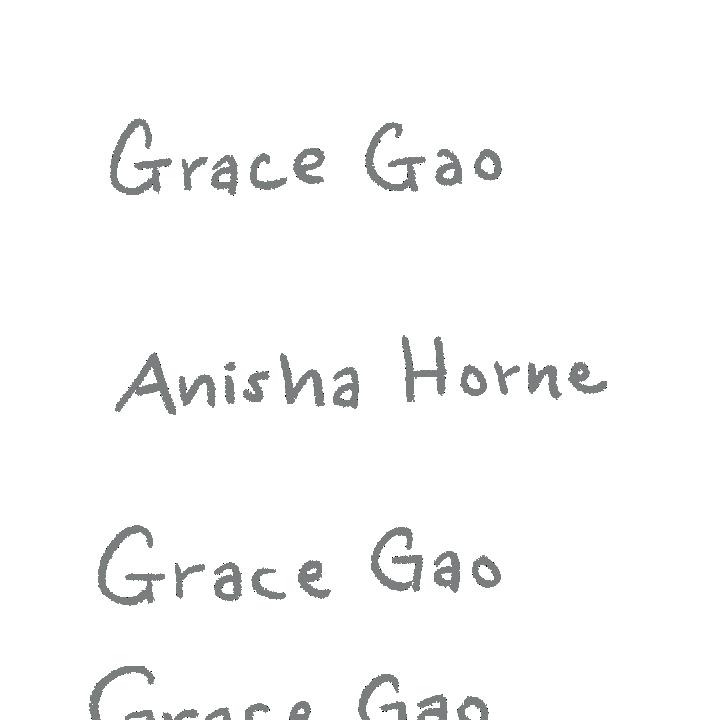
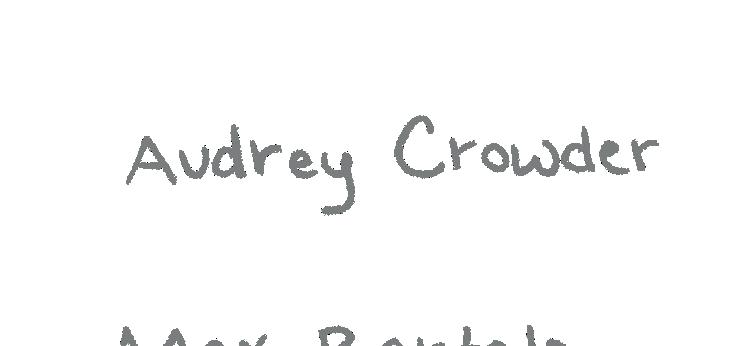

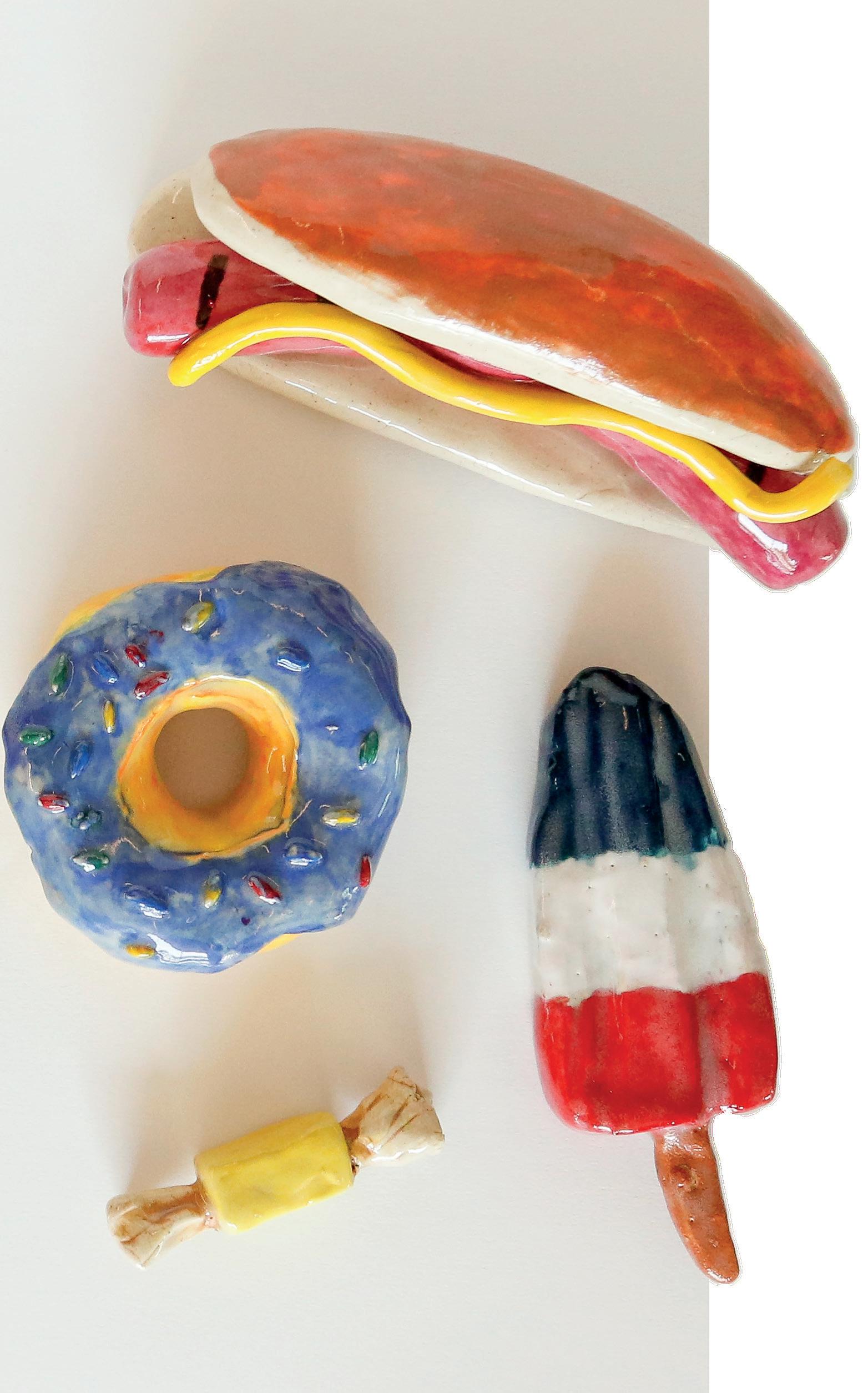
SARAH JANE TART
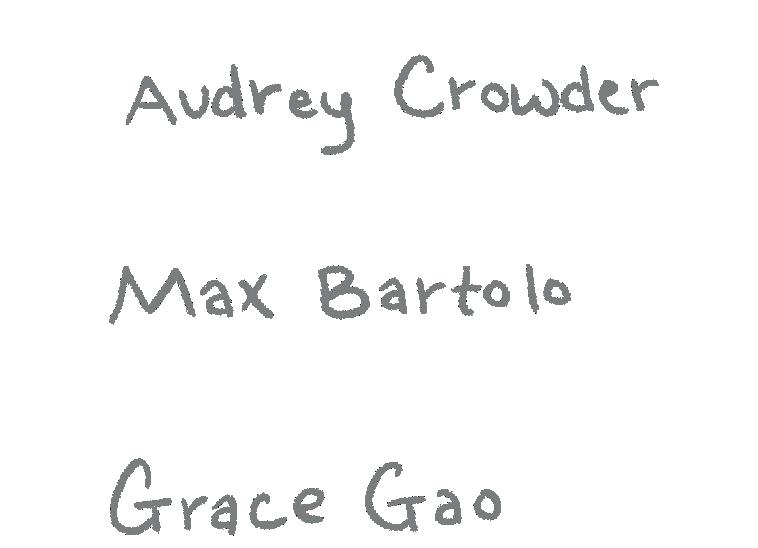
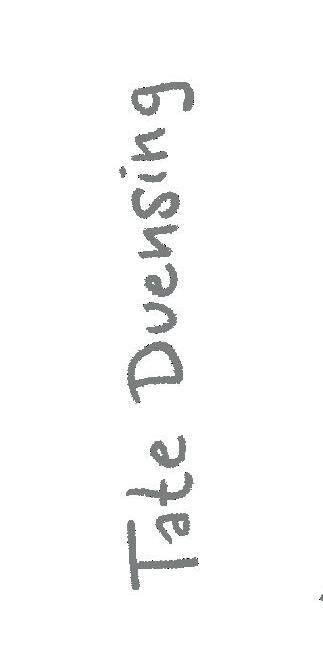

Middle Schoolers stretched their creative muscles in the newly opened Arts & World Languages Center in all sorts of ways this spring. They even dabbled in the art of food — making art that looks like real food, that is.
“Food has been a topic in art forever because it’s important to our world,” Middle School art teacher Fran Savarin said. Seventh-graders learned about the Japanese art of Sampuru, creating plastic foods that look real, and then took a turn making their own with clay. Out of the kiln came popcorn, pie and so many delectable treats that you have to take a second look to know they arenʼt edible.

Story by Bria Irizarry
In a year in which very little has felt typical, Durham Academy student-athletes have found a little sliver of normalcy on the soccer eld, track, golf course and basketball court.
The bene t for students was tremendous — participating in a sport helped new students make new friends, and seniors closing out their high school experience tried new sports for the rst time. In a year when students were isolated, sports allowed them to socialize; in a year when grade levels were split, being on a team allowed them to see friends; in a year when students were mostly at home, sports allowed them to be on campus; in a year when students struggled with mental health, sports helped them stay motivated; in a year when teams couldn't train or compete as much or as traditionally as they would have, students still notched incredible performances.
DA boys cross-country placed second in the Triangle Independent Schools Athletic Conference (TISAC) and fourth in the N.C. Independent Schools Athletic Association (NCISAA) championship. Senior Jay Shanahan placed third overall with a time of 15:58, nearly 30 seconds faster than he ran the course last year at states. Senior Ryan Norris crossed the nish line in 13th place at 16:49, and classmate Kabir Khwaja placed 19th with a time of 17:08, more than 30 seconds faster than last year. The Cavs nished with runners in 21st, 28th, 37th and 49th place.
DA girls cross-country took second place in the TISAC, with ninth-grader Allison Hall coming in rst place (18:53), senior Anna Catherine Wilson nishing second (19:34) and senior Lucy Steiner placing fourth (20:59). The girls placed sixth at the state meet with Hall leading the way, nishing at 19:00 and in second place overall. Five DA runners completed the race with season-best times to score a total of 173 points, just behind TISAC opponent Cary Academy, which scored 151 points.
The Cavs had seven runners named to the 2020 TISAC All-Conference teams for the girls, Hall, Steiner and Wilson, and on the boys side, Shanahan, Norris, Khwaja and sophomore Aaron Caveney.

DA eld hockey had an impressive postseason run this year, with an exciting quarter nal win over Cary Christian School before falling to Providence Day 8–0 in the state semi nals. The Cavs closed out the season with a 5–3 record, and six players were named to the All-Conference team: senior Katherine Lantzy; juniors Mirella Kades, Emmie Savarino, Carson Tucker (honorable mention) and Talbot Waters; and sophomore London Burnham.
The Cavs earned a state runner-up nish in the NCISAA tournament at Greensboro’s Bryan Park after placing second in the TISAC less than a week prior. Sophomore Ona Lukes placed fourth overall with a score of 74, and eighth-grader Saia Rampersaud also placed for the Cavs, tying for eighth with a 77. The Cavs ended the regular season 4–2, and both Lukes and Rampersaud were named to the All-Conference team.
Photo by Bob Karp
DA nished the year with a 6–3 record after a 1–0 loss to Wesleyan Christian Academy in the NCISAA state quarternal. The team was on a four-game winning streak ahead of the quarter nal loss and had three players awarded All-Conference honors: seniors Walker Benjamin and Sam Datin, as well as junior Diego Pastor-Valverde.
The DA girls tennis team reached the state semi nals for the sixth consecutive year. Despite some late-match energy, the Cavs fell 5–0 to eventual champion Charlotte Latin School but nished the 2021 season with a 9–2 record. Senior Ameya Bellamkonda, junior Mukta Dharmapurikar and ninth-grader Godiya Mangai were named to the TISAC All-Conference team.
DA volleyball reached the state semi nal vs. Cannon School but lost only its second match of the year, 3–1, to the Cougars. DA volleyball ended the year with an 8–2 overall record and 6–1 conference record. Senior Elizabeth Kohn capped her DA career with a team-high 130 kills on the season, while junior Gabriella Marchese nished with 20 serving aces and sophomore Hannah Kohn nished with 153 digs for the Cavs. All three Kohn sisters senior Elizabeth and juniors Hannah and Olivia were awarded All-Conference honors.
Varsity boys hoops nished the 2020–2021 season with a 12–8 overall record and 6–3 conference record. This marked the third straight season of the Cavs advancing to the state quarter nals.
Senior Cole Sinclair nished the season as the boys basketball program’s all-time leading scorer with 1,785 points (341 more points than second place). He played in the most games in program history (141) and is the all-time leader in three-point eld goals (306). He also holds the school record for single season three-pointers made (98 in his 2018–2019 campaign). Senior Toby Harris ended his career with 1,022 points (11th best all-time) and 176 three-point eld goals (fourth best all-time), and is third all-time in three-point eld goals in a single season (87 in his 2019–2020 campaign).
Girls Basketball
The DA girls basketball team earned a spot in a NCISAA rst-round playo game at Wesleyan Christian Academy but lost 51–43. The girls ended with a 12–8 record overall and 8–3 in conference, for a second-place nish in the TISAC. This season, the team was led in points by eighth-grader
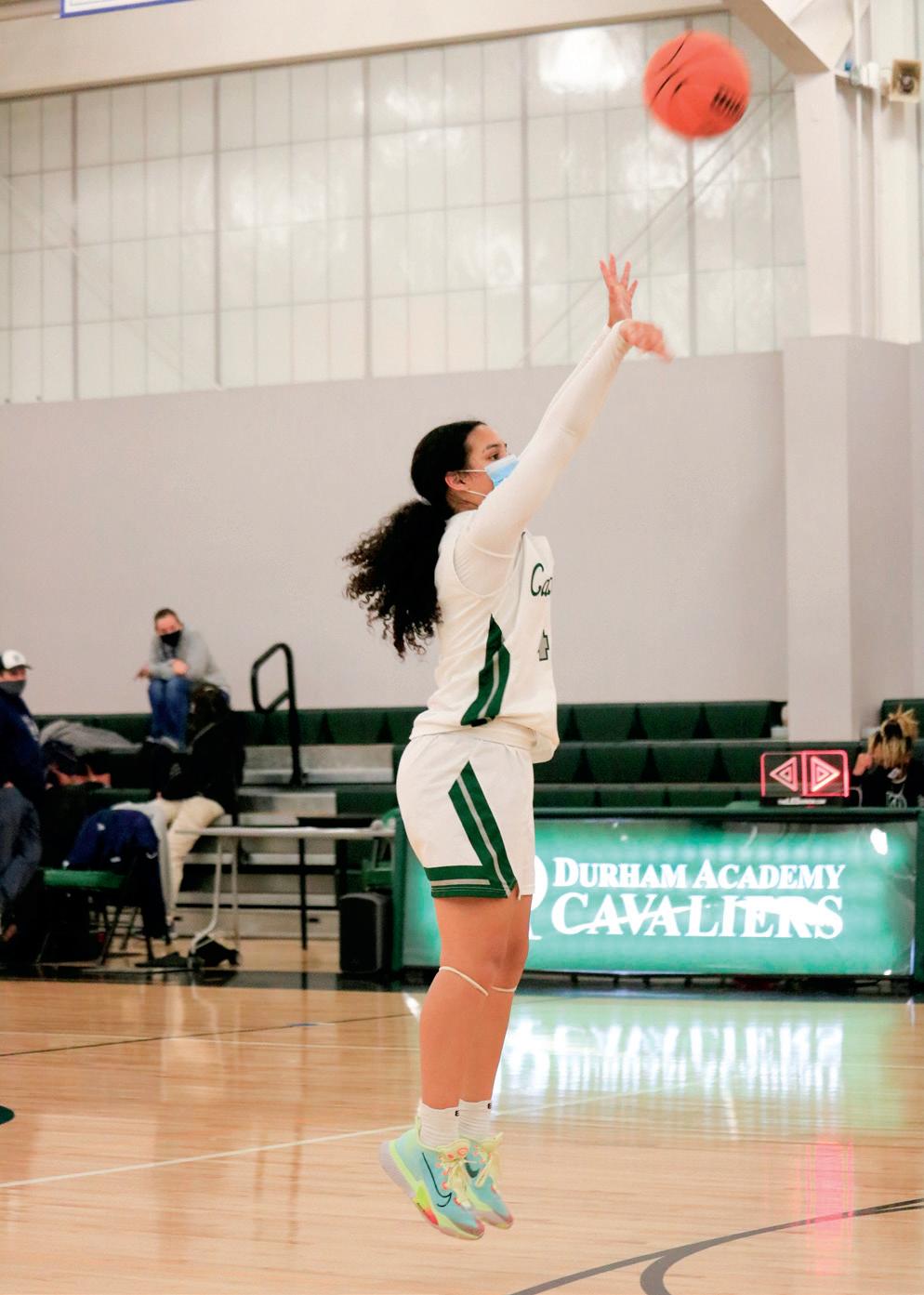
McKenzie Graves (197) and followed closely behind by sophomore Mariam Abdelbarr (195), sophomore Kendall Harris (177) and ninth-grader Lauren Walsh (166). Graves nished with 30 assists and 39 steals, and Walsh had 27 assists and 42 steals. Abdelbarr and Harris led the team in rebounds with 106 and 133, respectively, while Harris also contributed 41 blocks. Even during this unprecedented year, the Cavs came out with a winning record, the third in as many years for the girls basketball program.
The boys swim team nished 12th out of 15 teams at the NCISAA swim meet. The Cavs did not have any top-10 individual nishers, but multiple swimmers set personal best times at the meet. The boys had an eighth-place relay nish in the 400-yard freestyle.
On the girls side, DA nished eighth out of 16 teams, moving up four spots from last season’s 12th-place nish. Sophomore Spencer Jennings was the standout swimmer with a third-place nish in the 200-yard individual medley and a second-place nish in the 100-yard backstroke. Seventh-grader Kenzie Kim came in fourth in the 100yard breaststroke.
The 2021 DA varsity baseball season completed the season with an 8–7 overall record and earned a trip to the rst round of the state tournament. The Cavs lost to Wake Christian 7–5 but had three players earn TISAC All-Conference honors: juniors Sean Donahue, Ethan Goldstein and Jackson Niedel.
DA boys golf ended the season with a seventh-place nish out of 12 teams at the state championship at the Greensboro Country Club Farm Course. Senior Jackson Brim eld shot a 79 in his last outing wearing the green and white, while seventh-grader Tate Duensing shot a 74. Sophomore William Chapman nished with a 75, while classmate Nicholas Hogan and ninth-grader Quin Huckabee tied at 81. The team ended the year 2–3–1 in the regular season, third place in the TISAC and with three All-Conference selections: Brim eld, Chapman and Duensing.
The DA boys lacrosse team earned the No. 1 seed in the East Region of the NCISAA state tournament and made an appearance in the state semi nals vs. the Greenies of Christ School. The Cavs lost 16–6, but this was the rst time the team had reached the state semi nal since 2014. The boys amassed a 9–6 record on the season and a fourth-place ranking in NCISAA Division I, according to maxpreps.com, and an overall 10th-place ranking in the state, according to highschoolOT.com. Five DA players were named to the AllConference team, including seniors John Donovan (player of the year) and Gavin Schulz, junior Austin Corbett, and sophomores Brodie Mason and John Bolognesi (honorable mention).
DA girls lacrosse ended the 2021 season after winning the TISAC championship and earning a trip to the state seminal vs. Charlotte Country Day School. The Cavs’ run in the state tournament ended with a 17–12 loss. DA posted an 11–2 season overall, ended the season ranked fth in the state according to highschoolOT.com, and garnered two US Lacrosse All-America accolades. Junior Brooke Epstein was named an All-American, and senior Katherine Lantzy was named an Academic All-American. The Cavs also had six All-Conference selections: seniors Kathleen Donovan and Lantzy (honorable mention), juniors Mirella Kades and Epstein, sophomore Spencer Jennings and ninth-grader Evelyn Guyer.
The Cavs closed out the 2021 season with an overtime loss to Wesleyan Christian Academy in the second round of the state tournament. Despite a slow start with a number of injuries, DA nished strong, ending the regular season with back-to-back home wins, including a 1–0 win over Saint Mary’s School on senior night to give coach Susan Ellis her 200th win at DA. The team nished with a 6–7 record and three All-Conference players: juniors Isabel TraheyMatzen and Kennedy Yon and sophomore Kaia Vorenkamp (honorable mention).
The varsity boys tennis team had an impressive season that included a spot in the state semi nals, a TISAC championship and a TISAC Player of the Year selection in sophomore Pete Crowley. The team lost to Charlotte Country Day in the state semis, but it was only its second loss of the season. Senior Frank Borden, junior Gavin Levinson and sophomores Owen Brent-Levenstein, Paul Wang and Crowley were named to the All-Conference team.
DA had a varsity softball team this spring, but it did not compete in any interscholastic competition. The team spent this season focusing on individual and team skill development in preparation for the 2022 spring season.
Girls track and eld nished in fth place and the boys team placed 10th overall at the NCISAA state meet. DA’s girls 4x100-meter relay team (senior Lee Je ries, junior Julianna Hallyburton, sophomore Amani Diallo and ninth-grader Ama Mensah-Boone) set a school record with a time of 50.83. Senior Anna Catherine Wilson took fourth place in the state in the 3,200-meter race, while Hallyburton won the state championship in the pole vault event. The girls ended the season on a high note, winning the TISAC championship and earning six All-Conference selections: senior Lucy Steiner, sophomore Veronica Quiett, Je ries, Hallyburton, Diallo and Mensah-Boone. The boys 4x400-meter relay team comprising seniors Ryan Norris and Charlie Robb, junior Lars Oehler and sophomore Aaron Caveney took third place in the state, and Norris placed third in the boys 300-meter hurdles event with a time of 41.78. Senior Jay Shanahan placed third in the boys 3,200-meter race with a time of 9:36, and eighth-grader Ben Hornstein put up an impressive time of 10:17 in the 3,200-meter race. The boys earned fourth place in the TISAC, and Norris was named to the All-Conference team.
Durham Academy Parents Association organized two huge waves of gratitude from parents and students this year including one in the form of a mid-year Padlet (digital message board) with posts of appreciation and encouragement, and a collection of more than 60 student video testimonials shared with faculty and sta during Teacher Appreciation Week in May. Here are some highlights.
“You are teaching our kids to be tough, to be committed, to support one another, to always ‘show up’ and to stay positive. You’re teaching them to be moral, happy and productive citizens.”
— Fiona and Chris Lundblad, parents
“I’m thankful for my teachers because I learned about castles and
volcanoes and animals.”
— Caroline Alonso ’34
“Thank you to all the teachers who have remained committed to their students, despite this challenging school year. Your e orts do not go unnoticed.”
— Lee Je ries ’21
“We see the twinkle in your eyes above those masks during drop-o and pickup and the joy you take in having your students back. We see immeasurable happiness in our children after days on campus.”
— Kelly and Bill Wood, parents
“I know how much work it takes, because both my parents are in it, so I’d like to thank them and the rest of the faculty and sta for a great year and a great job during this weird time.”
— Toby Harris ’21
“You jeopardized your health and showed up for us. You had to learn new ways to teach so that unlike many other kids, we got to have an amazing education.”
— Michael Milano ’24 and Thomas Milano ’24
“In spite of the masks, social distances and protocols, something shines bright! That brightness is from your grace, your humor and your kindness.”
— Rajeev Dharmapurikar and Sangeeta Joshi, parents
“For
myself, from
“A big thank you from your remote students. This year wasn’t easy on any of us, but especially on you guys because you have to adapt and think of new ways to teach us students.”
— Kai Forbach ’26
the rest of the senior class, just know your work and e ort doesn’t go unnoticed at all and you’ve made some lasting memories that I’ll be able to hold on to forever.”
“Thank you for being the best teachers ever and for all I learned over this year and for keeping us safe.”
— Emmy Tom ’33
“We are so fortunate to have teachers as hardworking as you, and we are truly grateful for everything that you have done for us over the past few years and especially this past year.”
— Charith Fernando ’23 and Tharindu Fernando ’21
Watch a collection of videos: url.da.org/lifechangers2021a url.da.org/lifechanges2021b
Check out additional gratitude messages on DA Parents Association Instagram: @da_parents.
—
Alex Pfeil ’21
Ashu Saxena
Story and Photo by Kathy McPherson
The rst year of college hit Ashu Saxena hard. His family had moved from California’s Bay Area, where he had grown up, to upstate New York just a few days before he began classes at Rensselaer Polytechnic Institute in Troy, New York. His brother-in-law died, leaving behind a young family, and Saxena came down with mono just before rst-semester nal exams. He dropped a class and made a C, both for the rst time.
Sophomore fall didn’t start o much better Saxena’s father had a heart attack, fortunately surviving after some anxious moments. And then things began to improve. Saxena, who was in Rensselaer’s engineering school, changed his major when he realized his course work was mapped out and was mostly engineering classes.
“I didn’t like having that restrictive nature. I was just still interested in too much,” he said. “Through my dad, I met the dean of science and he encouraged me to change my major to math.”

Saxena got aligned with two professors in the math department “I still remember their names” and they helped him look at his choices while majoring in math. He took ethics and a rhetoric and writing class and heeded the advice of a professor who “inspired me to pursue what I enjoyed doing. I think that college year, especially sophomore spring, I had a huge turnaround where I had earned straight A’s for the rst time in my life. … To end up with straight A’s was somewhat of a miracle for me in the situation I was in, being in a really tough school and just having gone through so much during my early time there.”
Saxena thrived at Rensselaer, continuing interests in teaching and coaching that began his junior year of high school, running a club for children from a low-income housing project and writing for the school newspaper.
He graduated with a major in math of operations research and minors in education, management and philosophy, foreshadowing a career that in 2014 would bring Saxena to Durham Academy Upper School, where he teaches math, helps lead three student clubs and is assistant coach of varsity girls soccer.
The path was not without possible detours. During his junior year of college, Saxena was being recruited to work in nancial services, insurance and actuarial science. Fall of senior year, while doing student teaching, he interviewed on Wall Street and Water Street in Manhattan.
“I had some very lucrative o ers, and I didn’t pursue them. I saw myself and looked at what I like to do. I didn’t want to work in an o ce or even a xed spot. And for me, it wasn’t really about the money. I tell my students, even now, this story. I was being o ered a salary that is probably about one-and-a-half times as much as what I’m making after 30 years in teaching. Money that was being o ered to me as a young 21-year-old, and I said no. Obviously, had I said yes and worked for 20 years, I would have retired long ago, but that wasn't in my plan and I chose not to do that.”
What he chose was to teach. He graduated from college a semester early and worked rst as a substitute teacher, then accepted a job at Albany Academy for Girls when a teacher abruptly left with three months to go in the school year. He taught ve math classes in a row, with ve di erent preparations ranging from pre-algebra to AP Calculus while taking classes for a master’s degree in secondary mathematics education at night and also coaching soccer.
“I guess things worked out well, and they kept me on. My rst three and a quarter years of my career were at that school,” Saxena said.
His time in Albany, New York, was the beginning of an independent school teaching and coaching career (with two brief forays to public school teaching) that has taken him to The Potomac School in northern Virginia, to Charlotte’s Providence Day School, and now to Durham Academy.
Saxena is passionate about coaching soccer, a passion that began with a team of 13- and 14-year-olds he coached as a high school junior. The team had a 1–9 record going into the season tournament and ended up winning the tournament.
“To go back and win was enjoyable. But it wasn’t just about the win, it was about the growth of the kids for that season, that fall season,” he said.
A positive team culture and growth continue to be a priority, and Saxena’s coaching career took o on both the club and high school levels during his 13 years in northern Virginia. He was named the United States Youth Soccer Association National Girls Coach of the Year as well as the United States Olympic Committee National Developmental Soccer Coach of the Year.
He would often make the four-hour drive to Chapel Hill to watch the UNC women’s team, a perennial national powerhouse. He learned from and became friends with Anson Dorrance, coach of the UNC team, and began working at UNC’s summer soccer camps. In 2018, Saxena published a book, The Well-Rounded Soccer Coach, which is now in its second printing and features a foreword by Dorrance.
Family is also a passion for Saxena, and making the decision to teach and coach at Durham Academy was really a family move. Saxena and his wife, Neeta, were looking for a community where they would want to live long-term and a school they would want to send daughter Sunaina, now a DA rising third-grader, and son Shaylan, who will enter pre-k in August. They like to be involved as parent volunteers as often as their busy child care and work schedules allow (Neeta is a physician assistant for a nephrology practice).
The Saxenas share an Indian heritage. Ashu Saxena’s father came to Stanford University and Silicon Valley from Lucknow, India, in 1956 and his mother followed in 1958. They became American citizens, and their four children were born in this country.
Saxena leads the Asian American and Paci c Islander
A nity Group at the Upper School in conjunction with Chinese teacher Bonnie Wang. He said it has become “really a very important group to give both the students and the teachers who identify with Asian heritage a place of belonging and identity and a place to just really be. We talk about being the only one. Sometimes it’s hard to be the only one in a classroom, whether you’re the only Asian or the only Black student or the only Muslim or the only Jewish identi er or whatever. So to have the Asian afnity group has been powerful, to have a space to belong.”
When students asked him to advise a Muslim a nity group, he agreed, although he identi es as Hindu and not Muslim. Saxena also advises Crossing the Divide, a student group that seeks to nd common ground on political issues. The group grew out of a discussion when Saxena said he didn’t care about party names or ideological labels, but cared about moving forward with what’s good.

“It’s funny how it all comes full circle in terms of majoring in math and coaching soccer, having that nance background and management background, and now it’s all kind of come back.”
Ashu Saxena
That’s also important to Saxena in his math classes. He teaches Precalculus with a Human Rights Focus, in which students can explore their interests, passions and dedication to social issues. In addition to teaching AP Calculus, Saxena taught Mathematics of Finance in the fall semester and taught economics in the spring.
“It’s funny how it all comes full circle in terms of majoring in math and coaching soccer, having that nance background and management background, and now it’s all kind of come back,” he said. “And at the same time I’m teaching the precalculus class, a class that involves some of the look of social issues.
“Being at DA, I’ve been able to do a lot with the classes and have a lot of independence that way to explore di erent areas.”
In a typical year, it can be easy to put traditions and community on autopilot; so many of these activities have been on the Durham Academy calendar for many years, running like a well-oiled machine. But this year when being together in person was challenging students, faculty, sta and parents had to be more intentional than ever in their e orts to foster community, preserve traditions and keep learning fresh and fun.
With a hybrid model of instruction in place for much of the school year and cohorts of students taking turns learning on campus and remotely it had been a year since Upper Schoolers had seen more than half of their classmates in person when March 2021 rolled around. So the Upper School Student Government Student Life Committee decided to get everyone in each grade level together for some fun and games at the rst-ever Upper School Field Day.
The event featured competitions such as a water balloon toss, rock-paper-scissors, red light-green light, relay races and Simon Says. Advisories competed against each other, with the winning advisory of each grade level receiving an award. And on this particularly warm March day, Locopops were abundant, and there was plenty of time for students to catch up.
Students in all four kindergarten classes gathered at the Upper School track in March to celebrate the rst-ever Kindergarten Olympics. The event kicked o with an opening ceremony consisting of remarks from Head of School Michael UlkuSteiner, a singing of the alma mater by senior Lauren Read, a lighting of the torch and dances from each class. The seven-event competition featured the discus throw (with plastic rings), the javelin throw (with pool noodles), balloon tennis, a bouncer race, the long jump, a bean bag Olympic ring toss and the balance beam.
The Kindergarten Olympics marked the rst opportunity many parents had to serve as in-person volunteers all year, and their masks couldn’t

by
disguise the ear-to-ear smiles elicited by their being on campus once again.
Junior year can be daunting. Schedules are often packed with di cult classes, and it can seem like every decision one makes could have a life-altering impact, with college just around the corner. So Junior Class Council representative Emily Gao decided to create an opportunity for juniors to get advice from people who have a fresher understanding of these challenges than just about anyone: seniors.
In the spring semester, Gao hosted a series of mentorship panels with DA’s senior class. The panels focused on topics like exploring colleges, getting letters of recommendation for college, summer plans and choosing senior classes. Juniors submitted questions and proposed mentorship panel topics via an online form prior to the panel meetings, which were hosted virtually via Microsoft Teams so that students could safely connect from home. And perhaps just as important as who was in attendance was who wasn’t adults to allow for candid discussions among the students.
While DA students and Special Olympics athletes from around Durham were unable to exchange in-person high- ves for the second consecutive year due to the pandemic, DA students and faculty members, as well as Special Olympics supporters around Durham continued to support the athletes’ hard work from afar via Durham County’s Virtual Special Olympics Spring Games. Participants walked, danced and ran one mile in honor of athletes on April 30.
The virtual event was organized by the Upper School Special Olympics Committee headed by
faculty coordinator Laci McDonald and assistant faculty coordinator Jennifer Rogers.
Watch a video kicking o the Spring Games at bit.ly/2021SpringGames
DA Parents Association couldn’t host the on-campus events that typically help families connect with one another this year but that didn’t stop PA leaders from community-building in virtual and COVID-safe ways.
Among the highlights was “Bandingo” (think “band” + “bingo”) a game of bingo played over Zoom, in which players listen to and match tunes on their player card as a professional emcee spins family-friendly songs. There were also family science nights in which participants built model oscilloscopes and test tube lava lamps. And, just for the adults, DA brand and design manager Sarah Jane Tart led parents in a oral watercolor workshop via Zoom.
While the beloved Used Book Sale a massive event that typically takes over the Middle School gym could not be held this year, Parents Association volunteers organized a “Mystery Book Bags” sale, in which Preschool and Lower School families purchased pre-packed bags of books.

by
Initially, DA parents couldn’t visit campus this year. But even amid a pandemic, Lower School teachers found a way to welcome families into their classrooms, albeit virtually.
Through a virtual reading program, parents signed up to call in to their child’s classroom via Microsoft Teams and read a story during lunchtime. The chance for parents to see what school was like and to interact with their child’s class was brief and, of course, there were some technical issues along the way. Even so, the program was an amazing experience for parents, students and teachers alike.
Parents also made virtual visits to share their profession or expertise with their children’s classes. Guests in Anna Larson’s fourth-grade class included UNC assistant baseball coach Jason Howell and pediatrician Kelly Wood. Howell taught the class how to hit with the help of some Major League Baseball players, and Wood talked about vaccines speci cally the COVID-19 vaccine during her visit.

With the Preschool/Lower School library serving as a rst-grade classroom this year, students weren’t able to browse the shelves as they normally would. But librarian Michelle Rosen made sure students still got their reading x with her magical “Land of Stories” cart.
Just as they would for regular library classes, teachers made a library reservation and told Rosen what sort of books to bring. Rosen then parked her cart outside of the classroom at the scheduled time, and children came out a few at the time to browse the collection with their eyes. Once they saw a book they wanted, all they had to do was point at it and Rosen checked it out for them on the spot using her handy library app. For both students and teachers alike, Rosen’s visits were a highlight of the year.
Students from Preschool through Upper School turn out each winter for special nights at the CavDome varsity basketball games in Kirby Gym that are packed with fun activities. But since kids and families couldn’t come to the CavDome this year, the CavDome came to them!
The Feb. 5 Virtual CavDome was a hit, with the girls and boys games live-streamed and fun giveaways announced over Microsoft Teams between the games. Fans had a chance to win DA athletics T-shirts by making a DA spirit sign and sharing a photo; sending a video of their best trick shot using a hoop, trash can or whatever; sharing a sel e in DA gear; or getting together with family and sending a best game face sel e. A good time virtually was had by all.
The Preschool reinvented its relationship with friends at Emerald Pond retirement center this year, with several pen pal projects taking the place of eld trips to sing, visit and share some hugs with the senior citizens who live just across Pickett Road. Preschool teachers dropped o personalized valentines and carnations for residents, and Preschoolers received their own oversized valentines in return, signed by Emerald Pond residents and sta .
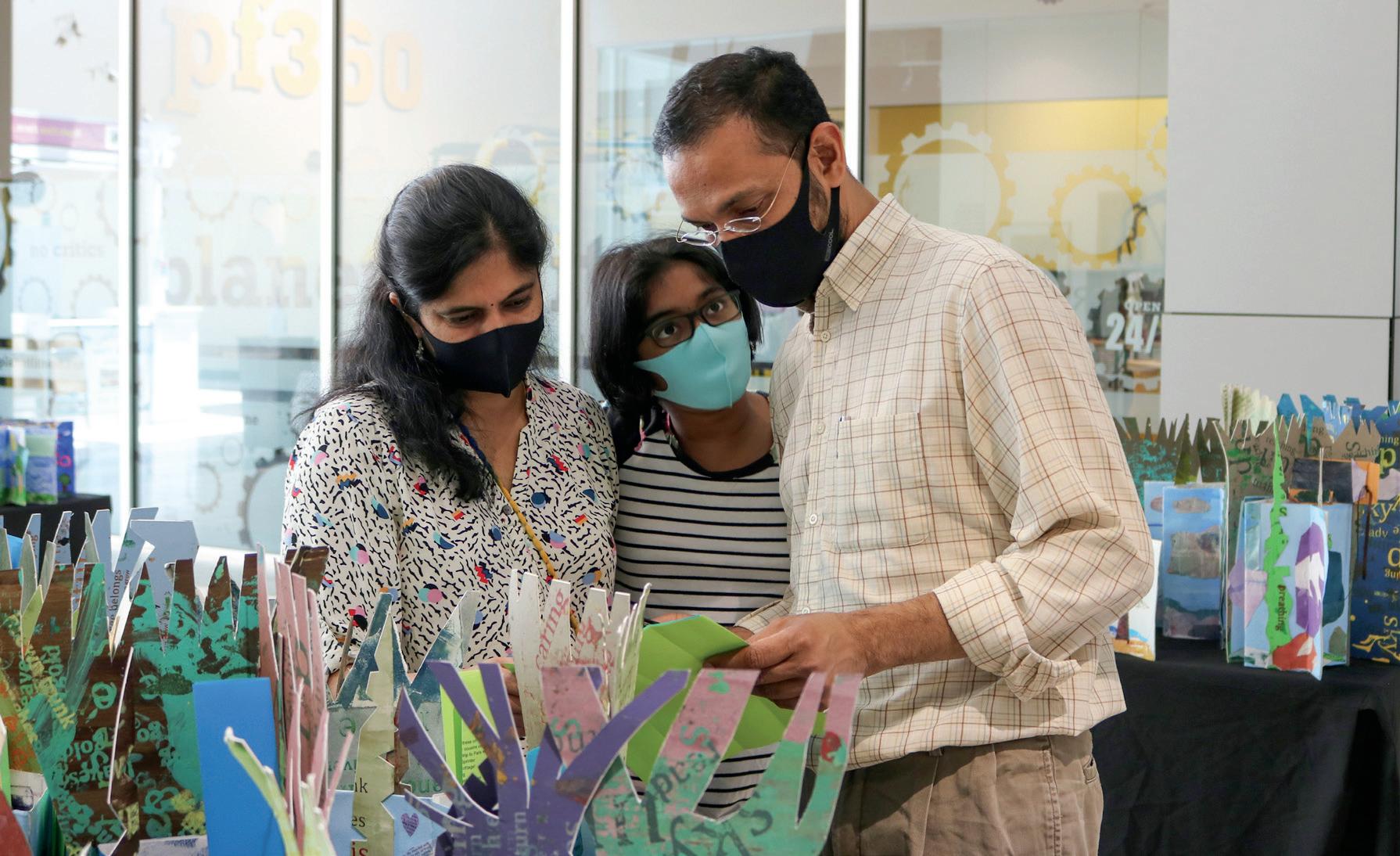
One Emerald Pond employee shared what that meant in a note to pre-kindergarten teacher Sheri-lyn Carrow: “… thank you to the students at Durham Academy for brightening our day at Emerald Pond Retirement Community. … The residents were so happy to have received valentine cards from your students. They so appreciated the home made cards, candy and gifts. I appreciate all you do for our senior residents at Emerald Pond. It was truly a dream come true to be able to give them the cards and iers and candy you sent. It really made our Valentine’s Day special.”
For 14 years, a highlight of the year for many sixth-graders has been the “My Hero” project, in which students create pop-up books to honor special people in their lives.
This year’s project evolved to accommodate COVID-19 protocols and to incorporate themes of learning outside, trees and taking advantage of recyclable materials. After weeks of hard work with artist-in-residence Peg Gignoux, this year’s sixth-graders presented their work at FRANK Gallery in Chapel Hill’s University Mall on May 15. As a bonus, last year’s hero books (which had been created by this year’s seventh-graders) were also displayed since the spring 2020 event had to be canceled.
State projects are a big part of the third-grade curriculum and are also a key component of the third-grade class’s Grandfriends Day when the state projects are on display. Each third-grader is assigned a state and carefully conducts research to learn about that state and create a written and visual display.
Third-graders worked on their state projects as they have each year, but Grandfriends Day with visits to the third-grade classrooms, demonstrations of students’ research in the computer labs, a program of songs and dances celebrating the United States and a display of all the state projects in the Lower School gym couldn’t take place this year. Instead, each of the third-grade classes had a morning to display the students’ projects outside in the covered play area and invited their special guests to view them there. It was a contest to determine who wore a bigger smile behind their mask the proud third-graders or their proud guests.
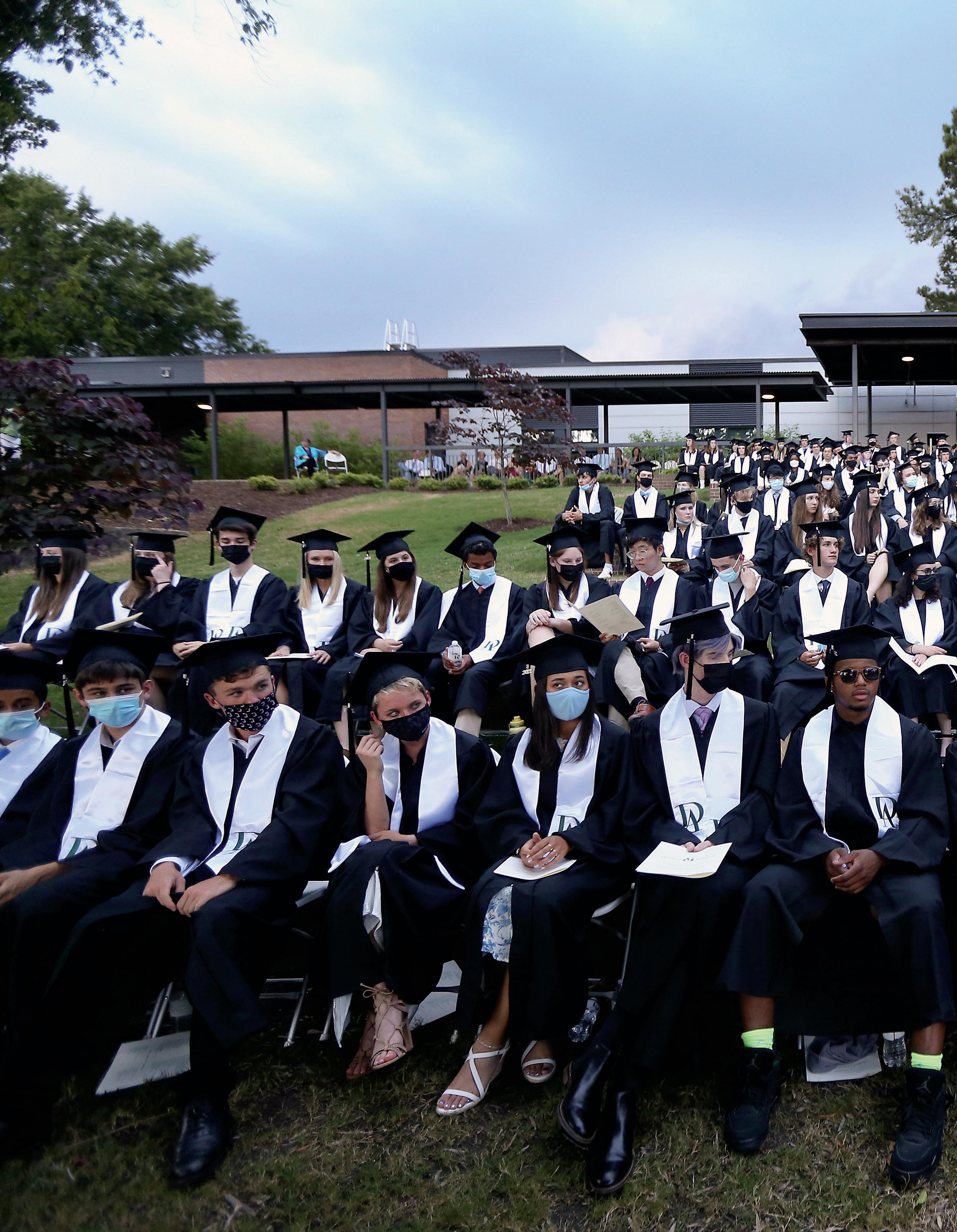
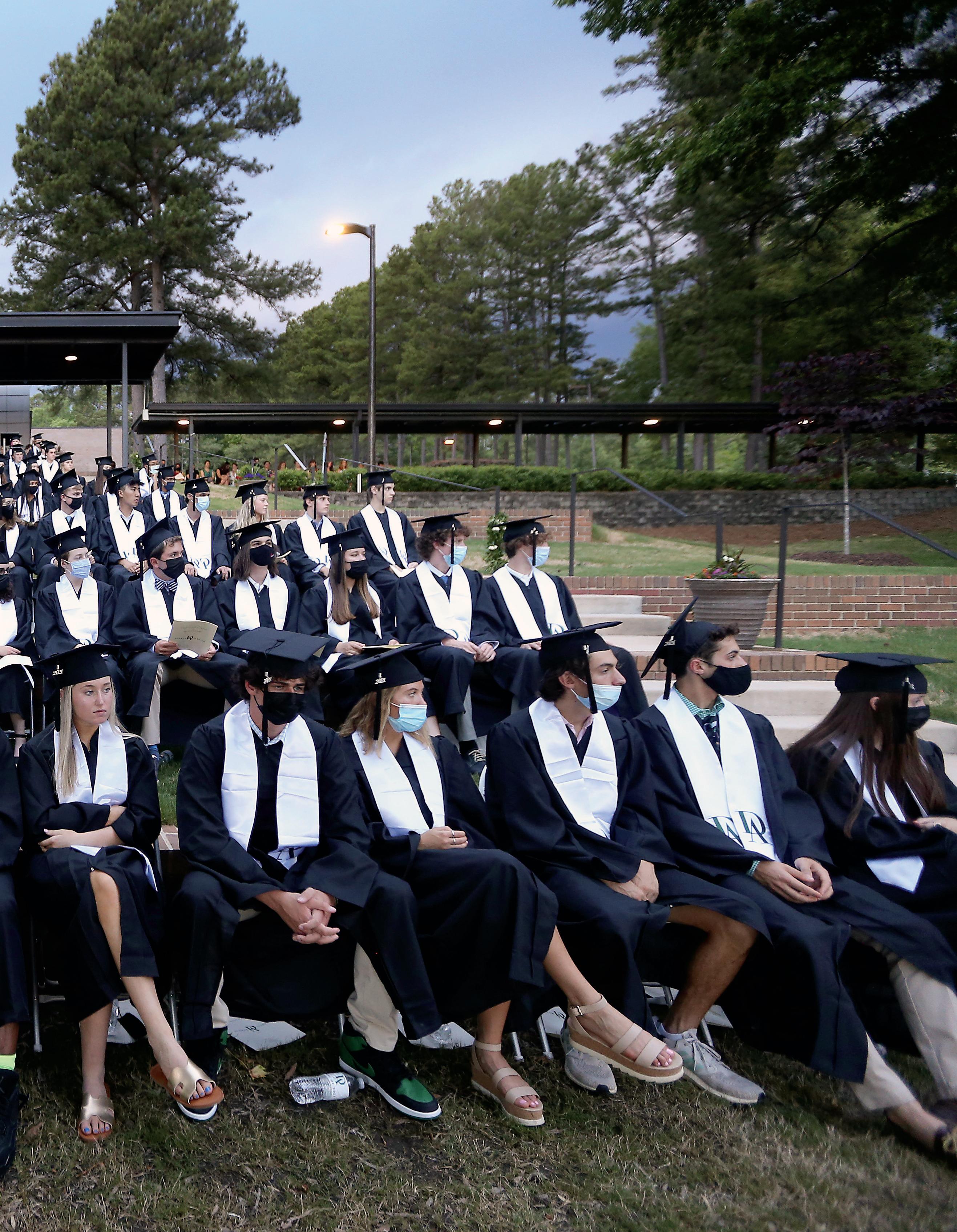
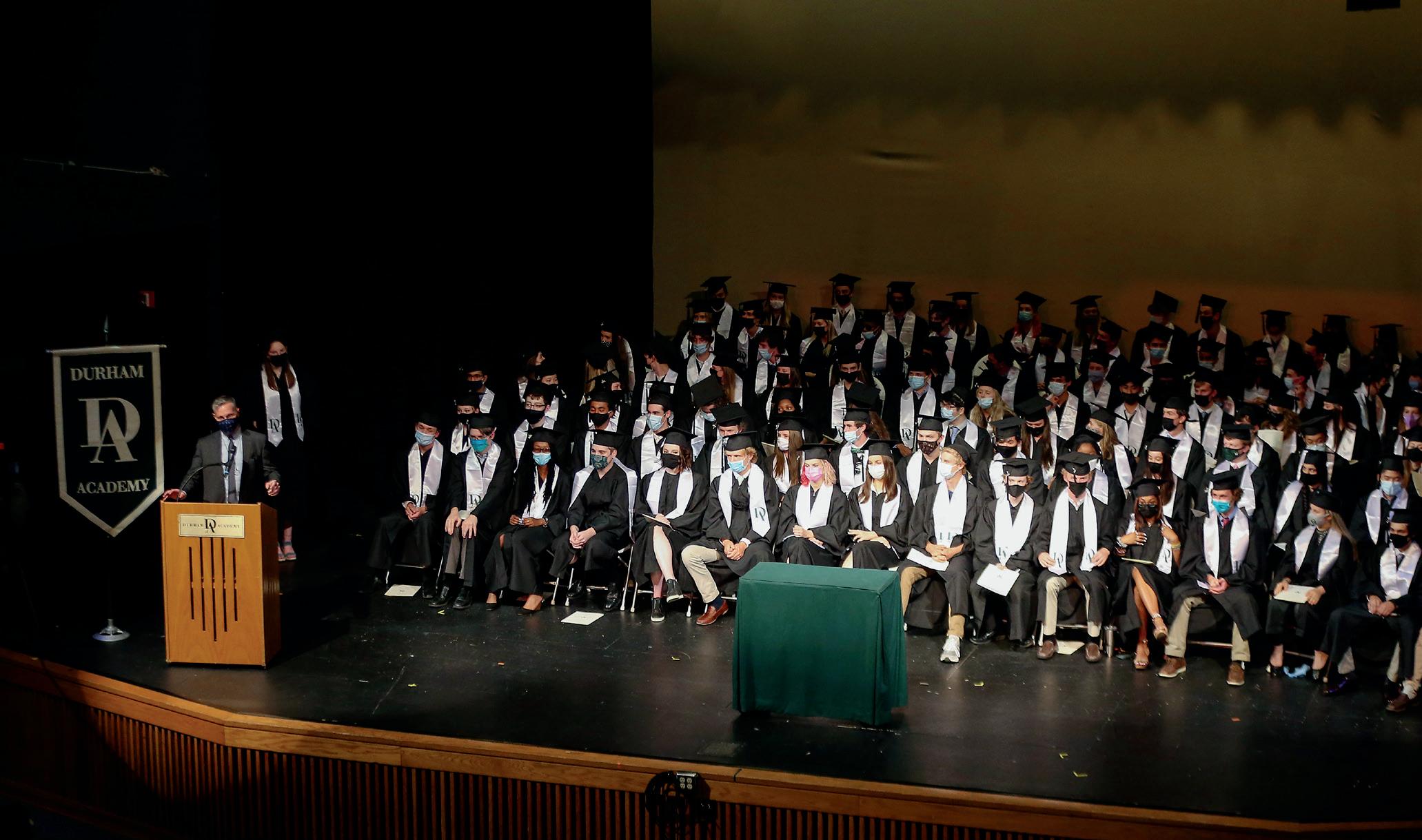
“Wow. We lived through enough history to ll two textbooks,” Emily Norry ’21 told her classmates as they prepared to join the ranks of Durham Academy alumni.
In most any other year, a statement like that at a high school graduation ceremony would be hyperbole. But for members of the Class of 2021 who have witnessed enough history-altering movements and events in just their four years at the Upper School to ll a lifetime it’s a fact.
As Norry recounted from the stage of Kenan Auditorium on May 28 for Durham Academy’s 47th commencement exercises, the 110 members of the Class of 2021 began their high school career in the midst of the #MeToo movement and a renewed, youth-led call for gun control legislation in the wake of the Marjory Stoneman Douglas High School mass shooting.
Sophomore year, the world joined in teenage activist Greta Thunberg’s calls to combat climate change. The summer after junior year, Norry said, “many Americans nally began to take notice” of the violence unjustly in icted on Black Americans
and took to the streets to join the #BlackLivesMatter protests. For some students, senior year brought the opportunity to vote in a historic election, followed by the insurrection at the Capitol.
And that’s not to mention the COVID-19 pandemic. (“I’m going to ignore that elephant in the room,” Norry said with a smile.)
“In reminding you all of the events that shaped the past four years, I’ve neglected to include an important part: how the Class of 2021 used these issues as motivation to push for change, to nd creative and innovative solutions to widespread problems,” she said in the student address. “… we dedicated a lot of time and energy to the world outside of DA. For the rst time, seemingly seismic societal upheavals featured people our own age taking the national and international stage to push for change.”
In keeping with a school year that has demanded adaptability, a fast-moving storm forced the commencement ceremony which began on the K Family Outdoor Commons to shift indoors midway
through. With smiles evident behind their masks, seniors grabbed their chairs and brought them to the stage of Kenan Auditorium as family members and faculty calmly led in.
Prior to the interruption, Upper School Director Lanis Wilson opened the ceremony by urging the seniors to not leave behind “the life of the mind.”
“You will focus your studies and leave behind those subjects that are least attractive to your imagination or that pose such a challenge that you long to abandon them for matters more suited to your natural abilities,” he said. “But before you forsake some of these hard-earned lessons, I would encourage you to reconsider the polymath within. Not be so quick to leave the study of language behind. Do not abandon math, even dare I say calculus, and please, please, please do not stop reading literature.”
Such a lifelong love of learning calls to mind Durham Academy’s mission: “to prepare each student to live a moral, happy and productive life.” Commencement speaker Becki Feinglos Planchard ’07 senior early childhood policy advisor with the N.C. Department of Health and Human

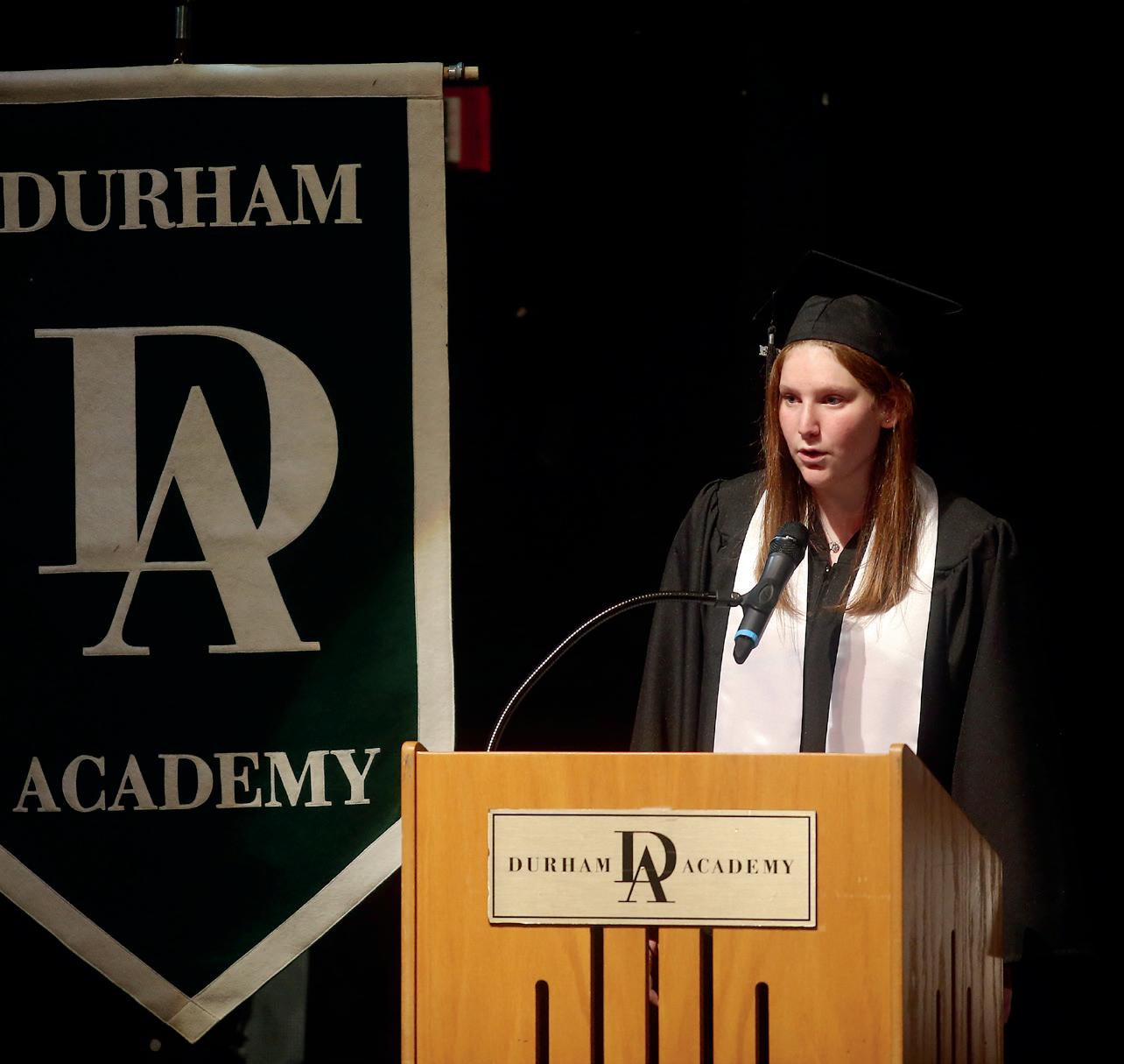
Services (NCDHHS) — emphasized the importance of nding balance within these three attributes and not allowing productivity to overshadow happiness.
“It was while going to school here at DA that I de ned what it meant to be Becki Feinglos, what it meant to be me,” Planchard said. “Becki was an achiever. Becki always looked like she was put together. Becki was beautiful. Becki was kind to everyone. Becki was a performer. Becki was persistent. You could count on Becki to get the job done. Becki would always give 100%. ‘Sleep is for the weak!’ became a mantra for me.”
The imbalance toward productivity which led to sometimesdebilitating symptoms of anxiety and Obsessive Compulsive Disorder continued through her time as an undergraduate at Duke University, as a Teach for America corps member, as a graduate student at the University of Chicago and as a Chicago mayor’s o ce sta er. A couple of years into her tenure with NCDHHS, everything changed.
“ ‘Productive Becki’ got asked on Saturday morning to come into

the state’s Emergency Operations Center in Raleigh to game plan how we would close schools across the state in response to the burgeoning coronavirus,” Planchard recalled of March 14, 2020.
As she was leading a meeting that day, she received the devastating news of her father’s unexpected death.
“This was the beginning of the end of the Becki I had been building up for decades,” Planchard said.
After a month o work, she quickly fell back into her old habits, working around the clock and “ ying by the seat of my pants” as she coordinated public health requirements for schools to operate in the pandemic.
In November, the constant stress led to her being diagnosed with shingles at the age of 31. Forced to take another month o work, she spent the time sleeping and in therapy.
“And I started to realize that living a productive life, only, isn’t sustainable for me,” Planchard said. “I can’t ignore my own wellness in order to achieve outcomes, in order to produce.”
Acknowledging that she is still learning to nd balance, she
encouraged the seniors to not assess their worth by productivity alone.
Referencing DA’s mission to equip students for “moral, happy, productive lives,” Planchard said, “I feel like I somehow missed the message about the ‘happy’ part when I was sitting in your seats. But I hear it now. And I’m working on it. I hope you hear it today and remember it tomorrow.
“As you go o to whatever and wherever is next for you, I want you to remember this: you matter, you are worthy, you have value, you deserve rest and you deserve to love yourself, no matter what,” she continued. “… I congratulate each and every one of you for all you’ve achieved and all that you have produced. But much more importantly, I congratulate you for striving to be authentically, happily, you.”
Watch a video recording of the commencement ceremony at bit.ly/DAcommencement2021.
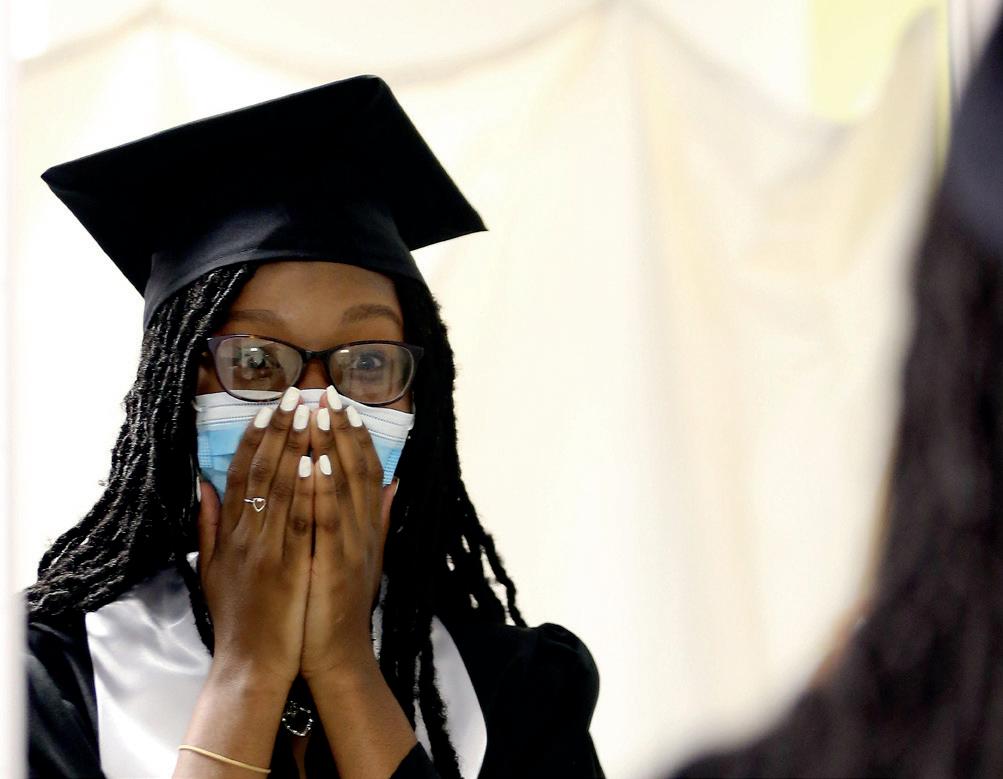

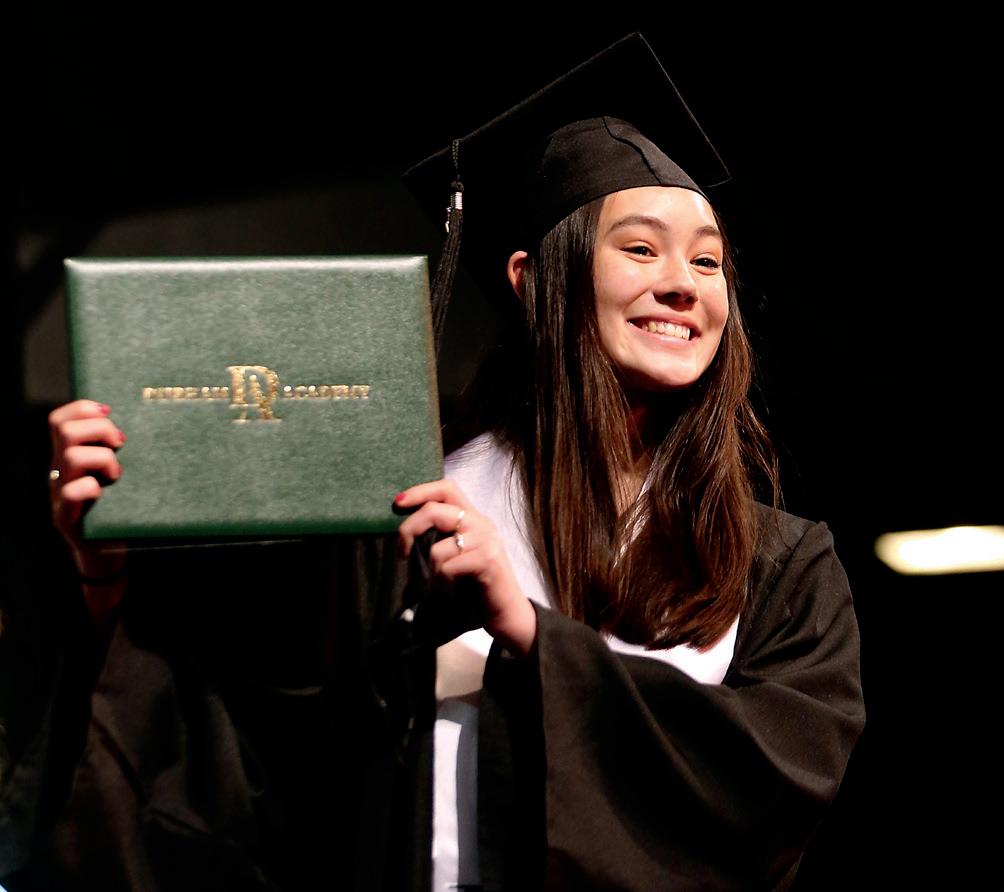

Looking back on that joy-filled day — March 6, 2020 — no one could have imagined all that was to come. After spending an extended assembly period pondering the science of gratitude and then expressing their gratitude for classmates and teachers via Kenan Auditorium shout-outs, Durham Academy Upper Schoolers were heading o to spring break on a positive note. Out on the newly minted K Family Outdoor Commons, hugs and handwritten thank-you notes were exchanged. Spring break plans were discussed.
Just five days later, the World Health Organization declared the rapidly spreading coronavirus outbreak a pandemic. Halfway through DA’s planned spring break, families and students were notified that the break would be extended, followed by an indefinite period of remote-only learning — which ultimately continued through the end of the school year.
As Daniel Park ’21 put it, “I learned that as fun as it may sound for your junior year spring break to get extended because of a weird virus going around, it’s definitely not worth it.”
The Class of 2021 has come of age during COVID19, and it’s safe to say that from spring 2020 on, they have been through a lot. As juniors, they had to quickly adapt to a whole host of challenges and coronavirus-related restrictions — and during a year that even in the best of circumstances can be anxiety-ridden. Students had to pivot to learning online. Student-athletes missed out on their spring seasons. Musicians and dancers had to rehearse for culminating performances via a Microsoft Teams connection. The speech and debate team participated in national competitions on Zoom.
And everything, it seemed, was canceled. Cavalier Capstones — including international trips — were canceled. Prom was canceled. Community service was canceled. Riding around in a car with friends was canceled. At a developmental stage when it’s natural for teenagers to increase their independence from family and form strong bonds with their peers, stay-at-home orders made that nearly impossible.
In the summer, members of the Classes of 2020 and 2021 joined with DA alumni and called on the school to prioritize its commitment to racial equity as part of the largest racial justice movement since the civil rights era.
The fall brought a return to campus two days a week, with Upper School students split between two cohorts that took turns learning in person and remotely. They learned how to listen to lessons through teachers’ masks and how to recognize friends’ emotional expressions through their eyes. At a time in their lives that might have been traditionally marked by small acts of rebellion and rule-breaking, they dutifully adhered to every safety protocol. With modifications to follow COVID-19 safety protocols, sports resumed. Performing artists were able to rehearse together, albeit outdoors, once again. Students found joy and friendship on campus, and eventually fell into the familiar patterns of a somewhat unfamiliar version of school, in spite of the uncertainty in the world around them.
In November, some members of the Class of 2021 played a part in determining their own futures and the future of the country by voting in the presidential election.
After wondering much of the school year if long-anticipated senior year traditions — Senior Challenge, prom and a group graduation ceremony — could safely happen, they did. Spring 2021 marked a historic moment — the rollout of COVID19 vaccinations for students and teachers — that provided a sense of hope, and opened a window for the return to traditions. Within the span of a week in late May, members of the Class of 2021 hiked mountains, danced the night away on Alumni Field and marched to the tune of Pomp and Circumstance to the K Family Outdoor Commons — where nearly 15 months prior, they’d had that last gratitudetinged taste of normalcy.
“Whether in the classroom, in the art and performance spaces, on the fields, or as voices of activism and change, the Class of 2021 has pushed through the distance and screens of the last year to engage more with the things that matter most to them,” said Laci McDonald, Upper School dance teacher and a lead advisor for the Class of 2021.
“I am proud of the seniors for not only wondering and questioning, but for activating and doing.”
The last year and a half has created unimaginable challenges for the Class of 2021. But these months have also been ripe with opportunities for the class to learn more about themselves, to put things in perspective, to find moments of gratitude. So for the following reflections, please stay seated for the seniors.
Q — What were those first few months of COVID-19 — marked by stay-at-home orders, remote learning, a toilet paper shortage and widespread uncertainty — like for you? How have things changed as the pandemic has continued?


So at the end of junior year, it was definitely odd, but we were only doing it for what, two months, maybe. So it felt more like a little trip, like something a little bit di erent. Then having the summer experience — like, wow, we’re actually [still] in lockdown — then coming back to school felt weird, like, wow, we’re actually hanging out with people on campus, even in hybrid. And then as the school year wore on, it’s kind of like, OK, this is what it’s like. So for me, it was definitely unique for sure. But it was also just like, this is what life is like. And so it kind of didn’t feel as crazy as I think it will feel looking back on it when we get back to what we used to be like.
Initially, when we didn’t expect it to be this long-lasting, I at least had a bit more of a lighthearted approach because I really lucked out with my standardized tests — I already had those done, so I wasn’t really too stressed. But as the end of [junior] year approached and they were talking about COVID numbers, you start to realize the summer’s not going to be the same, and the next year is not going to be the same. And then when we got back to school, I was certainly grateful that we were in hybrid mode, because I think that it definitely helped with the learning experience, at least from my experience talking with my friends [at other schools] who didn’t really have hybrid mode until really recently. It was still pretty imbalanced from my point of view, because I basically spent my whole senior year, for the most part, focusing just on school. And I had this conversation with multiple teachers because there was sort of a point where I was really drained. Like, I felt like there was nothing I was doing to sort of balance out my academic life with a social life because we weren’t really able to do anything, at least I didn’t feel comfortable doing anything. And so I was quite exhausted, I think, coming into February.
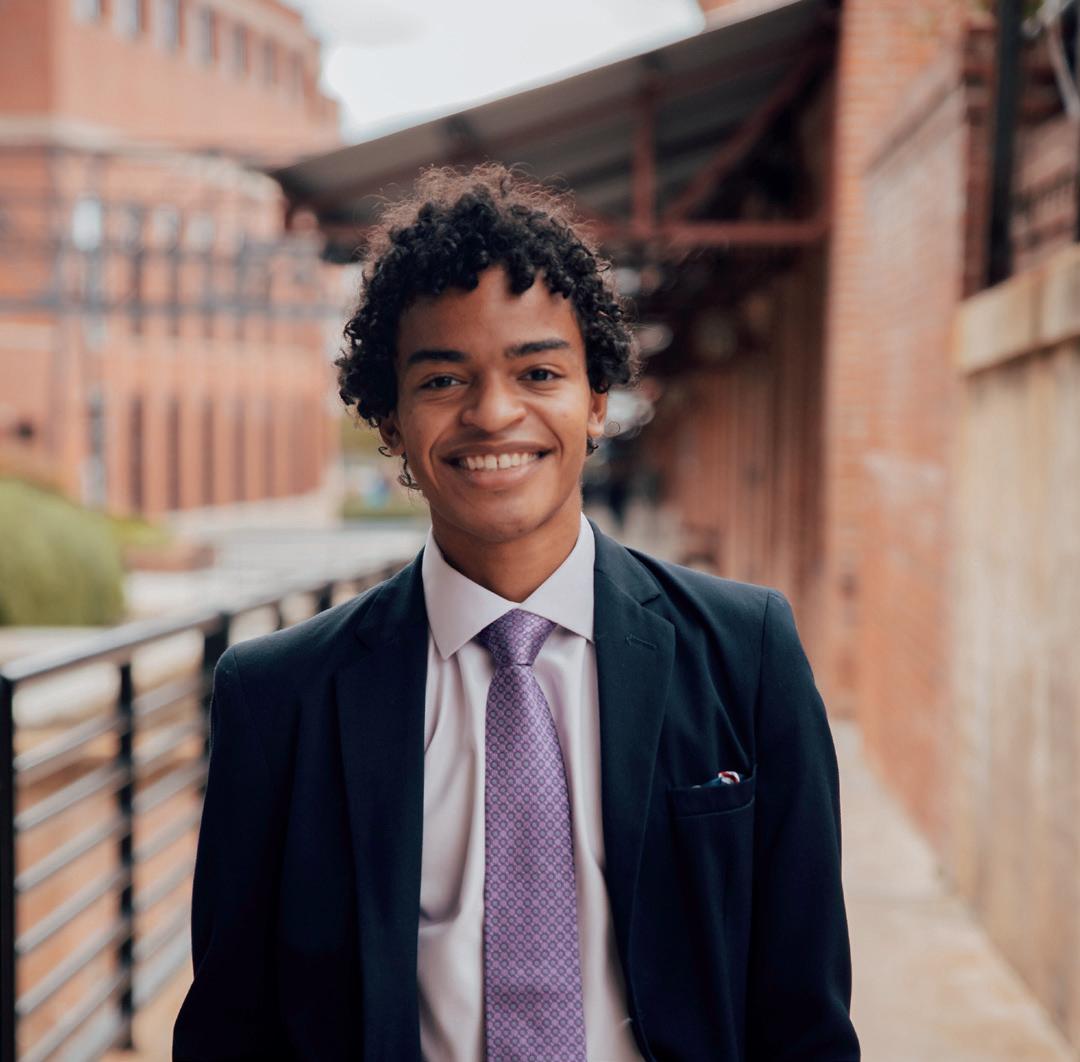
Q — What are some of the things you are disappointed to have missed out on? How have you coped with some of the challenges posed by the pandemic?
A Ryan Norris ’21:
Well, for me, the athletics program has meant a lot to me in my time here. So it [was unfortunate] not being able to go to my friend’s last soccer games, or basketball games that they were playing because of all the COVID restrictions. And I’m really happy that by this spring, we were able to go to games, but for the stu that happened earlier in the year, that was definitely like the biggest loss for me. Last year, we were making all these plans, you know, we’re seniors now. We’ll be in the front row. Like, these are all these chants we’re going to be doing during the basketball games and stu .
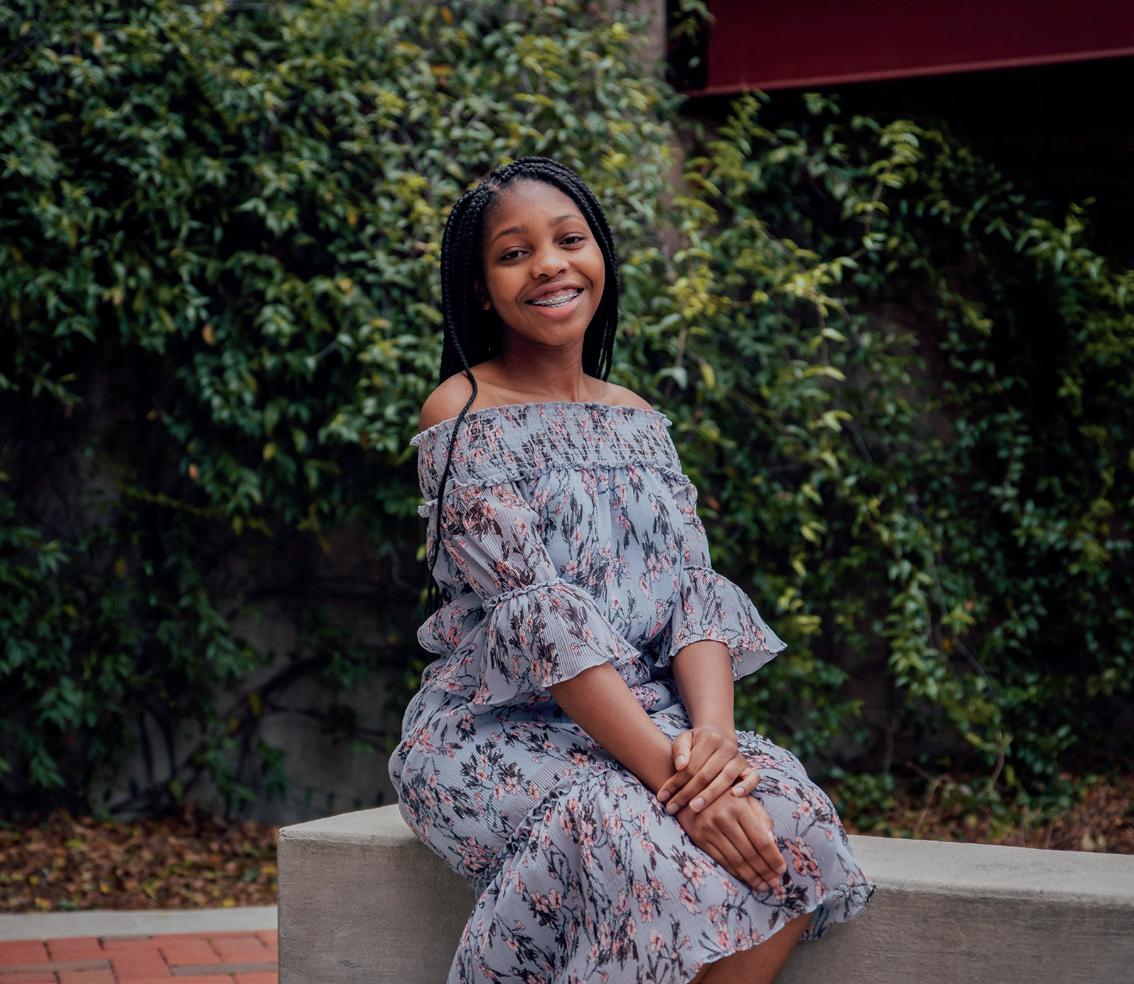
A — Teresa Ibeanu ’21:
Before [the pandemic], I just generally didn’t really go to a lot of school events … I just didn’t want to. But [just before COVID hit], I guess I realized that since it’s my last year, look, why not? Why never do it, why never have the experience? And so when it hit and everything was supposed to be canceled, we weren’t sure that we were going to get any of the things that seniors usually get. Then it was kind of disappointing because, you know, I had planned that if I was to do anything, it would have been this year. So I’m glad that everything was able to be pulled together [for senior events]. We were told by our advisers that it would be kind of last minute or it’s very tentative and stu like that. But they were able to pull it together very nicely. Even [college] T-shirt day — which is something so simple, but it’s still going to happen, and we’re still going to be able to be with each other.”
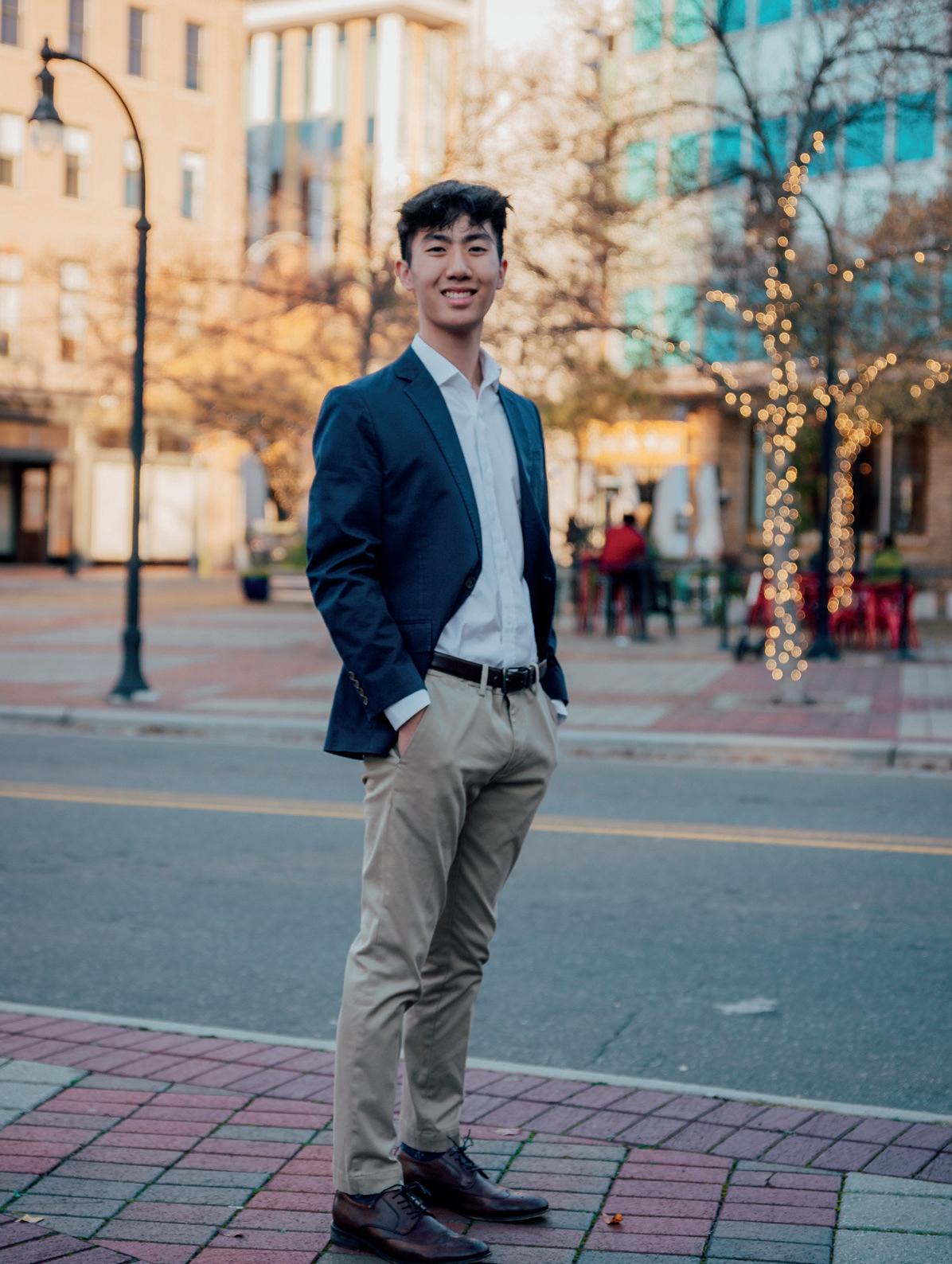
A Felix Liu ’21:
I think we, at least my friends and I, really cherish the time we get at lunch, for example. We all sit in the same area outside and we try to play as much soccer as possible or go and get some food together. And we always really look forward to that time during lunch because it’s one time where we get to have our masks o outside and chat, joke, play soccer and all that good stu .
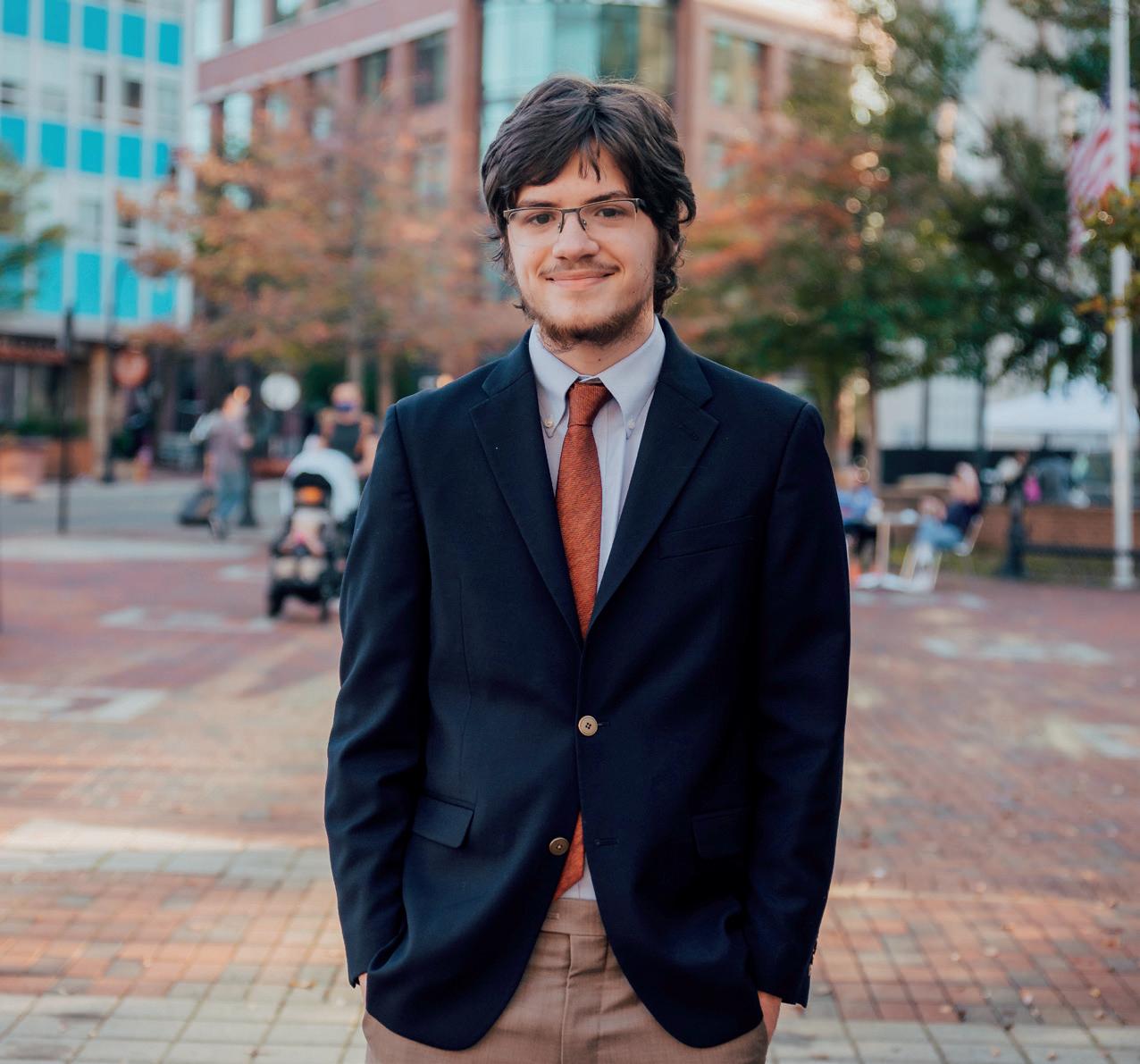

Q — Is there anything you have learned about yourself through this experience?
A Chris Burkhard ’21:
I’ve learned that human connection is critically important. I’m a bit of a recluse, and I’m quite introverted. I didn’t realize how much I relied on others. This pandemic has made me truly appreciate the connections I’ve formed at DA, and how they help to make me a better person. With friends, I’ve shared laughs, tears and countless stories, and those things didn’t stop just because we couldn’t see one another in person. It’s cheesy, I suppose, but I’m grateful to have realized what people truly meant to me.
A Raguell Couch ’21:
In a way, when I was deciding on which colleges I want to choose or should I take a tour or should I not take this class because I need a break this year, it became very apparent that I had to think for myself and think about myself in that time.
A Jackson Tupper ’21:
I’ve learned a lot about my own personal drive. I’ve been able to put my mind to work (without anyone chirping on my shoulder that I had to do it) and get it done. Through this, I’ve become a lot more self-reliant.
I have learned just how important this time in our lives is and how vital it is to be grateful. A lot of my time in high school has been worrying about the next step, and this time has given me the opportunity to reflect on the significance of the present moments that I have with my classmates.
Now you realize that social life is quite imperative to having, at least in my opinion, good mental health and in general just feeling more well-rounded and having structure. … Initially with the pandemic, I definitely feel like you got a taste of what not having a social life really means. And so I feel like much later down the line, if I had kids who are teenagers, I feel I would be gracious when they would want to communicate with their friends. I feel like I would understand more so that having that outlet is probably more important than it initially seems.
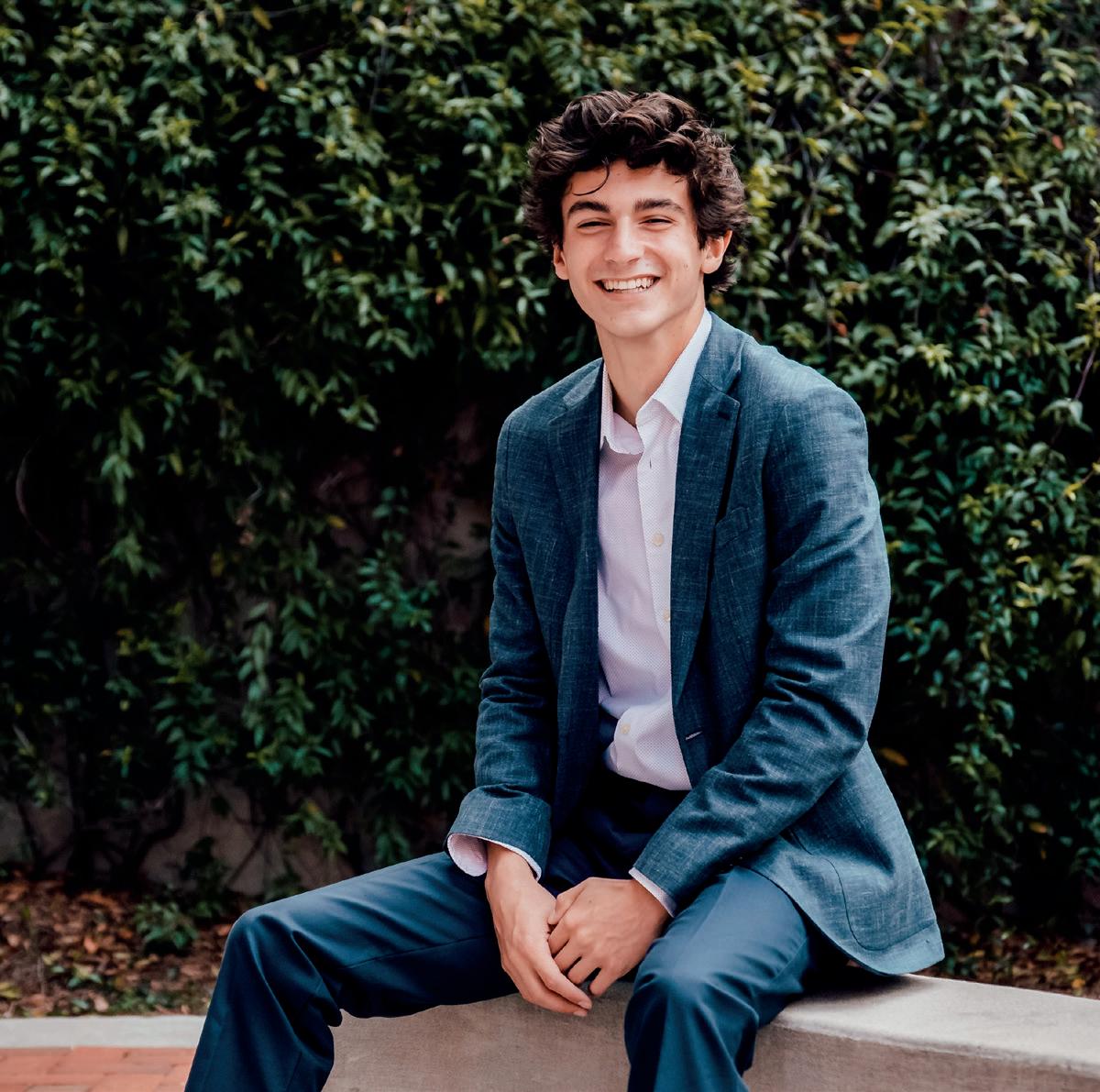
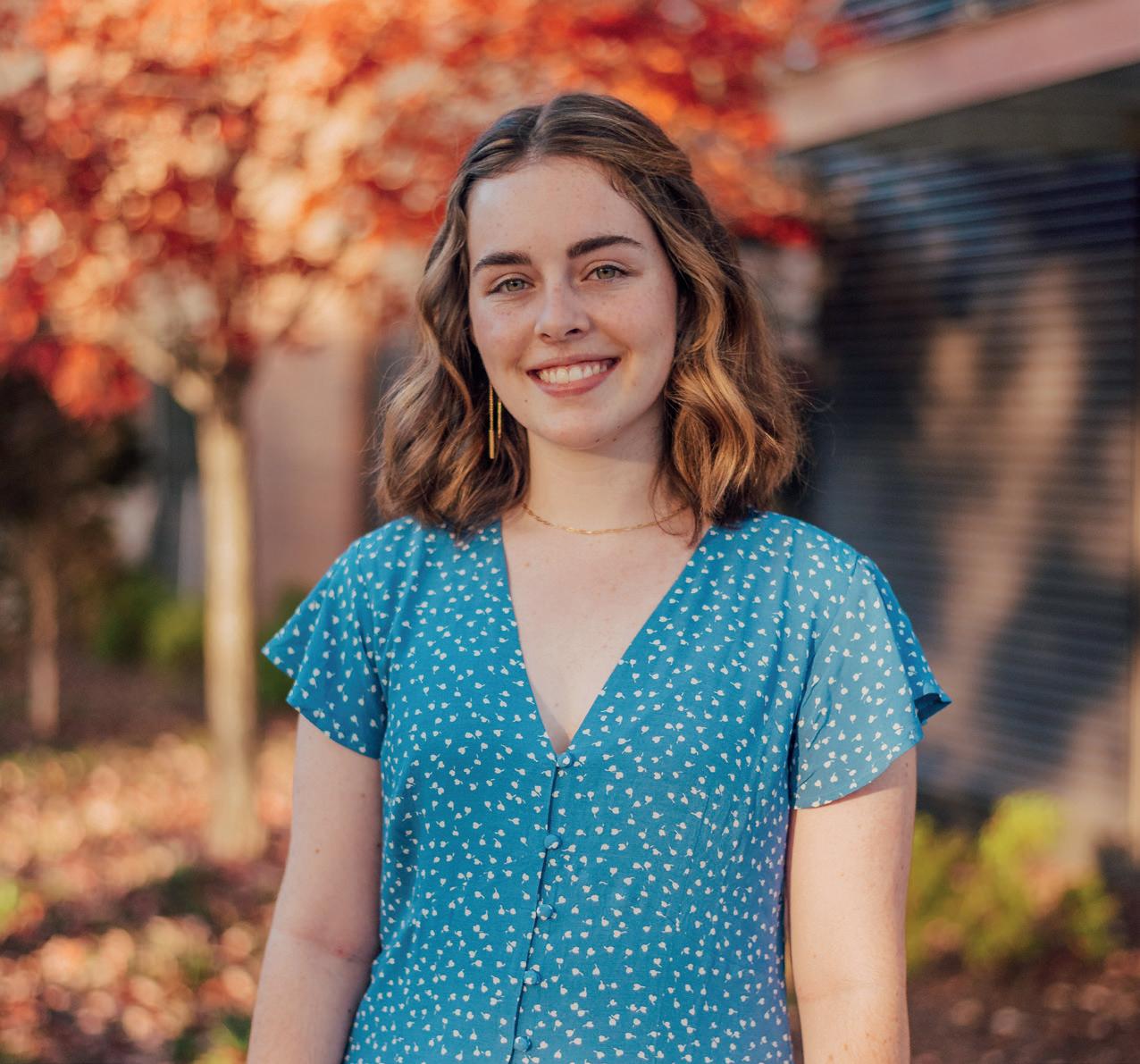
Q — Have you experienced any silver linings in the pandemic?
A — Norris:
I think everyone has kind of started to value the time we have together a lot more. Like whenever there’s an opportunity for people to get together for something that’s been planned, everyone is really excited about it and enthusiastic, as opposed to maybe the years before.
A Couch:
A lot of people I knew took up causes this year, even though we couldn’t go out of the house that much and you couldn’t really talk to your friends in person. A lot of people championed issues that were important to them and just found something new within themselves. So I think we all just found a sense of self that you maybe wouldn’t have, had you not been pushed to the limit.
A Ibeanu:
I feel like I did grow a lot closer to my teachers that I had this year just through small things on the days we were in person. It’s easier to strike up a conversation with them because, I don’t know, it just didn’t feel so disconnected — like the teacher-student divide.
A — Wilcox:
I’ve definitely had more time to kind of just engage in other things, like on the academic side, I’ve started doing things a little bit di erently. Now I have the time to actually kind of redo the stu I’ve been doing and create new habits. I’ve started taking my notes with Overleaf instead of on paper … . I’m learning a slightly more professional industry standard program — that’s something that I thought was probably going to be worthwhile. You have more time just to kind of hang around and do research on random things that you’re curious about. So there have been a lot of subjects that like, oh, wow, I’m curious about this during class online on a Teams call, I can just Google it and read the Wikipedia page for it. After class or during asynchronous time, I can go watch videos on Khan Academy about it. There’s more time and also less rigor, so you can kind of just experiment with what you want when you’re bored and learn new things.
Q — What has it been like to regain a bit of normalcy at the end of the year, as the availability of vaccines has made it possible to participate in some senior year traditions?
A — Couch:
I feel like we started this year with a lot of uncertainty. So you don’t really know what to expect or what this year will sort of turn out to be. But I think having that sense of normalcy has really made it a better time to celebrate each other. Just kind of reflect on the fact that this is our last year and this is really it. And to have this normalcy just makes it so we’re able to enjoy what we have left a little bit better than just, oh, who knows if we’ll be back in school or who knows if we’ll be able to meet again.
A Ibeanu:
I realized in March when we had a field day [the first time all students in each grade level were on campus at one time] that I hadn’t seen the other cohort since March of my junior year. … And so being able to do all the activities in the last week, it’s kind of overwhelming. But it’s a chance for all of us to reconnect, because usually, I guess the seniors doing this would have been with each other or they would be spread out throughout the year. So it’s not as much at one time, but it also just feels right now like everybody’s bonding with each other a little bit more since we had been so disconnected beforehand.
A — Wilcox:
I’m very grateful to have had Senior Challenge. … Being able to just hang out with your classmates that you haven’t seen all year and people you often haven’t really interacted with at all over the past four years, being able to spend a week with them was really cool. With prom, I’m very excited — I think that will be super fun, and it is definitely something that I didn’t expect to happen. Had you asked me in October, will any of this stu happen, I would be like, no way, there’s no chance. But now, I’m really impressed by how the DA community has handled it and how they’ve been able to allow us to have these events.
Q — Looking back on your DA experience — both during COVID and before — what will you take away with you?
A — Norris:
I guess the thing DA does best, in my opinion, is just the teachers and the relationships they’re able to build with their students. And that’s taught me just the importance of relationships going throughout life. You want to be like the type of person where you can have a conversation with someone who might be a coworker just to build more trust with them. And then that makes it easier down the road to work together. I would never feel afraid if I needed to go to a teacher for help or if I thought they might have messed up a grade. I know they wouldn’t take that personally because we had a good relationship, we could just have casual conversations. Obviously they’re still my teacher, but also regular people as well.
A — Liu:
I think what DA does best, for me at least, is teaching its students how to be a proper member of their community and a good member of their community, and just learning how to be a good person in general. And I think that comes from guest speakers, assemblies or hearing people from the community speak to students and all that stu . It has made a really big impression on me to hear what people do in their lives and how I may learn from that.
Learn more about the members of the Class of 2021 and the teachers, classes and activities that enriched their experience at Durham Academy at www.da.org/graduation.
Thanks to the expanded availability of vaccines, the Class of 2021 was able to enjoy several senior-year traditions — albeit with some modifications in late May.
Under the lights of Alumni Field, seniors enjoyed a memorably unconventional prom experience. The event was held outdoors, with students walking down a red carpet of sorts (luminarias lined the steps of the K Family Outdoor Commons) before having photos snapped by Upper School photography teacher Harrison Haynes. They then made their way down to Alumni Field, where they dined on food truck delicacies, watched a surprise senior slideshow and boogied into the night with their classmates.
Just before commencement rehearsal, seniors gathered for what has become a much-anticipated, student-organized tradition — a huge class photo in which each member proudly displays their chosen college or university on their T-shirt. Lead class advisors Michael Meyer and Laci McDonald helped line the seniors up with appropriate social distancing, while drone pilot Dave Chandler (member of the O ce of Information Technology and father of DA alumni) got the shot. In all, members of the Class of 2021 are headed o to 64 colleges and universities (see back cover ).
Senior Challenge — a five-day backpacking, orienteering adventure in the North Carolina mountains — typically occurs at the start of the school year. But in a year in which very few things took place as usual, members of the Class of 2021 went on Senior Challenge in late May, becoming the 42nd DA senior class to test their mettle hiking, rappelling, cooking over campfires and sleeping under the stars. Director of Physical Education Greg Murray has been a part of the Senior Challenge organizing crew (a ectionately nicknamed “the Mountain Men”) since 1986 and has served as director of the program since 2005.
“Even though it was super challenging and was di erent than any of us expected, the biggest part of it was that we got to do it together, which I know sounds incredibly cheesy,” said Elle Gross ’21. “Getting to do it with other people made it a million times more fun. Alone it just would have been a brutal challenge, but together it was a great experience.”


Among the e orts that had to be reinvented this year was community service. Learn how the Class of 2021 worked together to learn more about the community in which they live at bit.ly/SeniorService2021
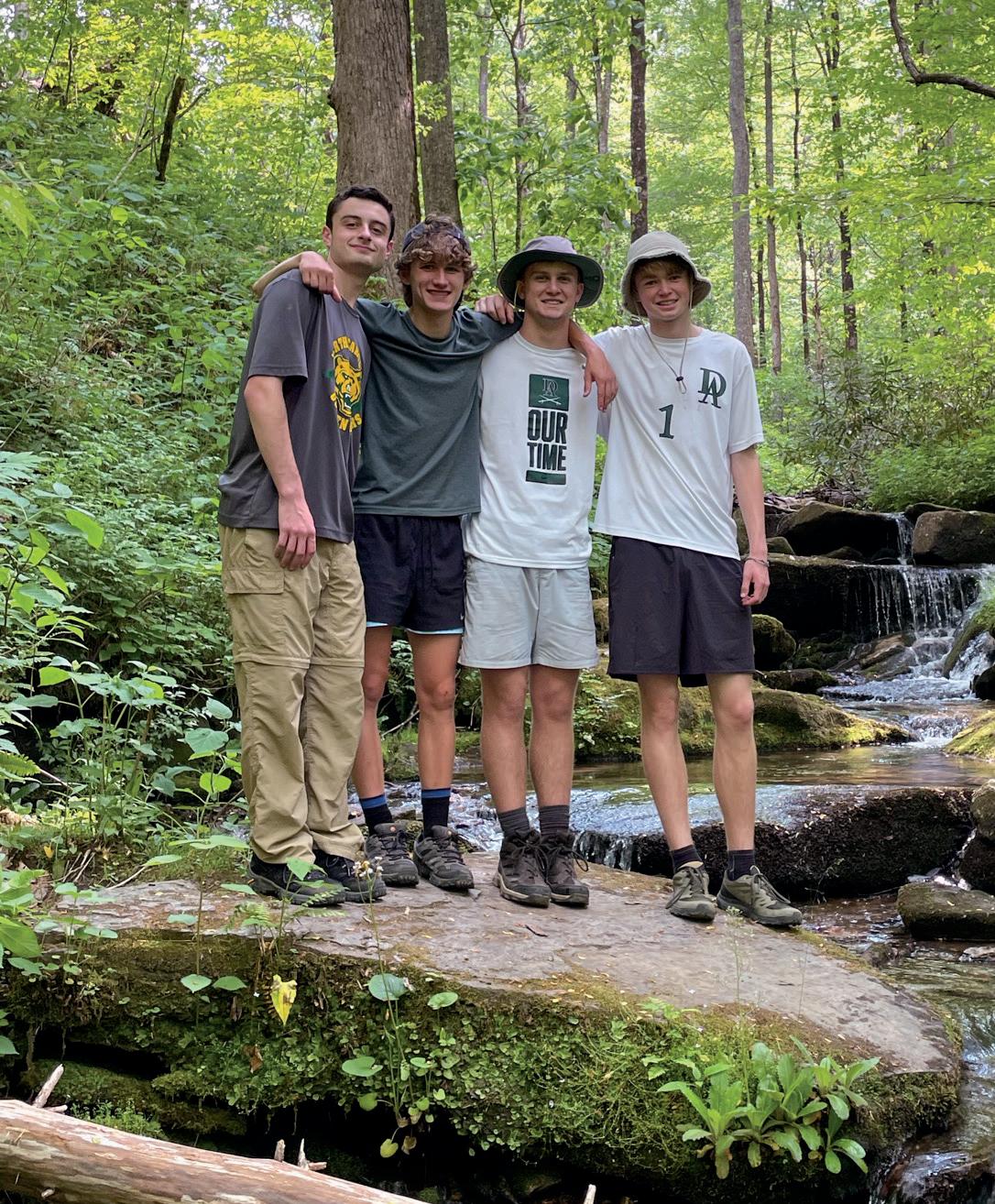
Story and Photography by Melody Guyton Butts

Brimfield has competed with the DA varsity boys golf team since his seventh-grade year. In that time, he has been named All-Conference four times and All-State in 2019. He was the top-ranked player in the NCISAA’s 4A division in spring 2020 when the season was suspended due to COVID-19. Brimfield had top-10 finishes in multiple American Junior Golf Association events in the past three years. He is currently ranked No. 2 in his class in North Carolina in the AJGA Rolex Rankings and is ranked within the top 150 nationwide.
“I am extremely proud of Jackson,” boys golf coach Greg Murray said. “He personifies the perfect blend of talent, work ethic, sportsmanship and maturity. He has been a mainstay in our lineup since joining the team in seventh grade, and our teams have been extremely successful during that run. He is known statewide as a gentleman on the course. Louisville is getting a diamond that’s rarely in the rough!”
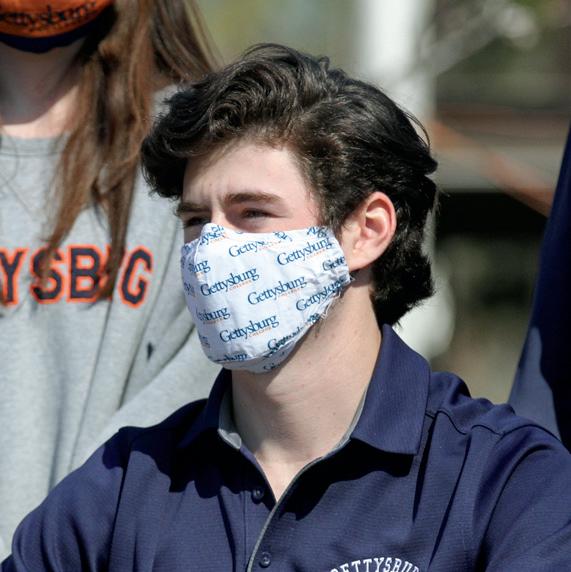
John Donovan has been a member of DA’s varsity lacrosse team since 2017, is a four-year starter and is a two-time captain of the team. A goalkeeper, he was named All-Conference in 2019, 2020 and 2021 (when he was also TISAC Player of the Year).
“When you look back at his career, John has been the deciding factor in so many games, from his game-saving save at the end of regulation during our epic double-OT win at Ravenscroft during his freshman year or his time-expiring save to preserve our season-opening one-goal win vs. Charlotte Latin, John has always come through for his team,” varsity boys lacrosse head coach Jon Lantzy said.
“Firstly, I would like to thank my family and friends who have supported me so much throughout my high school experience and my life,” Donovan said. “I also cannot thank Coach Jon Lantzy enough for all he has done for me, such as calling coaches on my behalf to vouch for me and always pushing me to get better as a player and a person.”
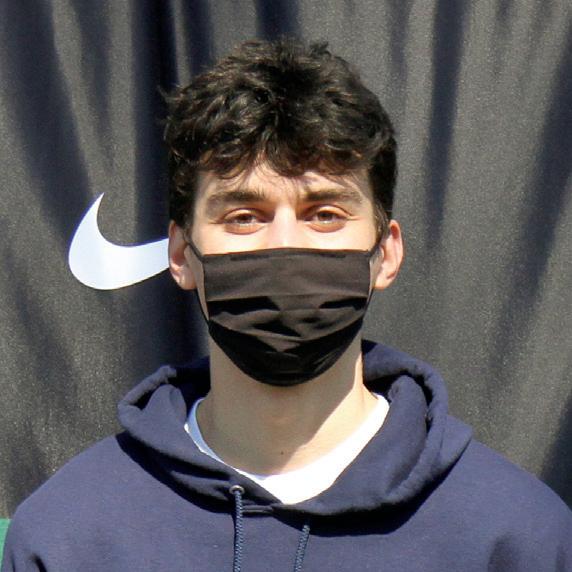
Toby Harris has played varsity hoops at DA since 2018 and has twice been named All-Conference and All-State. In the DA record books, he stands at No. 11 in points (1,022) and No. 4 in three-pointers (176). He was named co-MVP of the DA boys basketball team his senior season.
“Toby has been a great asset to our program over the past three years,” varsity boys basketball head coach Tim McKenna said. “His game has grown from being just a spot-up shooter to an all-around threat on the o ensive end. He brings great enthusiasm to games and practices, and he is a good role model for our younger players.”
Harris expressed gratitude to those who helped him reach his goal of playing at the college level: “I am super excited to play at the next level, especially at a school like Brandeis. The coaching sta has been super open and accepting of me, and I can tell that they know what they are doing. I am really looking forward to playing for another great program and hopefully competing for a national championship.”
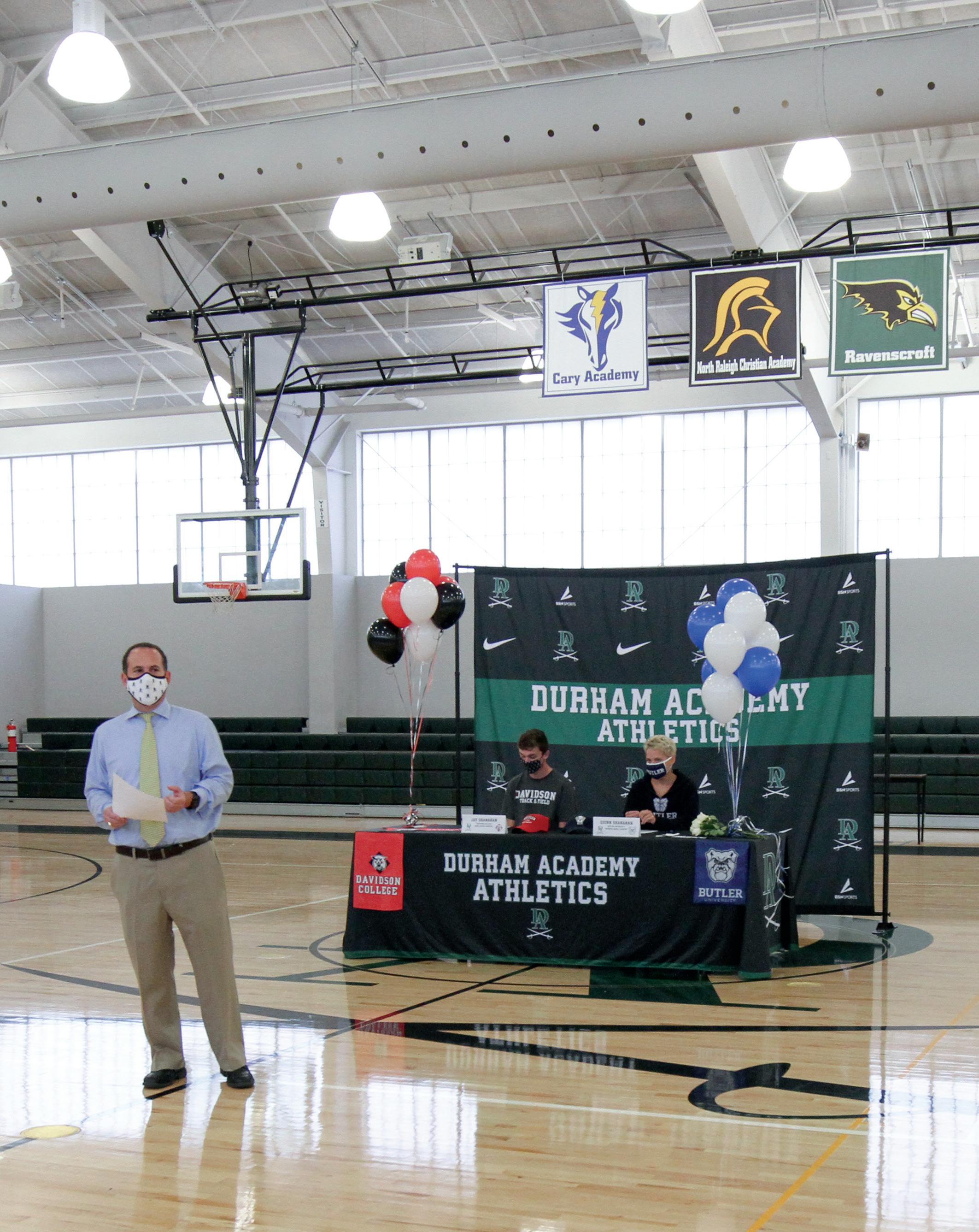
Nine Durham Academy seniors are trading DA green and white for jerseys and caps of new hues as they compete in collegiate athletics at the Division I and Division III levels next school year. Four of the student-athletes participated in a live-streamed signing ceremony on Nov. 11 in Kirby Gym, and five were part of an outdoor signing ceremony on Feb. 25 on the Upper School quad.
“These student-athletes represent the best of Durham Academy,” Director of Athletics Andy Pogach said. “They all have great individual accolades, but what sets them apart is their ability to be great teammates, to be coachable and to leave their programs better than when they started.”

Katherine Lantzy joined DA’s varsity field hockey program as an eighth-grader. In the years since, she has earned All-State recognition three times; All-Conference honors four times; and the Triangle Independent Schools Athletic Conference Player of the Year honor in 2020. She was also named the DA field hockey team’s MVP three years.
“Katherine is a wonderful player, but her stats can’t illustrate her true value,” varsity field hockey head coach Judy Chandler said, noting that Lantzy is only the second eighth-grader selected to join the varsity team in her three decades at the helm of the program. “Katherine is a gifted athlete who chose field hockey as her passion. She has been focused on becoming the best that she can be since third or fourth grade.”
“The amazing liberal arts education and championship program fit everything I was looking for,” Lantzy said of Middlebury. “The coaching sta , team and culture of Middlebury field hockey is unparalleled. It will be a dream come true to step on the field as a Panther in the fall!”
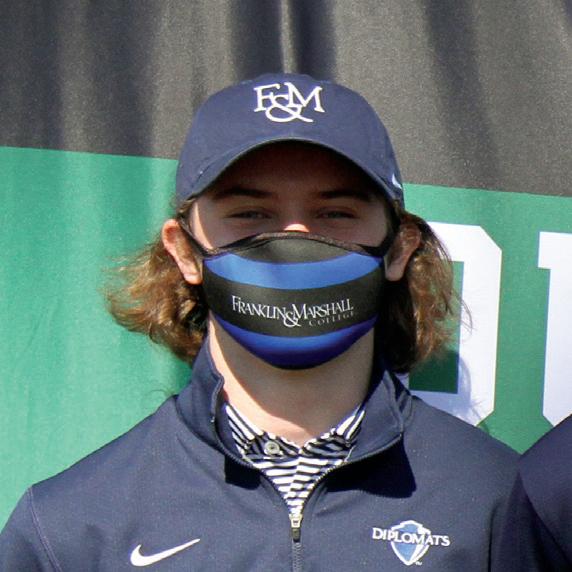
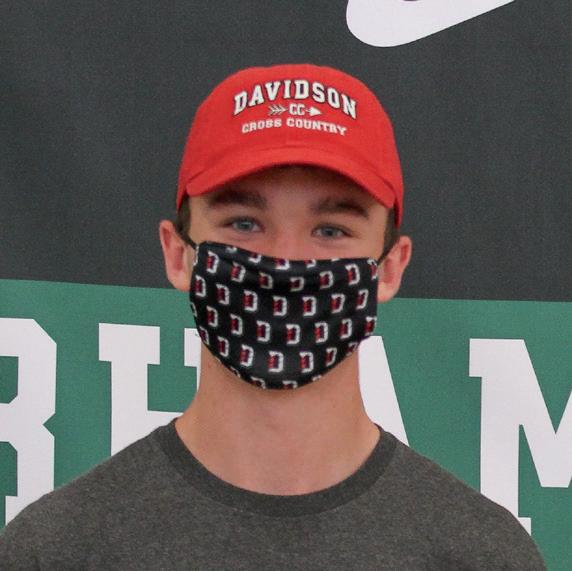
Gavin Schulz, a five-year member of DA’s varsity boys lacrosse team, started for the program for three years and twice served as a team captain. He is a three-time AllConference honoree.
“Gavin is one of those kids that dreamed big as a young guy, went to work and made those dreams a reality,” head boys lacrosse coach Jon Lantzy said. “… Gavin is a talented, skilled player who loves the game. Franklin & Marshall is getting a great kid that will make their program better in every way.”
Schulz expressed gratitude for the support of his family and Lantzy: “Coach Lantzy pushes me hard every day to become a more skilled player, and I think that really contributed to my abilities on the field. More importantly, he has instilled a set of values in me and the rest of the boys lacrosse team that keeps us grounded and on the right path.”
Jay Shanahan competed as a varsity DA cross-country runner for four seasons and has been a member of the Cavs track and field team since 2018. He holds the record for the fastest 5K cross-country time in DA history, 15:41.80, and has broken 16:00 on three di erent courses. As a cross-country runner, he has earned third-, fifth- and eighth-place finishes in the NCISAA meet, as well as two second-place finishes and a fourthplace finish in the TISAC meet. He has helped the Cavs earn two TISAC team championships and two state runner-up finishes.
“He loves to run. He loves to train. He loves to run fast. And he loves to run with his teammates,” said boys track and cross-country coach Costen Irons. “His enthusiasm for all of it is contagious. … It has been an honor and a joy to coach Jay Shanahan.”
Jay Shanahan said he is excited and grateful to be able to continue running at Davidson: “I never thought that I would be given the opportunity to compete in athletics at a Division 1 school. Overall, I’m looking forward to competing at the collegiate level and meeting new people. I can’t wait to meet and train with the rest of the team and compete in the Atlantic 10 like my mom used to!
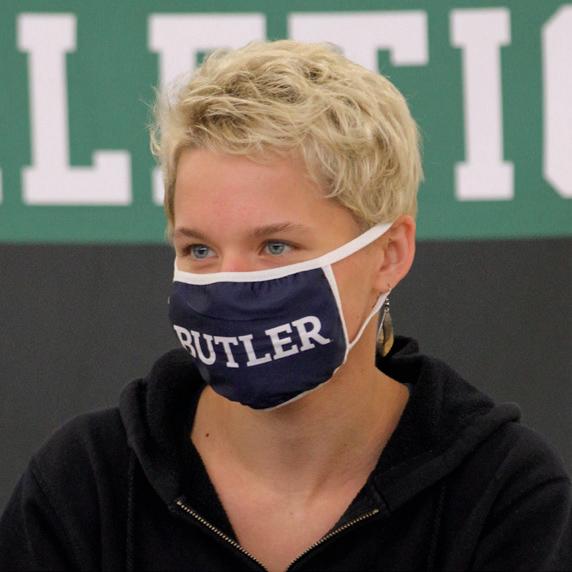
Quinn Shanahan competed with DA’s varsity cross-country team from 2017 to 2019. In 2019, she earned a runner-up finish in the Triangle Independent Schools Athletic Conference cross-country meet and finished third in the NCISAA. As a competitor with the DA track and field team in 2019, she was runner-up in the TISAC 800m race and finished seventh in the N.C. Independent Schools Athletic Association 800m run.
Quinn Shanahan has also racked up a slew of cross-country honors outside of her competition in a Cavaliers uniform. Among those is a first-place finish in the Monster Dash Invitational in October 2020, which she earned with a personal-best time of 17:49.40 — the third-fastest 5K in the state and 117th fastest in the nation.
“My parents and my brother, Jay, have been with me every step of the way. I can’t be more grateful for them and their support,” she said. “My mom, especially, has supported me, motivated me and cheered me on throughout this process. She has been a motivation and one of my greatest fans (even driving me in the rain to our 6 a.m. runs!). I have learned so much from my dad, and he has only ever pushed to run faster, harder and constantly reach for the goals I thought were unattainable. My brother continues to inspire me through his own running. I’m so happy to have gone through all of this with him. He’s my best friend.”
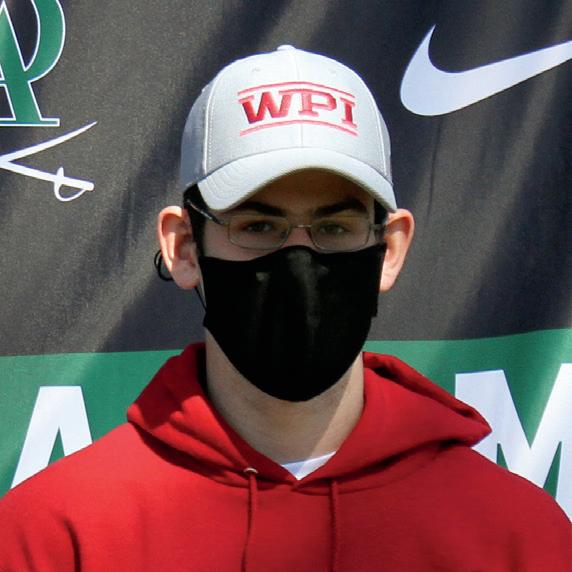
Scott West has been a member of DA’s varsity baseball team since 2017. In that time, head coach Tyrone Gould said he has “had a major impact.”
“His o ensive contributions and his clutch nature have helped secure wins as a member of our varsity team,” Gould said. “Scott’s reliable nature has resulted in several twoout RBIs and critical base hits. … Scott is a true competitor and takes great pride in dedicating countless hours to improving his skill set as a baseball player.”
West said he is looking forward to the adventures to come at WPI — both on the baseball diamond and in the classroom.
“I am very excited about the project-based learning curriculum at WPI,” he said. “I think it is going to be the perfect school for me where I can develop skills in engineering. I am also excited to experience the DIII sports lifestyle. I am looking forward to being a member of a team focused on both academic and athletic excellence.”

Wilson has competed with DA’s varsity cross-country and track and field teams since her ninth-grade year and served as a team captain for both teams in 2020. In cross-country, she holds a best time of 18:58, becoming only the eighth DA girl to run under 19:00 on a 5K course. Wilson has been named All-Conference three times, having notched a runner-up finish and two fourth-place finishes in the TISAC meet. She is a three-time AllState honoree, having earned third-, fifth- and seventh-place finishes in the NCISAA meet over the last three years. Wilson’s teams have twice been state and TISAC champions.
In track, Wilson was state runner-up in the 2019 NCISAA meet 3,200-meter race and third place in the 1,600-meter race. At the 2019 TISAC meet, she won the 3,200meter race and placed third in the 1,600-meter race.
“My family and friends have always supported me with both school and running, and I am so grateful for all of their support,” Wilson said. “I have also been incredibly blessed with amazing teammates and coaches. Coach [Costen] Irons, Coach [Kristin] Stroupe and Mr. [Dennis] Cullen have been such amazing mentors and coaches to me throughout high school. … They have all taught me lessons that I will carry with me into college and beyond, and I can’t thank DA enough for the opportunities and coaches they have provided me.”
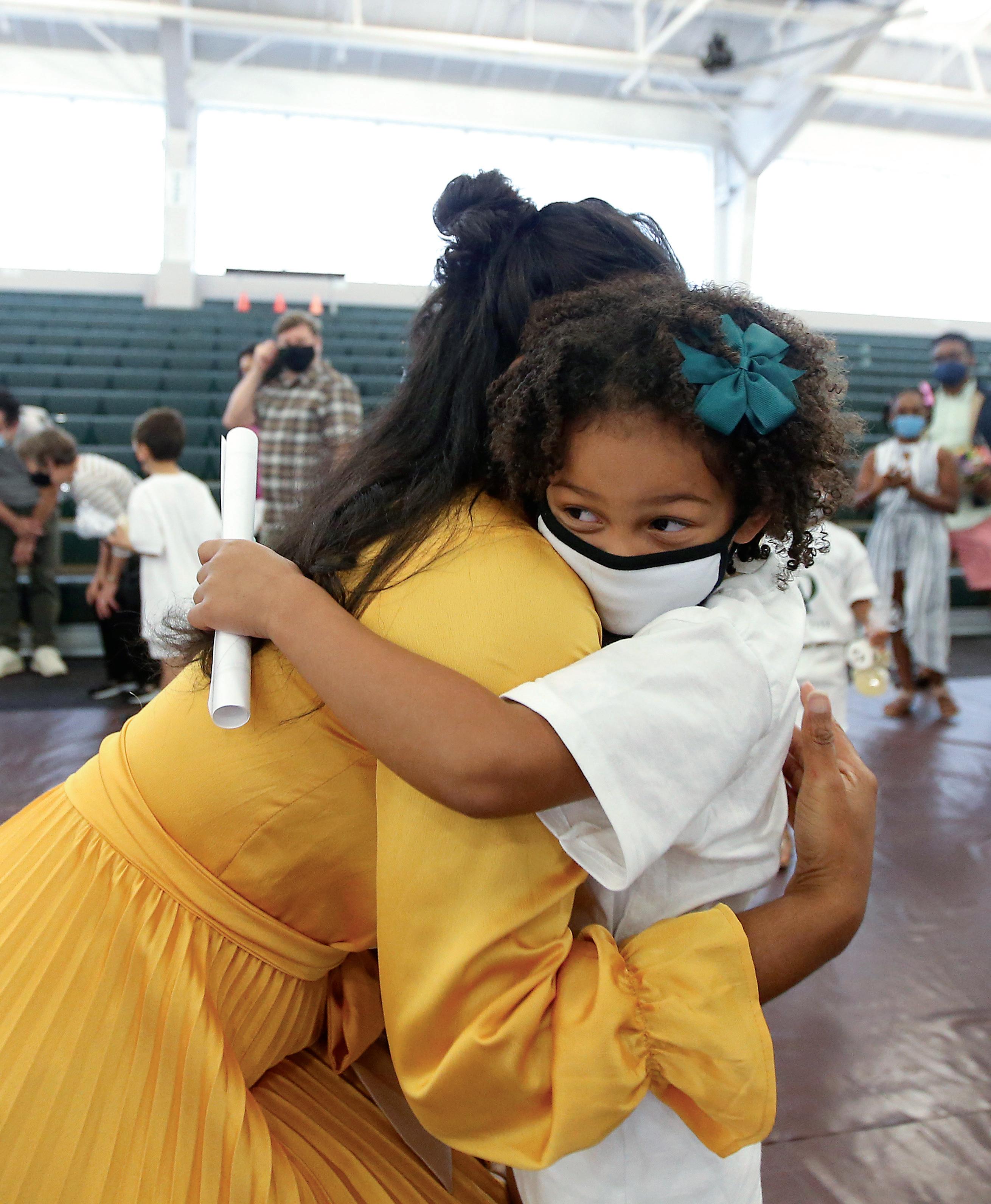
In a school year when few events took place in the “usual” way, Preschool, Lower School and Middle School followed suit and adapted closing exercises to accommodate for COVID-19. Preschool and Lower School moved their culminating events to the Upper School’s Kirby Gym, with 67 students receiving certificates for completing kindergarten and 75 students finishing fourth grade. Middle School closing exercises were held outdoors, with 96 eighth-graders moving on to high school.

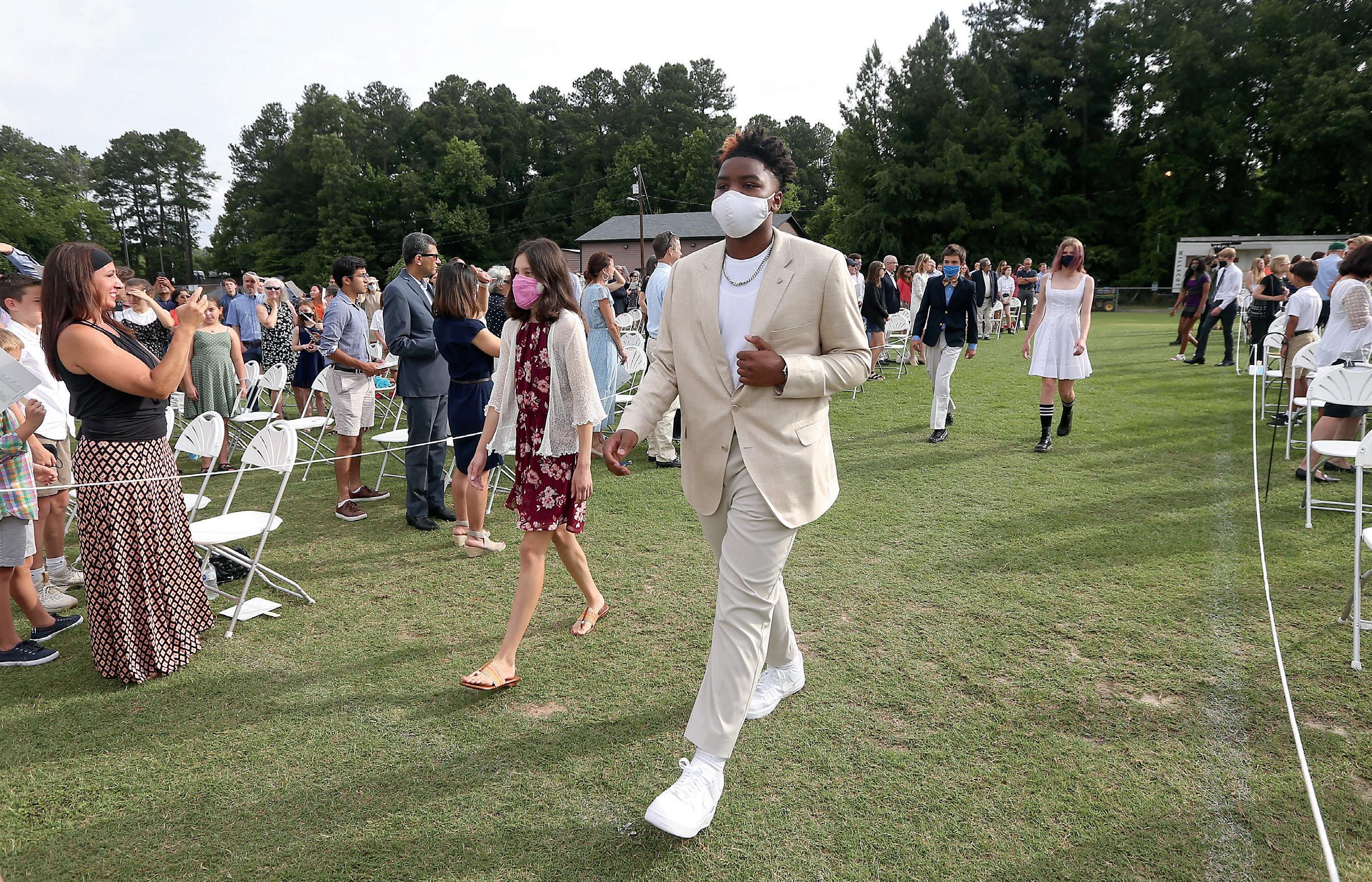
Durham Academy Upper Schoolers are getting a big taste of the business world thanks to an innovative collaboration with District C, a nonpro t that empowers high schoolers to solve real-world problems for businesses and organizations.
Businesses Incorporate Ideas
Businesses Identify Problem
DA District C + Businesses
Students Pitch Solutions Students Work in Teams
The semester-long course which will be known as Problem Solving for Real Businesses beginning this fall is led by Upper School librarian Shannon Harris and library assistant Katherine Spruill, who serve as coaches for the budding business consultants by occasionally o ering feedback or advice.
“We expect the students to do a lot of self-starting,” Spruill explained. “We teach them at the beginning of the class tools they can use to e ectively manage their time and e ectively engage with our business partners, but once they have those, they are expected to go and use them on their own.”
As part of District C a nonpro t that works with schools around North Carolina students work in small teams to identify and solve actual problems facing local and global businesses and nonpro ts. The course consists of three problem-solving cycles involving the following steps: meeting with business partners; learning about
//
the challenges they are facing; collaborating to develop solutions to their problems; and pitching their ideas.
“I like to call it a hidden gem at DA because it’s an applied learning course,” junior Emily Gao said. “It’s where you can integrate all of the skills and lessons that you’ve learned from other classes at DA into a class where you can pitch [solutions for] problems essentially to companies that are really facing them in real time.”
Business partners have chosen to implement many of the students’ solutions.
“What surprised me most about the work was the variety of recommendations,” said Potoula Chresomales, senior vice president of product management at Skillsoft, a global corporate e-learning company. “One squad approached it with a view for the user, walking in the shoes of the user and a design approach how do I design a better user experience? The other squad approached it with economics. … We are going to implement a lot of the ideas that we heard from the students.”
DA alumni Josh Klein ’18, Tatum Teer-Barutio ’18 and Bhamini Vellanki ’18 were among the students in District C’s rst-ever cohort, back in spring 2017. At that point, students were participating in an extracurricular capacity, outside any class or club at DA. In the summer of 2019, Harris and Spruill attended District C’s Coaching Institute in order to o cially implement the programming at DA in the form of a class.
In all, 21 DA students have enrolled in the class, helping to address challenges faced by the likes of Sports Endeavors, Masala My Life, Zweli’s, Exec Socks, CourtRoom5 and Activate Good.
Watch a video about DA’s partnership with District C: bit.ly/DistrictC2021
Learn more about District C: www.districtc.co
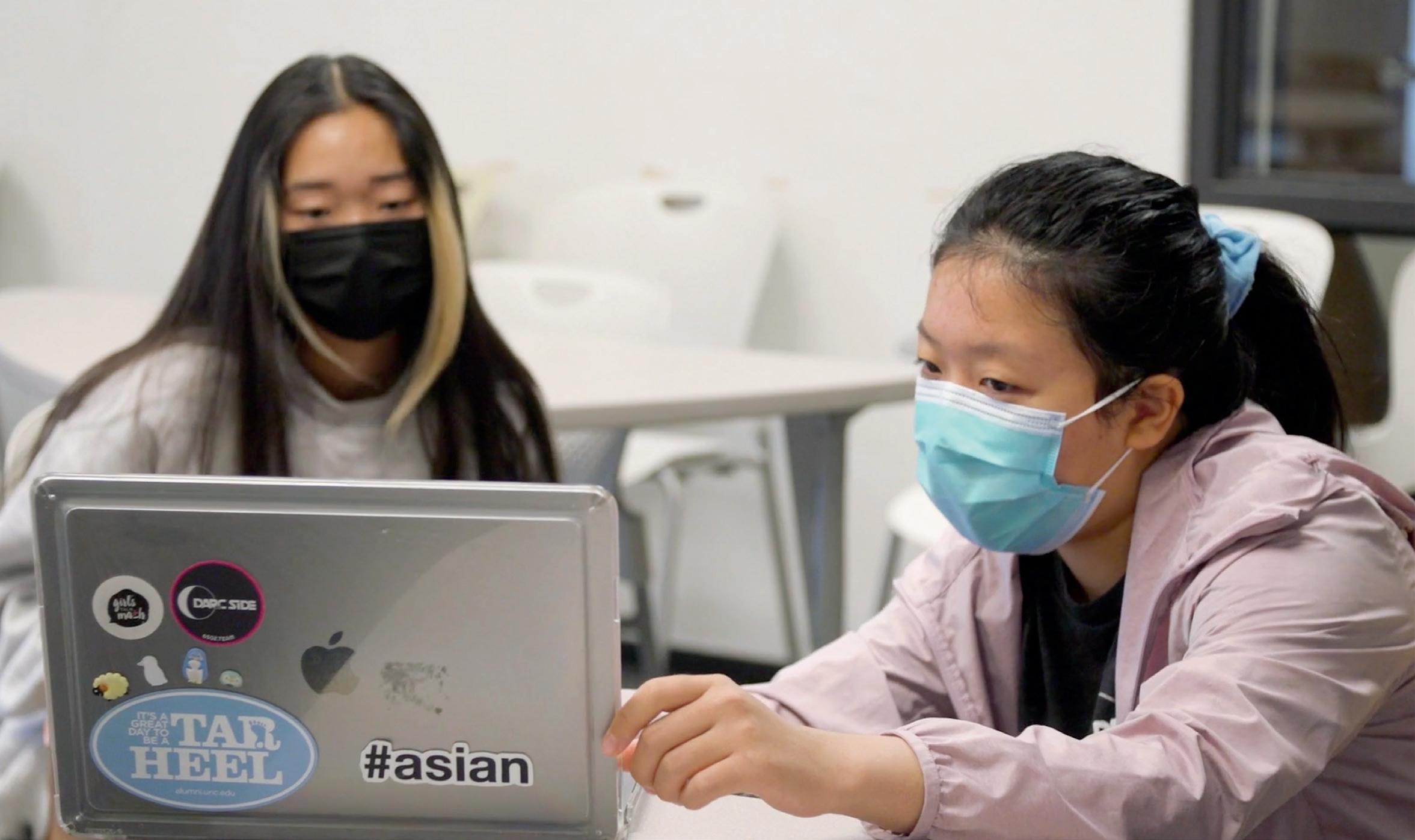
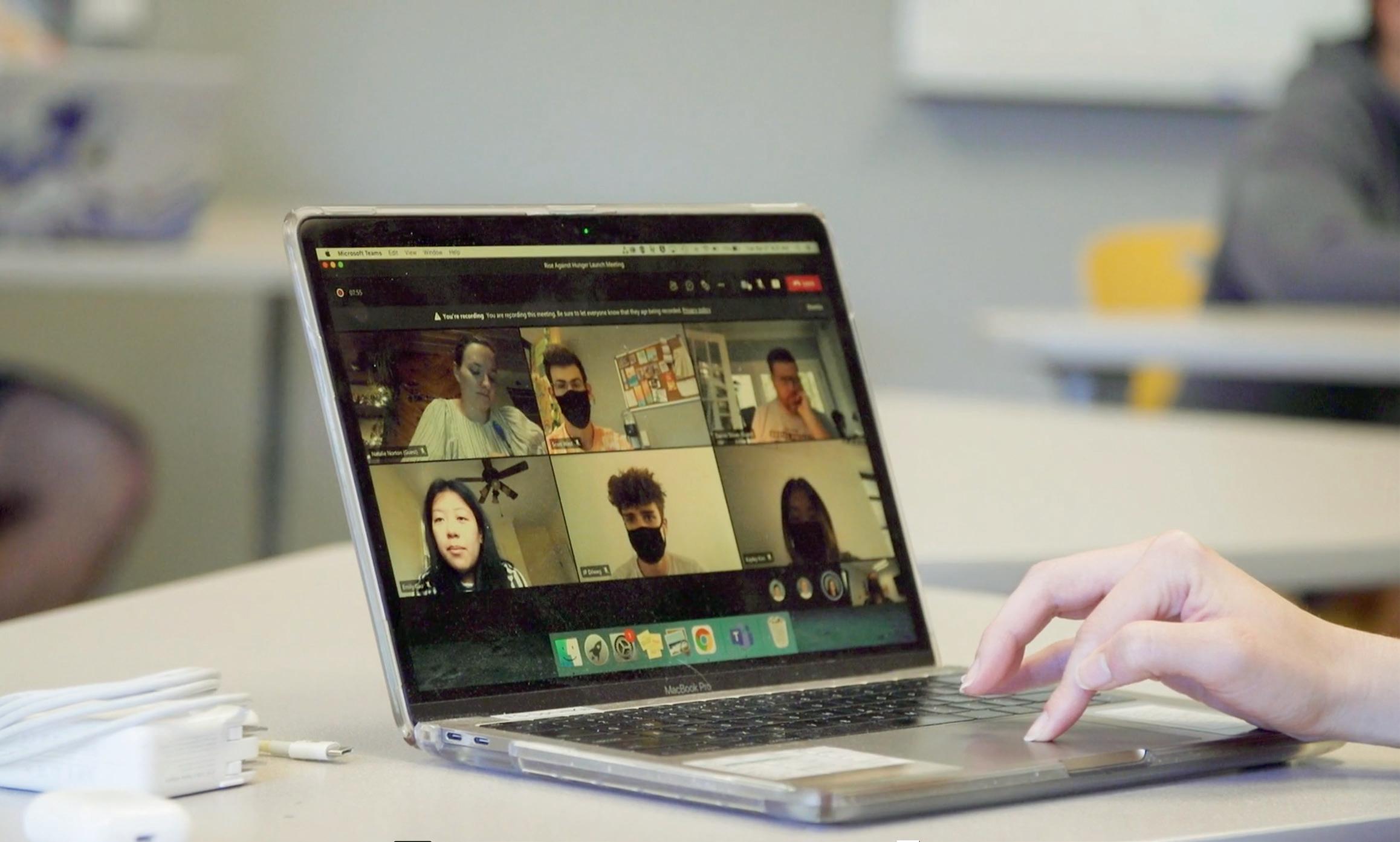
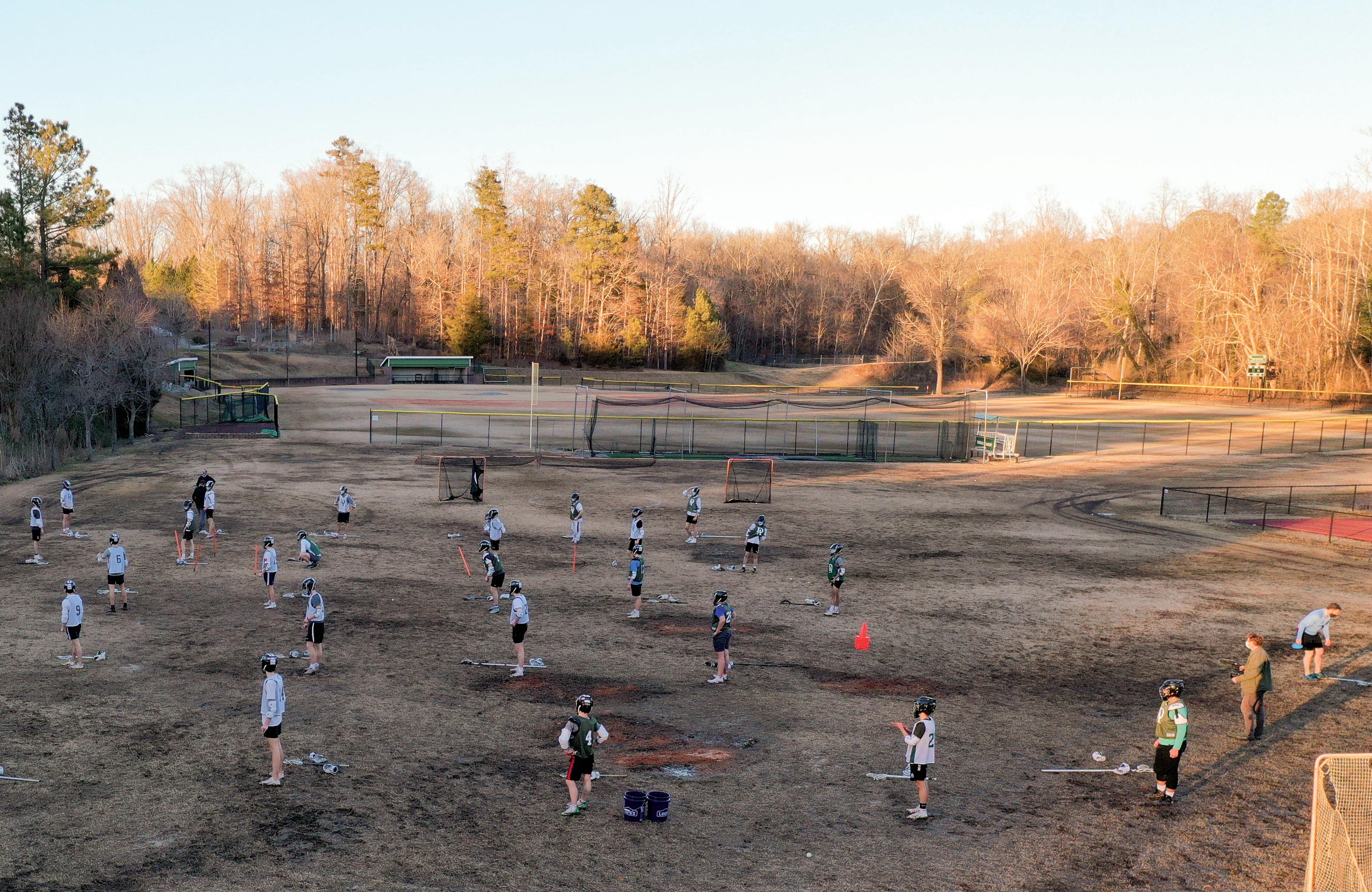
“We tend to forget about these people who are in longterm care, sitting in these hospitals, and just knowing what Coach is going through and the way that the team has rallied around him, it’s the same idea somebody’s hurting, sick, we want to help them, so I just think it’s really important that we remember those people right now and think about them and we might not know them, but they matter,” he said. “So raising as much money is just the most important thing we can do.”
DA videographer Jesse Paddock worked with Lantzy and Vs. Cancer to create a video about the virtual King of Spring and its impact: bit.ly/2021KingofSpring
To support the team’s e orts, visit: bit.ly/TeamCureTheKids

Seventh-graders in Rachel Cummings’ language arts class spent some time this spring reading poetry and working on writing using poetic devices. After students read the short story “Raymond’s Run” — the narrator of which loves running — Cummings challenged them to write poems or paragraphs about something they feel passionately about, and to do so using poetic devices. Read more of the students’ work at bit.ly/passionsonpaper.
The bumpy grip is wearing on my blue field hockey stick. The ball is in view; I give it a whip. It flies toward a teammate and they cut for the goal. I sprint forward as they fake, dodge, and roll.
But suddenly the ball’s knocked by the goalie in orange pads. Again we dart for the ball, chasing it, like a game of tag. The other team has gained it, they’re moving fast; a thrilling thought as I dart on the grass.
The ref blows her whistle; The sound is a knife through the air. We slam to a stop, stillness in the air.
The ball is placed where the foul occurred. We give them some space as both teams stir.
The girl rockets down the field, as soon as the whistle sounds, and energy jolts through each player as if lighting struck the ground.
Winning is our fate as our defense steps up like batters to home plate, a one-on-one shakeup.
With tied-up ponytails and sweaty hands, competition’s in the air as the crowd yells from the stands. I race down the field,
tired and worn I cut for a pass; Opportunity is born.
The ball meets my stick again, and every inch of me aches. I dribble down the grass, making a fake.
I pass to a player, watching it travel on the ground. I hear my teammates cheering; What a thrilling sound.
With a burst of energy, the fatigue is gone.
The world moves in slow-motion as we play hard on the lawn.
When I read, it’s like I found a very important detective lead. Just the feeling of a great book, especially when it ends on a hook.
You can make a book whatever you want, feels like eating the world’s best croissant.
Relaxing yet entertaining, but yet not at all draining.
When I read it’s a out-ofbody experience authors displaying their brilliance.
When you finish the book, the emotions are mixed, thinking about that superb book. But mostly just transfixed.
An opened box sits a few feet from the people, adrift and unwanted, like a piece of floating debris.
A board is opened, money is given, and little plastic cars are taken.
While people argue over what color of car they want, the aroma of the turkey from a dinner long forgotten drifts through the room from downstairs.
A wheel spins, once, twice, three times, on and on again
And when some are already married, others have just graduated, but soon enough, they’ve all found jobs, some pay less, some pay more.
Some start building families, while others decide to attend night school.
The only thing that has been consistent through the game is that the wheel has never stopped spinning, like the tires on a car that never stops. Some become billionaires overnight, and some vacation in Mexico, Switzerland, a ski lodge.
A few are still homeless, and one has just been fired from her job.
And yet, the wheel keeps spinning, a 7th time, an 11th time, a 27th time.
Yet at some point they have all retired, some rich owning 3 houses, and some still living in their car, with only a few thousand dollars under their belt.
The wheel has now stopped spinning, the tires have come to a halt
A closed board, piles of cash, and little plastic cars, are stu ed inside the box that had once been abandoned
And the aroma drifting through the room is now not one of a dinner long forgotten, but one of a dessert long awaited
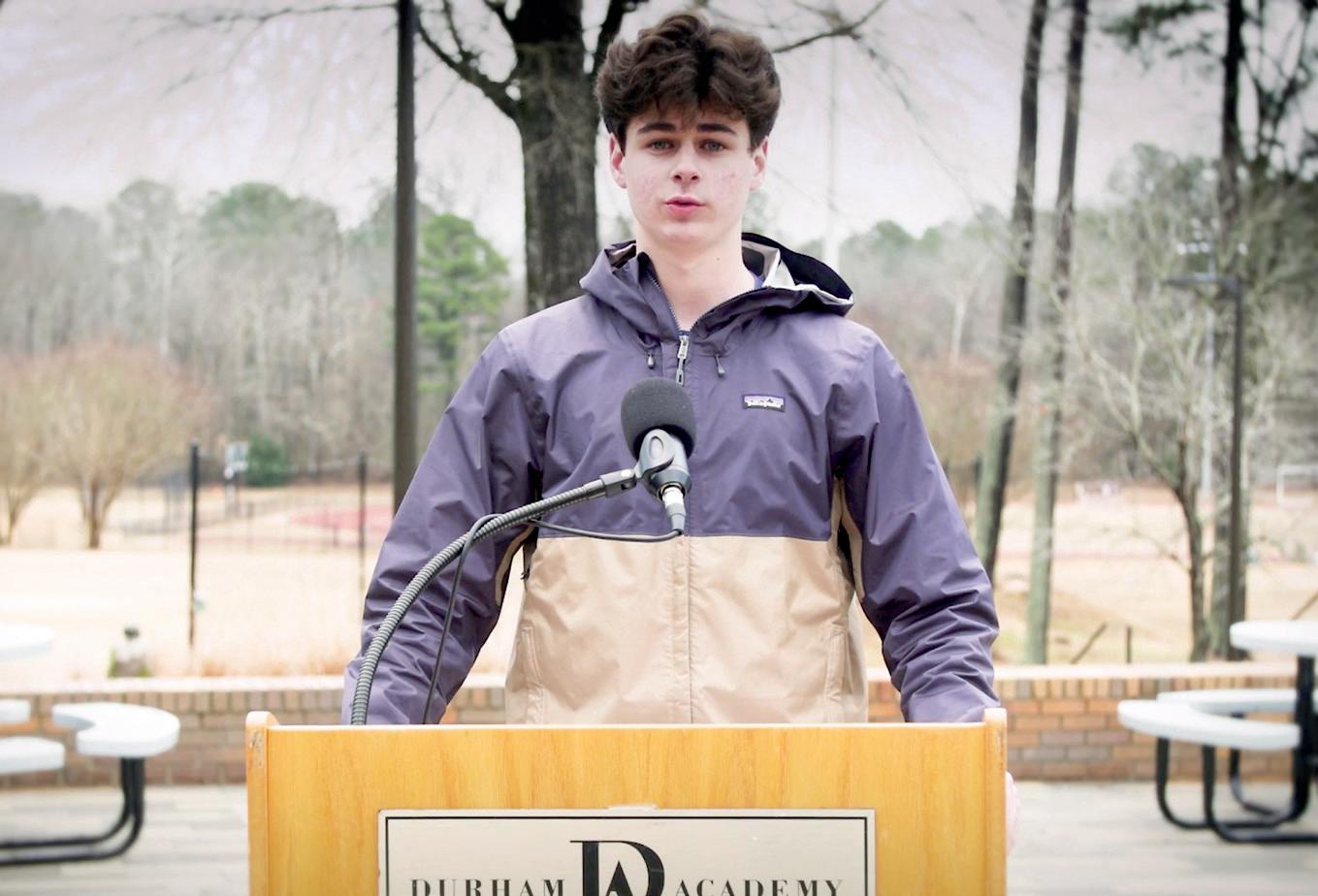
“Upon completion of my Bat Mitzvah, I was able to take pride in my religion. It not only allowed me to celebrate my true religious identity with my friends, but also gave me a platform to inspire change and engage my friends in helping others. My Bat Mitzvah was a turning point for me. It allowed me to see that while similarities can be helpful in forming relationships that are in my comfort zone, being courageous enough to be di erent and to form relationships that embrace those di erences are the basis of meaningful and trusting communities. I learned to not only embrace my distinctions, but to also be grateful for the pieces of my identity which make me unique. … By sharing my Jewish heritage with younger children here at DA, and connecting with Judaism’s ideals of helping others, I’ve come to appreciate this part of me, and not only accept it, but be grateful for it.”
Emerson Levin ’23

“When asked to write a speech for today, I was asked to highlight some of the qualities of Dr. Martin Luther King, Jr. I chose strength and perseverance because to me, nobody exempli es these qualities better than my parents. They have been through so much recently and the way they have handled it with such grace and strength has been truly incredible. … The way my mom has handled these events is amazing. Her strength through these tough times has been unparalleled and what I admired most. … She let nothing stand in her way when it came to taking care of her family. … My mom’s unwavering strength and love through everything we’ve experienced these past couple years has helped me to nd strength to persevere as well. … My dad has always been my best friend and the person I aspire to be like. He is the most friendly, talkative, warm-hearted person I know. He’s taught me how to do everything I know and love. … Despite all of the emotional stress that both his condition and these procedures induce, he never lets it shake his spirit or personality. … His perseverance really shines through because even when faced with ALS, he continues to strive to do what he does best bring joy to the people around him.”
— Blake Smith ’21
Story by Leslie King
In a year when Durham Academy had a renewed focus on inclusion, one conversation took place that had been long overdue a dialogue about disability and accessibility on DA’s campus.
“I do think it’s helpful to think about this as a lesson, perhaps even a history lesson,” Assistant Director of Diversity, Equity and Engagement
Je Boyd said in an introductory video sent to Upper School students and faculty. “That knowledge of the past informs our understanding of the present, but also in uences decisions we make about the future. Ultimately, the intersection of culture and physical spaces can be a catalyst for change.”
Students’ eye-opening journey began with Boyd’s introduction of The Accessible Icon Project, an ongoing movement centered around introducing a new graphic icon to replace the International Symbol of Access the blue wheelchair symbol created in 1968 and used to designate bathrooms, ramps, automatic
doors and parking spaces for people with disabilities.
The Accessible Icon, created in 2010 by artist and design researcher Sara Hendren and philosophy professor Brian Glenney, was the result of a collaboration between people with disabilities and their allies to move from a passive, motionless person in a wheelchair to a dynamic one indicating motion, freedom and in uencing how people with disabilities are viewed. Through design activism and a street art campaign, they reimagined a long-standing logo to promote awareness about accessibility and prompt systemic change.
To help them understand the movement’s importance and real-world implications, Boyd arranged for Upper School students and teachers to meet disability rights advocate and competitive athlete Max Woodbury a North Carolina native who lives in Portland, Oregon, with his wife, twin sons, daughter and service dog Cobalt.
Woodbury was 24 and working as a eld geologist on an environmental cleanup site when he su ered a spinal cord injury in an accident that left him a quadriplegic. He was interviewed by senior Sam Datin in a video shared with the Upper School as part of a virtual assembly and hosted a Microsoft Teams call later in the day to answer questions from Upper School students and teachers. Woodbury pointed out that while The Accessible Icon is an important improvement, there are limitations in using one symbol to represent a group of people with such wide variations in ability.
“Even though I’m sitting down, I don’t feel like my life is sedentary and I don’t feel like I’m a sedentary person,” he explained. “I’m an active person. So I do think it’s great that people when they think of someone that uses a wheelchair it isn’t just always sedentary, it isn’t always sitting around and being passive. As far as the logo is concerned, the problem is it doesn’t include everybody. I have friends that use
power chairs that can’t be active because their arms don’t have enough function. … So it’s interesting to think about wanting to push people’s preconceived notions about disabled people or wheelchair users, but I also want everyone to be more aware and more inclusive. There’s never going to be the ‘right’ symbol, but I think the awareness is the biggest thing.”
Woodbury, who earned a B.S. in geology and environmental sciences from UNC-Chapel Hill and works as a Geographic Information Systems specialist planning trails and natural areas across the Portland metropolitan area, is also an avid wheelchair rugby player with the Portland Pounders. It’s a connection he made when several members of the team came to visit him after his accident. Woodbury went to watch a practice, where he saw players ramming into each other, and the competitive athlete in him was immediately hooked.
“I said, oh my God! What is this? I want to do it!” he recalled. “That was life-changing for me and my family. To be able to see people who had been through similar situations and had lives, had jobs, had wives, had kids, had a ful lling life it was really great to meet somebody who was living their dream even though they had a spinal cord injury.”
Less than six months after his injury, teammates were picking Woodbury up to go to practice, and 24 years later, he’s still playing with this unique brotherhood he considers an extended family. “I’m the old guy now. I’m the guy who has a family and a job and kids and all these things. And hopefully I can set some sort of example for these young kids to know that all those things are possible.”
“Max’s outlook on life was incredibly inspiring,” re ected Upper School diversity coordinator and history teacher Kelly Teagarden. “Despite his life not following the original plan he envisioned, he has remained true to who he is. I had not thought about the fact that Max’s family could love him and support him endlessly, but they would never know, or fully
understand, what his lived experience is like. The men on his rugby team ll this void in a way that no one else could.”
During the conversation, he also helped students and faculty understand some of the challenges that he experiences in daily life from well-intentioned but inappropriate attempts at empathy, to transportation and accommodations, to logistical di culties that might affect his ability to travel.
“Thinking about universal design, I feel like it shouldn’t be a unique idea to make and design things that are available and include everybody” Woodbury said. “I’m a big fan of trying to be inclusive and forward-thinking.”
“Speaking with friends who've had to spend weeks on crutches, scooters and heavy boots, our campus is di cult to traverse with its many sets of stairs and heavy doors,” said senior Daniel Park, who attended the virtual assembly. “Disabilities come in all kinds of varieties, but being more conscious about our physical spaces is an important lesson. Having accessible spaces elevates our inclusivity, reminding us that our spaces exist not only for the able-bodied but for everybody.”
Upper School physics teacher Leyf Starling ’99 incorporates universal design principles and accessibility challenges regularly in her robotics and engineering classes. This fall, she’s hoping to have students take a new look at DA’s campuses through Woodbury’s eyes, and examine what it means to have an accessible and inclusive campus in terms of both physical structures and implementation of curricula.
“I do feel like the younger generation is a lot more aware about disability and diversity than I was growing up,” Woodbury said. “So it’s beautiful to have my kids come home from school and teach me about diversity and equity and inclusion. It’s important for all of us to keep learning and be aware because we can all
“Disabilities come in all kinds of varieties, but being more conscious about our physical spaces is an important lesson. Having accessible spaces elevates our inclusivity, reminding us that our spaces exist not only for the able-bodied but for everybody.”
— Daniel Park ’21
do better and we can all be better. I’m continuing to learn all the time.”
“As a community that is rarely exposed to those with disabilities, it makes the few opportunities for exposure that much more poignant and signi cant,” re ected Park, who is also a member of RAISE (Raising Awareness for Inclusion and Social Equity), a committee of Upper School Student Government. “Events like the yearly Special Olympics and interviews with people like Max Woodbury expand our understanding of people who don’t live the kinds of lives that we do. However, although the times when we can work with students with disabilities are few, those moments are often the most memorable moments in a Durham Academy student’s career. I can still recall working with my rst Special Olympics athlete in ninth grade, and I can tell you that just like me, most DA students still hold on to Polaroids of their Special Olympics athlete as they treasure that memory. That’s what I value the most about Durham Academy, its ability to give me these kinds of experiences and work with people from all kinds of backgrounds.”
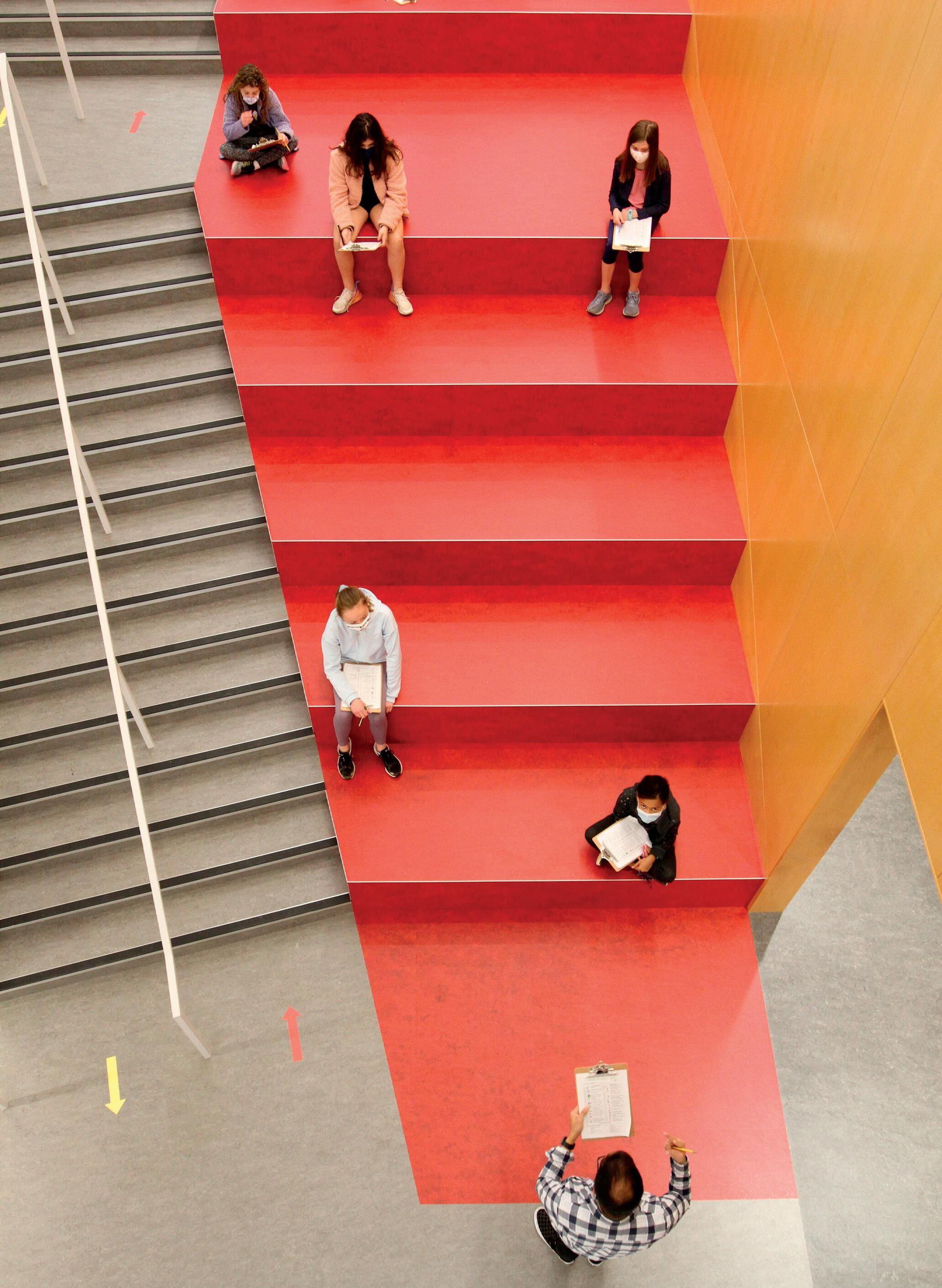


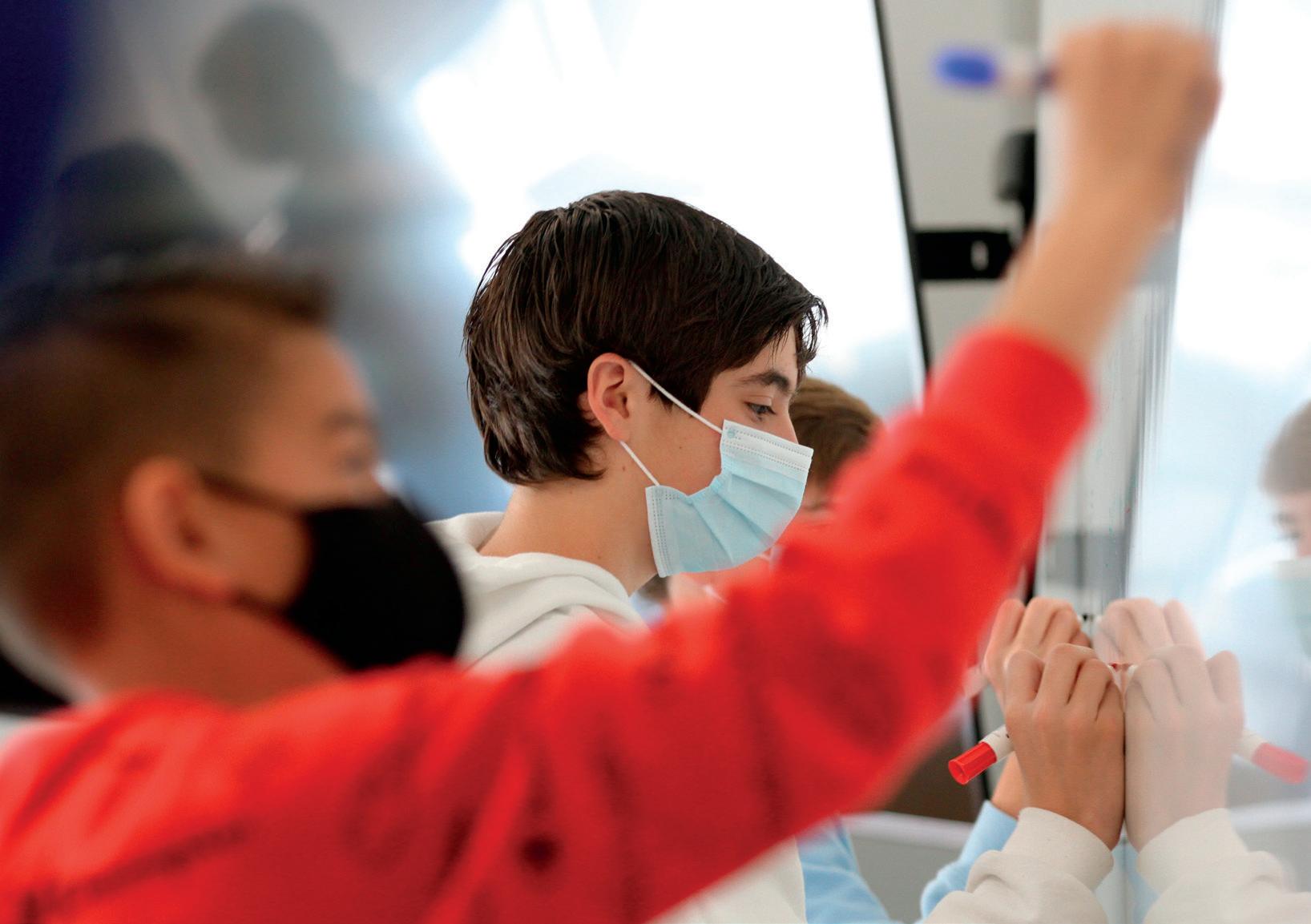
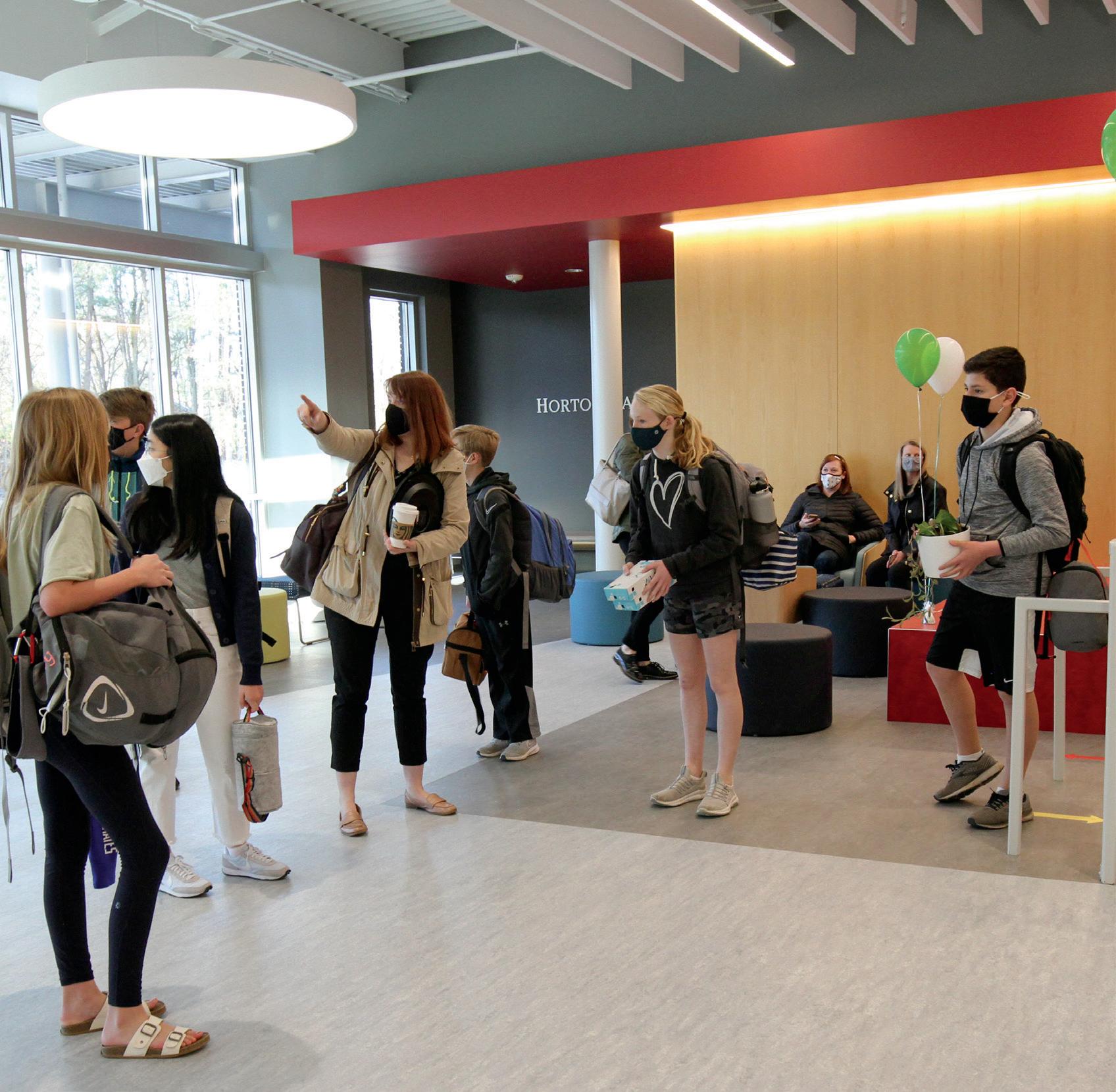
STORY BY LESLIE KING // VIDEO BY JESSE PADDOCK, KAITLYN KUSHNER ’22 AND DAVE CHANDLER // PHOTOGRAPHY BY MELODY GUYTON BUTTS
‘A
Spring 2021 marked a major milestone at Durham Academy Middle School. The first phase of a complete reimagination of the Middle School campus — the Arts & World Languages Center — was completed in early March. The 42,000-squarefoot facility, which houses all fine and performing arts disciplines, all Middle School world languages classrooms and a performing arts center (Horton Hall), opened to Middle School students on March 22.
“I’m pinching myself right now, knowing that the Arts & World
Languages Center (AWL) will be full of students tomorrow,” Middle School Director Jon Meredith said in an email to families the night before its opening. “It has been years of planning: student, faculty, family and trustee input helped determine the purpose and general layout of this building. Talented architects, builders and craftsmen contributed to making it a reality. Generations of DA supporters gave generously to fund the project. Students and teachers tolerated incessant noise, 13 teachers packed and moved rooms (in the midst of a pandemic year) and many, many brains have been working on overdrive to iron out the many details that must be considered when opening a facility during the high season of a school year.”
• 1,185 cubic yards of concrete
• 327 tons of steel
• 110,000 bricks and blocks
• 44,000 total square feet
• 13 classrooms
• 5 fine and performing arts studios
• 8 world language classrooms
• 730 days of construction
• 400 builders and architects
• 73 donors
• 45 building/contractor firms
• 8 architecture/ engineering firms
• 400-plus workers
• 100,000-plus labor hours
• 459 grateful students and teachers
The timing couldn’t have been better — the additional instructional space allowed the Middle School to shift from hybrid to 100% on-campus instruction before the end of the school year. The entire fifth grade class returned on March 29, and sixth-, seventh- and eighth-graders were phased in gradually, reaching full capacity by April 20. The shift marked
the first time all Middle Schoolers were on campus simultaneously in over a year.
“I really like the entrance, and it feels really welcoming with the grand staircase and all the open area,” Ashley Slomianyj ’26 said in a tour just prior to the building’s opening.
“I think it’s really cool that we have so much light and windows so we can see out and it’s not just an enclosed space,” Ethan Williams ’28 said.
Arts and world languages teachers worked hard over DA’s spring break to set up their classrooms to welcome students, and after years spent imagining the potential of purpose-built spaces and interdisciplinary possibilities made possible by proximity to their colleagues for the first time, they were thrilled with the result.
“The need is tremendous,” French teacher Teresa Engebretsen said. “For us to have classrooms with storage and classrooms that have a sink, a dedicated place for my advisees to have their stu … this is huge.”
“I pinched myself when I heard we were the first building,” theatre teacher Ellen Brown added. “I am so excited to be in the same building as my fine arts colleagues. … I think that this new building is going to give students the opportunity to collaborate in ways that support their work more meaningfully than ever before.”
“One of the most important parts of teaching is setting up an environment for success,” band teacher Andrew Lovett said. “We’ll be able to maybe do some full musicals. I would love it if maybe one day [chorus teacher] Karen [Richardson] and Ellen and I could have a full pit [orchestra]. There’s a whole world of stu we can do.”
“This is going to elevate us and we’re just extremely grateful,” movement teacher Mary Norkus said. “We can’t believe that we are Phase 1 of the [Middle School] building projects — we’re just over the world about it.”
The icing on the cake is Horton Hall, a state-of-the-art 500-plus-seat performing arts and special events space that is now the largest event space on
any DA campus. Its open floor plan and catering kitchen will allow for a variety of di erent events, including graduations. Horton Hall is dedicated to Alice and Trig Horton by their children (Ashley Freedman ’97, Ward Horton ’94 and Laura Virkler ’91) and by the F.M. Kirby Foundation to honor their commitment to philanthropy and their passion and commitment to Durham Academy.
“We have built a new space full of purpose-driven classrooms that will allow each teacher to teach their subject with creativity, imagination and innovation,” said Virkler — who serves as the chair of DA’s Buildings and Grounds Committee, which is charged with helming the design and construction of the six phases of Upper and Middle School capital projects. Virkler is also the mother of a DA alumna, a Middle Schooler and an Upper Schooler. “DA Middle Schoolers now have the space to explore and embrace these subjects. Having been a student on the campus myself over 25 years ago, I can appreciate how much this new building enhances Middle School learning.”
During a preview of the space, students were already envisioning future productions with anticipation. “I really like Horton Hall,” Jaden Read ’25 said. “I feel like we could have a lot of really good performances in there, and there’s a lot of good space and lighting.”
Every aspect and angle of the two-year project was meticulously documented from start to finish by Dave Chandler, husband of former Lower School PE teacher and current varsity field hockey coach Judy Chandler and father of two DA alumni. Chandler, at the time an amateur drone pilot, started filming construction in May 2019 for Middle School science teacher Barb Kanoy’s Science in Action elective, in which students studied how changes to the campus would a ect the ecology of the greater community over the short and long term.
When COVID-19 forced the closure of DA’s campuses in March 2020,

Chandler and his drone became the students’ eyes and ears, filming from afar every Sunday to document the building’s development through aerial photos and video — not just for DA, but for the construction and architectural firms as well. His work generated more than 6,000 photos and videos over the span of two years.
This spring, Chandler partnered with Kaitlyn Kushner ’22 — who honed her video-editing skills as one of the inaugural recipients of a Jack Linger ’20 Independent Study Fund grant — to produce a video detailing the transformation of the Middle School campus from start to finish.
“As the project neared completion, I was hoping to produce a short, impactful video from the collection that summarized the construction of the building as well as the positive impact on education,” Chandler explained.
“After seeing Kaitlyn’s independent study presentation on Commercial Application for Video, I knew where to find the production talent I needed!”
Using Chandler’s and DA videographer Jesse Paddock’s footage, Kushner showcased key construction milestones, created unique timelapse sequences, segued between before and after shots and integrated interesting facts about the project. “The impact that the AWL Center
has reaches well beyond Durham Academy’s Middle School campus,” she reflected. “Having the opportunity to work on the AWL Center video with Mr. Chandler has been a truly amazing experience that has allowed me to sharpen both my video editing and collaboration skills as well as being able to see the important connections between the two.”
The $12 million “A-W-L” (as it’s been a ectionately nicknamed), designed by Cannon Architects and built by CT Wilson Construction, was made possible through a combination of financing and fundraising. On July 1, Taylor Hall and “the 200 building” (the two adjacent classroom buildings that run parallel to University Drive) will be demolished to make way for construction of Phase 4 — a two-story academic and administrative building. The building will reorient the Middle School campus, serving as its “front door” with a new campus entrance on University Drive. Plans call for Phase 4 to be finished by December 2022.
Major features of Phase 4 include the following:
• 22 science, math and humanities classrooms
• 1 makerspace
• Two-story commons similar to Upper School STEM & Humanities
and Middle School Arts & World Languages Centers
• Multipurpose gathering space
• Middle School administrative o ces
• Business o ces
• Security o ce
• Parents Association meeting room Phase 5 will create a new library and humanities building, and Phase 6 will create a new, regulation-size Middle School gym with built-in seating and expanded Extended Day facilities. Ultimately, the Middle School will consist of new buildings surrounding a central, open quad. Successive phases of the Middle School capital projects have an estimated cost of $21 million and will depend almost entirely on philanthropic e orts.
Go inside for the Arts & World Language Center’s Opening Day at bit.ly/AWLCopening.
Watch a recap of the Arts & World Languages Center’s construction and completion by Kaitlyn Kushner ’22, Dave Chandler and Jesse Paddock: bit.ly/AWLCenter

A group of industrious Middle Schoolers recently took a big step forward in their plan to install a rain garden to absorb stormwater runo from the new Arts & World Languages Center parking lot. After presenting their plan to the Durham Academy Building and Grounds Committee, the students members of the Science in Action (SIA) class received not only a green light to proceed, but also funding to make the project a reality.
SIA is an elective course taught by longtime science teacher Barb Kanoy in which students have studied how changes to the campus a ect the ecology of the greater community in the short and long term.
The rain garden project began last school year when Kanoy posed a question regarding the then-in-construction Arts & World Languages
Center: “What opportunity can you nd to make a net positive environmental impact with this construction site?” After talking with several people involved with the construction, it became apparent that their focus should be on stormwater, and the students decided that they could have the biggest impact with a rain garden. Rain gardens serve as water ltration systems that hold water for a short period of time, allowing the water to seep into the ground slowly and into plants, with the excess making its way into a drain.
The SIA class is very much student-driven, and while much planning was done by the 2019–2020 class, the 2020–2021 class had an opportunity to either continue with the project or shift to something new. Much to Kanoy’s relief and that of Luis Pastor-Valverde ’25, who enrolled in the
class as both a seventh- and eighth-grader the 2020–2021 students chose to continue with the rain garden project.
“They really wanted it to be there because it was draining the parking lot and they didn’t want to just take stormwater from a rooftop, which is relatively clean they wanted to actually do something with some more signi cance,” Kanoy said. “They stuck with it even though people kept saying, ‘it would be easier if …,’ ‘it would be easier if …’ ”
Of the six students enrolled in this year’s SIA class, half focused on soil engineering, while the other half did an engineering analysis of the ground and slope to determine the best location of the garden. Their work involved hours of conversations with professionals (engineers, stormwater educators, professors, construction workers, city planners, horticulture experts); lots of trial and error; and a whole lot of math.
“For the mapping part, we had a lot of really big numbers and a lot of restrictions that we had to go through to make sure that nothing was too extreme or too big,” Pastor-Valverde said. “And so it was hard because we had to consider a lot of things like how much water can we let in, how big can we actually make this garden, how far can the slope be. And then when we came up with an answer that worked, it just felt really satisfying.”
plant options, the timeline for installation, a plan for maintenance and the budget.
Building and Grounds member Lee Barnes ’86 who is also a trustee, current parent and parent of alumni was blown away by the presentation, so much so that he and his wife, Christy, o ered to cover the cost of the project.
“To me, this is what DA is all about and should be about. That’s amazing work by Ms. Kanoy and the students. They should be very proud of not just the product, but the process,” he said. “I see a use here in perpetuity that beauti es the school while serving a practical purpose. The combination of everything that came together on this is remarkable.”
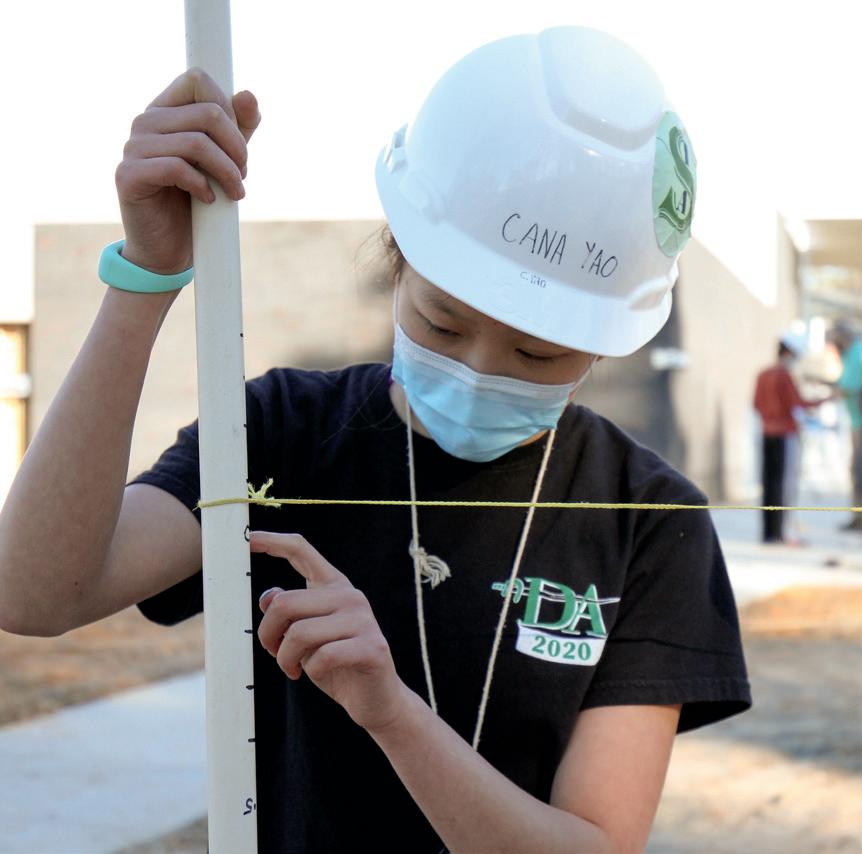
For SIA student Cana Yao ’26 it felt “pretty awesome.”
“We put in a lot of work, and we were worried that it wasn’t going to go over well,” she said. “I was really, really happy with how it turned out and how generous the people were.”
With the project’s approval, work can now begin to bring the garden to life. Students began hardscaping in early June, with planting to follow and a second major planting in early fall. Volunteers will be welcome.
With two years of SIA under his belt, PastorValverde called it “a really fun class.”
The SIA students presented their plan to the Building and Grounds Committee which comprises DA trustees, administrators and other community members in April. There were plenty of details on the science behind the decisions,
“I hope more fun stu like this can be done in the future,” he said. “Because actually seeing something that you’ve been working on get implemented that’s just really, really nice.”
“It was hard because we had to consider a lot of things like how much water can we let in, how big can we actually make this garden, how far can the slope be. And then when we came up with an answer that worked, it just felt really satisfying.”
Luis Pastor-Valverde ʼ25
Story
and Photography
by Melody Guyton Butts
As his junior year at Durham Academy neared a close, Chaz Strickland ’22 was doing a lot of thinking about what’s next. There’s college, work, life as a young adult — lots to work toward and look forward to.
“But I think if we continue to ignore sustainability, the future that I’m preparing for won’t come to fruition,” said Strickland, co-chair of the Upper School Student Government Sustainability Committee. “And so as I start thinking more and more about that as my time at DA comes to a close, I think sustainability becomes more and more important in my mind.”
With a bigger-than-ever observation of Earth Day this spring, Strickland and fellow environmentally minded students
and faculty hope that sustainability is top of mind for many others, too. DA’s 2021 Earth Day celebration spanned an entire week, bringing together Upper Schoolers, Lower Schoolers and Preschoolers to appreciate nature and give the Earth some TLC.
In recent years, the Upper School has worked to incorporate sustainability into both student life and the curriculum, starting with the inclusion of a Sustainability Committee when Student Government restructured in 2019. Co-chairing this year’s committee with Strickland is Sanju Patel ’23, who said that being able to bring campus sustainability discussions to the same table as ones about student life and academics “shows that we’re really valued — that the things we talk about are one of the most important things that student government can consider.”
The 2020–2021 school year brought even more of a focus on sustainability in the Upper School, with the addition of a sustainability component to the required ninth-grade Self and Community course.
The sustainability-focused class meetings are led by faculty member Tina Bessias ’78, who took on the newly created role of Upper School sustainability coordinator this year.
“Living Sustainably is the name of the course,” she said.
“It’s the concept of what we have to do as a school, as individuals, as a community, as a country — we have to make a big change in direction here in terms of how we live our daily lives. We’re using up too many of the Earth’s resources. It’s not sustainable.”
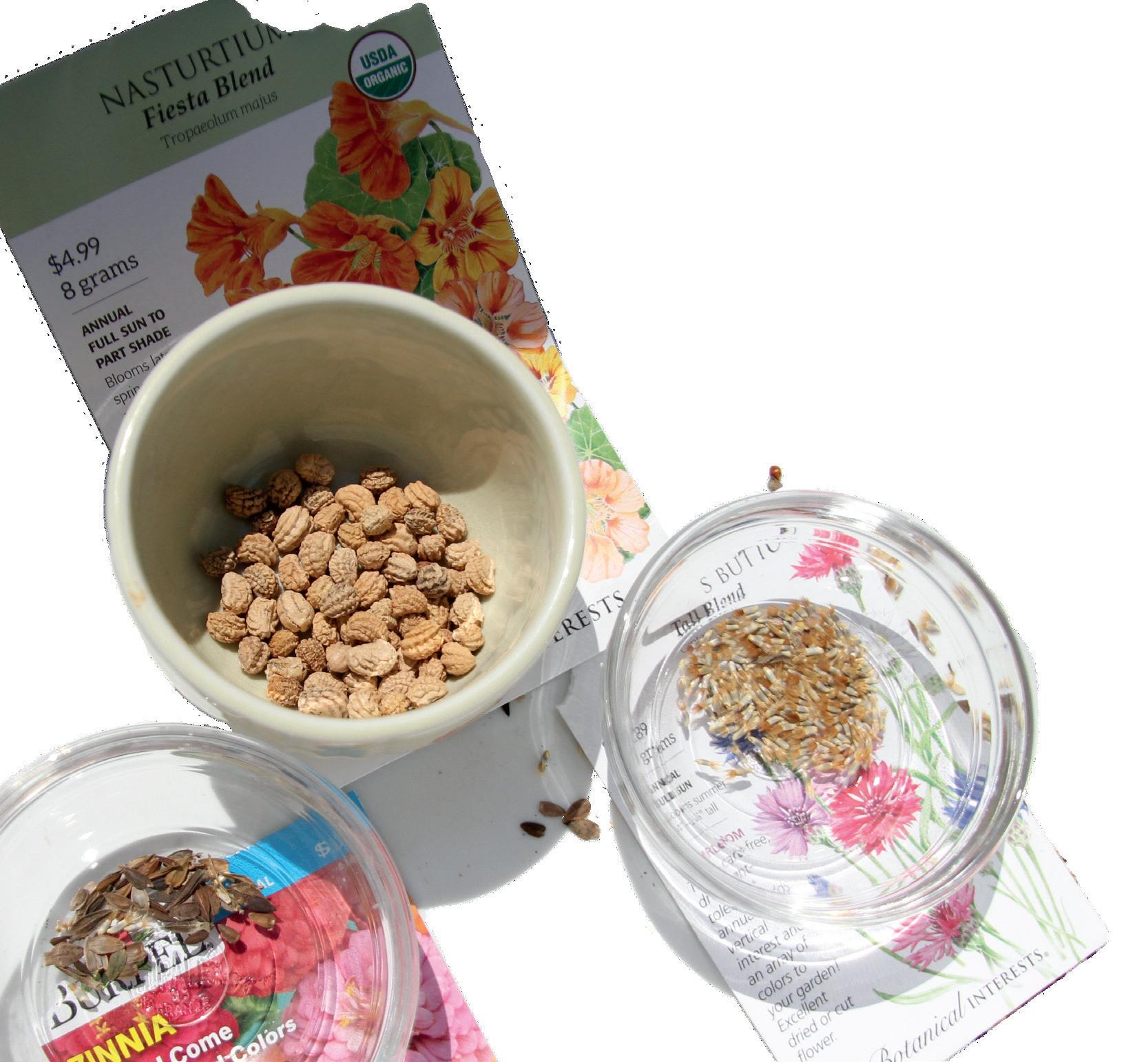
One huge wake-up call for Bessias and many others at DA was the 2018 Intergovernmental Panel on Climate Change report, which called for cutting carbon dioxide emissions by 50% by 2030. And beyond the importance of the school being a responsible member of the global community, it was becoming obvious that the health of DA’s own students called for taking action.
“In multiple surveys, a majority of Upper School students reported feeling high levels of worry and even hopelessness about the state of the planet they will inherit,” Bessias said.
“Earth Day is about celebrating the planet and taking actions that foster hope.”
Upper School Sustainability Committee members and all ninth-graders (through the Living Sustainably course) worked for several weeks to create opportunities for students of all ages to get their hands dirty as they celebrate and nurture the Earth. Several
ninth-graders got knee-deep in mud to plant a pollinator garden by the track alongside Pickett Road, while others posted Earth Day signs created by their classmates and Lower Schoolers around campus.
Other activities included Upper Schoolers helping lead Lower Schoolers on nature walks and scavenger hunts, and helping kindergartners plant seeds. Several ninth-graders even arrived on campus a halfhour early to collect household compost scraps as parents dropped o students.
“One thing we are trying to focus on this year is to instill value in nature throughout the entire DA system,” Patel said. “We talked about how can we help teachers understand this and incorporate it into their curriculum? How can we help students understand it and even parents when they’re dropping their kids o at school? If we have that knowledge through the whole school, that’s a really good way to build sustainability.”
“We think that that education cannot start early enough, because you really form strong opinions of the world when you are in Preschool and when you are in the Lower School — that is
a formative period of your life,” Strickland added.
Fourth-grade teaching assistant and ninth-grade parent Kim Hackman was delighted for the Upper Schoolers to work with her students.
“It was so nice to celebrate Earth Day by having some DA ninth-graders come to the Lower School to share their passion for living sustainably,” she said. “DA students spent time together planting seeds, collecting compost and sharing ideas for how we can all help with conserving Earth’s resources. I don’t think we could have asked for better role models than our own ninth-graders.”
In addition to the on-campus activities, ninth-graders created a Living Sustainably website, which they populated with ideas for families to celebrate Earth Day and make changes toward a more sustainable lifestyle. Lydia Amanueal ’24 was among a group of ninth-graders focusing on Count Us In, a platform in which one can pledge to take a step toward reducing carbon emissions — like flying less, adjusting a home thermostat or cutting food waste. Amanueal created a video that emphasizes the importance of taking action.

“One thing we are trying to focus on this year is to instill value in nature throughout the entire DA system.”
— Sanju Patel ʼ23
“Especially as a community, l think we all need to contribute to a vision for a better future for the rest of our lives and also the later generations,” she said. “We’re all dependent on the Earth.”
Check out the Class of 2024’s Living Sustainably website: livingsustainably.sites.da.org

Story
A sixth-grade social studies mini-unit on institutional power and methods of “people power” turned into an opportunity for students to tap into recent real-world events and learn about the Iroquois Nationals lacrosse team’s fight for inclusion in the 2022 World Games in Birmingham, Alabama. The decision had far-reaching implications, potentially a ecting the team’s ability to participate in the 2028 Olympics if lacrosse becomes an Olympic sport.
“This is ultimately a story about human relationships,” sixth-grade history teacher Mike Harris explained in an email. “But also a story about institutional power vs. people power, human rights, the power of sport, critical examination of ‘history’ and the interconnected full circle of humanity.”
Sixth-grade history focuses on how civilizations develop. This year, students explored three major themes: culture, power and trade.
“And so we kind of had the stage set for the populating of the Americas with indigenous people and having kids think about this term ‘indigenous’ and what it means,” Harris explained. “Je Boyd [Middle School history teacher and diversity coordinator], who’s always masterful in what he does, created this wonderful slideshow for Indigenous People’s Month. The Iroquois Nationals lacrosse team had been banned from the Lacrosse World Games, and they’re, like, the best team in the world.”
The Iroquois Nationals were excluded from the championship roster because the World Games’ eligibility criteria requires teams to be one of the 206 IOC-recognized National Olympic Committees, which the Iroquois are not. Ultimately, members of Ireland Lacrosse, the ninth-ranked team in the world — who were aware they were only in the eight-team championship because the Iroquois Nationals had been excluded — voluntarily vacated their position as a competitor in the World Games to give the Iroquois Nationals the chance to compete. Shortly after their decision, the World Games announced a new slate of eight teams, this time including the Iroquois Nationals.
Upper School varsity boys lacrosse coach and Middle School PE teacher Jon Lantzy heard about Harris’ topic of study and recognized that thanks to the COVID silver lining of Microsoft Teams, he could connect Harris’ students with a Native American former player from his pre-DA lacrosse coaching days. Lantzy arranged for Harris to record an interview with Kalen Bennett, a member of the Iroquois Six Nations who knew the two brothers at the center of the Iroquois Nationals’ fight for inclusion and who has

become an activist for indigenous peoples. Harris’ students watched the interview, and Lantzy joined them for one of the screenings.
“We try as a people to see what has happened to us and not let it get us down,” Bennett said during the interview.
“That was a unique opportunity for me and pretty cool when I was able to connect Mike with Kalen,” Lantzy said. “I knew that [Kalen] loves to share his story and his heritage and pride for his heritage. It was really pretty cool to watch those two things all collide. My past, my present and what could be the future for all of those kids.”
“I think the goal was to let kids see how lacrosse has played such a role in his life and at the same time how he has dealt with oppression as part of institutional power leading back generations from the invasion all the way through to what he deals with today,” Harris reflected.
“I was moved, it was emotional, and the kids were mesmerized and we did some reflection work so they had some assignments that went with it. It just turned out exactly how I had hoped and even better. I think it’s essential,” Harris continued. “… I think about the students that were maybe sitting in that room who’ve had similar experiences of being oppressed and to hear that kind of validates what they’ve gone through. So I think the more that we can bring these stories into the classroom, the more we’re really getting to learn in the way that I believe we want them to learn here at DA.”
Watch a video about the collaboration: bit.ly/KalenBennett
Story by Leslie King // Video by Jesse Paddock
Since starting his eighth-grade elective course, STEAM by Design, in 2016, Karl Schaefer has encouraged his students to use cutting-edge technology, engineering and coding to solve real-life problems.
This year, students enrolled in STEAM (Science, Technology, Engineering, Arts and Math) by Design decided to address some of the problems that have arisen amid the COVID-19 pandemic, namely the accidental waste of hand sanitizer when users pressed the pump of gallon-sized dispensers too far down.
“These bottles they’re huge,” Shreya Rao ’25 explained. “They’re meant to be lling up smaller bottles. I took a really big hand sanitizer pump, and I can take a bath in it. Really. It was a big problem. We were wasting a lot of hand sanitizer, more than we needed.”
“And that’s kind of where this whole Sani Savr evolution came about,” Schaefer said. “I was looking for something to try to do that would be current, tangible, solve a problem and give us the design-thinking cycle to go through that I could also keep us safe and solve a problem that I saw the rst time I saw that massive jug of Germ Attack.”
The result Sani Savr is a plastic clip that attaches to the dispenser, preventing the pump from depressing all the way down, and resulting in just the right amount of hand sanitizer for one person.
Students designed Sani Savr on Tinkercad and then 3D-printed and tested their prototypes.
“Looking at CDC guidelines and everything, it’s not too little that it’s not going to kill the [COVID-19] virus, but it’s not too much that we’re wasting it,” Emily Simmons ’25 said.
“They’re fearless,” said Schaefer of his students. “They know that the worst thing that can happen is it doesn’t work right, and they keep trying. Something about COVID-19 is we have so many opportunities to do real-world teaching. This is just my little stab at that.”
“Both of my parents are engineers, so engineering is something that I’m really familiar with and as of this moment I think I want to be a mechanical engineer when I grow up too, so I was really excited when there was a STEAM class that I could enter,” Simmons said.
“After STEAM, after I graduate from the Middle School, I would like to continue on and I would like to pursue the eld of technology and computer science,” Rao said. “Ever since I gained access to the 3D printers, I’ve noticed that there’s a lot of things that I can solve and I can create and I can x. And it’s really awesome to have that opportunity.”

Sarra Abdelbarr ’25
Emery Anderson ’25
Grayson Auman ’25
Ryan Bauroth ’25
Lexie Chen ’25
Aayaz Husain ’25
Trajen Odom ’25
Shreya Rao ’25
Emily Simmons ’25
Siddharth Srivats ’25
Preston Swigart ’25
Marcus Vermeulen ’25
Zach Wahidi ’25
Watch STEAM by Design students develop their Sani Savr solution at bit.ly/SaniSavr.
Watch the ad students created for their product at bit.ly/SaniSavrAd.
See how the class calculated and tested the specs of the Sani Savr design at bit.ly/SaniSavrTest.

Groundwork Laid Nearly Two Decades Ago and a Skilled Team Helped DA Pivot to Remote and Hybrid Learning
Anne Benson can’t help but laugh when she thinks back to February 2020, just before the COVID-19 pandemic arrived and disrupted everyday life as we know it.
With the total number of reported cases accelerating globally as Durham Academy’s spring break neared, Director of Technology Trevor Hoyt recommended to Benson, who serves as the school’s database administrator, and the rest of the O ce of Information Technology team that they start planning for a potential shift to remote learning. But Benson, like
Story by Pat James
many Americans, couldn’t quite fathom such an idea.
“I’m like, ‘Oh, it’s just the media. They’re just blowing everything out of proportion. It’s nothing. Nothing’s going to happen,’ ” Benson said. “And thank goodness that Trevor did not listen to me because we would have been sunk.”
Those early conversations laid the groundwork for what was to come, as the OIT team went from working behind the scenes to being at the forefront of DA’s e orts to continue educating students amid a
pandemic. The group’s work has been tireless — and even under such dire circumstances, still easy to overlook. But its importance cannot be overstated.
Although a lot of OIT’s preparation took place before and during spring break last March as well as over the summer, it truly began nearly two decades ago.
Hoyt said the SARS (severe acute respiratory syndrome) and avian flu outbreaks of 2003 forced a lot of schools to think about how they might approach a pandemic. That was certainly the case at DA, where
then-Head of School Ed Costello and longtime Director of Business Services Jerry Benson tackled the task of creating a contingency plan for how DA could continue o ering classes if campus closed for an extended period of time.
At the time, Middle School digital learning coordinator Karl Schaefer had been tracking Moodle, a learning management system that launched in 2002 to help educators create online courses. Hoyt said Schaefer spent about a year evaluating the platform, and in 2005, network manager Forrest Beck set up a Moodle server for DA. That paved the way for faculty to digitize their resources.
Within the next two years, Hoyt said DA started examining the possibility of developing a one-to-one program to provide students with a device to use at school and at home. That was kicked into high gear when Hoyt, Beck, Schaefer and Jerry Benson visited Apple’s headquarters in Cupertino, California, in 2007, but the financial crisis that enveloped the country in 2008–2009 prevented DA from implementing the program until the early 2010s, shortly after Apple released the first iPad.
“There are other things we did [during the pandemic],” Hoyt said, “but I would say those two things — the online LMS [learning management system] in Moodle and the one-toone program — were things that we did years ago that really put us in a good position.”
Other previous decisions that Hoyt said paid dividends upon the pandemic’s onset included the incorporation of school information system Veracross — “it’s like the Swiss Army knife; it allows us to do so many things all in one system” — in 2010 and moving business communications platforms from Slack to Microsoft Teams — which Beck integrated with Veracross just before the pandemic struck.
“[Beck] wrote this connector that looks at the Veracross class information and it says, ‘OK, so I’ve got this section of algebra and these are
“Going back to the age-old thing of treating people how you want to be treated … making sure that you’re sharing as much pertinent information as possible and also making it digestible. … It was a great exercise in patience and thinking outside of the box.”
— Brandon Rosser
the students and here’s the teacher, and I’m gonna take that information and I’m going to import it over into Microsoft, and I’m going to automatically create a Team with those people already in it,’ ” Hoyt said. “So, you can imagine how much time that saved all the teachers when the pandemic hit.”
As much as all those steps helped DA transition to Durham E-cademy for the final two months of the 2019–2020 school year, there was plenty of work to be done heading into 2020–2021.
Anne Benson said one of the OIT team’s biggest lifts over the summer was deploying new iPads to students in grades one through four and establishing a new one-to-one iPad program for pre-kindergarten and kindergarten. That eventually led to Beck creating a webpage for Lower School parents to visit so they could retrieve their child’s password.
Benson also did a lot of work in Veracross, updating each division’s constantly evolving schedules and setting up an online carpool dismissal platform that’s been such a hit among faculty and families that it’s likely to remain in use going forward.
“That was just taking something that Veracross already provided,” she said. “It was basically a check-in or checkout [form] and just revamping it so that when the car pulls up, the [faculty] carpool caller, rather than calling out on the [walkie-talkie], just looks the student’s name up and then essentially is checking them out. And then the teachers have a page in their classroom that they just keep refreshing that will then put the student’s name into the carpool. … I think it’s made carpool a little more organized.”
Another summer project was the Safer Together webpage, which allowed students, faculty, sta and parents to complete a COVID-19 wellness screening form upon arriving on campus. While many schools paid large sums of money for such a tool, according to Hoyt, Beck was able to create Safer Together on his own, given his previous experience setting up integrations with Veracross.
“The big thing in the beginning was the geolocation,” Beck said. “The administration only wanted you to be able to check in when you’re at school, so having to have it built in so that it can check where you are based
eventually, the team found a solution for everyone.
Another obstacle was the number of support requests that the team needed to sort through. Under normal circumstances, Hoyt said the team fields about 200 case tickets each month. That number jumped to 350 in March 2020. It then skyrocketed to 550 in August.
who probably doesn’t understand probably about 70% of what would be the natural response to a lot of those questions,” Rosser continued. “It was a great exercise in patience and thinking outside of the box.”
67,000+
Microsoft Team Meetings (Since August 2020)
600
Devices Deployed to Students on your GPS coordinates and see if you’re within a certain distance of the school, that was the biggest piece of it initially.”
Despite spending the entire summer preparing, the OIT team couldn’t foresee all the challenges that the start of the school year would bring. The biggest was figuring out the best videoconference setup for each classroom to support hybrid learning. While some schools spent thousands of dollars on professional equipment, Hoyt said he didn’t see the point in that kind of expenditure since the equipment likely wouldn’t be used once all students returned to campus. So, the OIT team made the most of what it had on hand, giving iPads to some teachers and iMacs from the computer labs to others who needed a better microphone or webcam. It took a lot of trial and error, but
“August and September felt like an avalanche to us,” Hoyt said.
To help alleviate some of that stress, the team brought in Dave Chandler — who has longstanding ties to DA as an alumni parent and the spouse of coach and former faculty member Judy Chandler — to assist with support requests. Specifically, he created a dashboard that incorporated data from Teams to determine why a student might be encountering an issue with the application, whether it be due to internet connectivity or something else.
Hoyt said most support requests were related to hardware issues, and that presented yet another challenge. Normally, the OIT team can get a laptop repaired in 10 to 12 days. But early in the school year, it took about four to six weeks because of how di cult it was to acquire parts. Systems and support specialist Brandon Rosser dealt with that while also trying to work with remote students to figure out what might be wrong with their laptop and if they needed one of the few spares.
“I think the secret sauce to that was just anticipating needs and being consistent,” Rosser said. “I guess going back to the age-old thing of treating people how you want to be treated, because you know with that added level of stress of dealing with these unprecedented times and not knowing how you’re going to get your issues addressed, making sure that you’re sharing as much pertinent information as possible and also making it digestible — which, when you hit a groove, it’s easy to get into some really technical jargon.
“So, it was just making sure that you remember you’re talking to someone
Speaking of thinking outside of the box, many Upper School teachers took advantage of the fall weather and taught classes outside, where there was a lower risk of contracting COVID-19. Hoyt said that caught the OIT team by surprise, and early in the school year there were several requests to improve the outdoor WiFi. So, Beck worked quickly with CDW to get access points installed around the K Family Outdoor Commons and the quad.
DA ought to reap the benefits of that for years to come. The same goes for the expansion of the one-to-one program and the work that the OIT team did with the division technology coordinators to standardize and streamline the devices and applications that everyone at DA uses.
Those are certainly positives to come away from this challenging year, one in which the OIT team went above and beyond.
“I’m really proud of [the work we did], obviously, because I feel that we were fairly well prepared,” Hoyt said. “I mean, it wasn’t perfect. I’m not going to say that there was nobody unhappy. There were times where people were unhappy, but I feel like we came up with a solution that made people happy in a reasonable amount of time. And I’m really proud of our team that we all stuck together. It could have been really easy to lose patience with each other, and no one did. We all worked together.”
$375,062 Raised
$36,000 Unlocked
Class of 1994 Highest Percentage of Participation
Class of 1981
435 Alumni Donors For more DA Giving Day results, visit da.org/givingday . 1,148 Donors
Class of 1998
Highest Number of Donors
35 States Represented
“This
96 New Alumni Donors
Plus D.C., Bosnia and Herzegovina, Canada, Ecuador, Japan, the Netherlands, Russia, and the UK!
— Michael
Ulku-Steiner, Head of School

HUNTER BABWAH
COVID -19 Hotline Nurse 1 YEAR
JON BEYLE
Third-Grade Teaching Assistant 2 YEARS
JEFF BOYD
Middle School History Teacher; Assistant Director of Enrollment Management; and Assistant Director of Diversity, Equity and Engagement 6 YEARS
BRYAN BRITT
Security O cer 2 YEARS
RYAN BURTON
Technology & Systems Support Specialist 5 YEARS
LAUREN FOSTER
Upper School Math Teacher 1 YEAR
MEG GOODHAND
Interim Lower School Math Specialist 1 YEAR
GABY GRAHAM-GLICKSMAN
Kindergarten Teaching Assistant 2 YEARS
MARIANNE GREEN
Middle School Spanish Teacher 14 YEARS
COLLEEN GUNNING
Athletics Intern 2 YEARS
KIM HACKMAN
Fourth-Grade Teaching Assistant 1 YEAR
JANET HAMPTON
Kindergarten Teacher 22 YEARS
HARRISON HAYNES
Upper School Photography Teacher 9 YEARS
BARB KANOY
Middle School Science Teacher 39 YEARS
JACKIE LAURICELLA Athletic Trainer 4 YEARS
ROBIN MCCAIN
Upper School Math Teacher 10 YEARS
SCOTT ORVIS
Dean of College Counseling 3 YEARS
LOU PARRY
Upper School Physics Teacher 41 YEARS
SARAH PARRY
Fifth-Grade Language Arts Teacher 41 YEARS
LAURA PETERSON
Middle School Math Teacher 16 YEARS
ANTHONY RANIERI Electrician 6 YEARS
KATHERINE SHERRILL
First-Grade Teaching Assistant 15 YEARS
CATHY SORGI
Lower School Extended Day Coordinator 14 YEARS
BETH THROOP
Fourth-Grade Teaching Assistant 6 YEARS
JEFF WELTY
Speech and Debate Director of Public Forum 16 YEARS
TRISH WHITING
Upper School Science Teacher 33 YEARS
Barfield recently retired from the Durham Police Department after serving more than 17 years. He spent his first five and a half years working uniform patrol and his last 12 years as a domestic violence investigator. He studied political science at Fayetteville State University.
Chris Briggs, Dean of College Counseling
Briggs earned a B.A. in philosophy from Elon University and an M.S. in social foundations of education from Georgia State University, and he is currently a second-year Educational Leadership, Policy, and Human Development doctoral student at N.C. State University. Briggs has more than a decade of experience as a college admissions o cer, including work at Georgia Institute of Technology, Mercer University and most recently Duke University.
Jennifer Christman, School Store Manager
Christman holds a B.S. in sociology from the State University of New York at Bu alo and is a certified home staging professional. She has more than 20 years of experience in customer service, including as a department manager at General Store of Minnetonka in Minnesota. Since 2015, Christman has worked as an interior decorating consultant and home stager through her business Simple Expressions.
Angie Duty, Fourth-Grade Teaching Assistant
Duty graduated magna cum laude from N.C. Central University with a B.S. in elementary education. Long a part of the DA community as a parent volunteer and faculty member, she worked as a virtual assistant for first and second grade and a substitute teacher in the 2020–2021 school year, and she previously served as a second-grade teaching assistant.
Elisabeth E ron, Upper School Visual Arts Teacher
E ron graduated cum laude from Miami University in Ohio with a B.F.A.; she holds an M.F.A. from the University of Michigan; and she has studied at the Duke Center for Documentary Studies. A working studio artist, her artwork has been exhibited internationally. E ron has 15 years of teaching experience including at Temple Beth Or Religious School and the Art Institute, as well as through her own studio, Raleigh-based Anchorlight Studios.
Forrest Hinton, Upper School Math Teacher
Hinton earned a B.S. in mathematics education and graduated summa cum laude from N.C. State University. He also holds an Ed.M. in education policy from Harvard University. He has taught at N.C. School of Science and Mathematics since 2015 and previously taught at Rutgers Preparatory School in New Jersey and in the Duke Talent Identification Program.
Dr. Uma Mahajan, Upper School Science Teacher
Mahajan earned bachelor’s and master’s degrees in microbiology and biochemistry (respectively) from the University of Mumbai in India and holds a Ph.D. in microbiology from Clemson University. She has 12 years of teaching experience at the university and high school level, most recently at Green Charter School, where she taught a variety of science courses and led the GENIUS Olympiad team.
McClelland holds a B.A. in biology from Davidson College, a certificate of media studies from Emerson College and an M.A. from San Francisco State University. She is a familiar face at DA, having served in various part-time and parent volunteer roles since 2018, most recently as a second-grade assistant and a member of the Extended Day sta . McClelland previously served as an education coordinator at San Francisco State University.
Meyer earned a B.S. from Georgia Institute of Technology, as well as an M.S. in physics and Ph.D. in astronomy from Georgia State University. Since 2014, she has taught physics and astronomy at Culver Academies in Indiana. Meyer previously served as a professor of physics at Florida Gulf Coast University, where she researched and taught physics and astronomy.
Lauren Miller, Fourth-Grade
Miller earned a B.A. in music and her AIG licensure from Duke University, and she holds an M.Ed. in curriculum and instruction from N.C. State University. She previously served as a substitute and interim first-grade teacher at DA; as a second-grade teacher at Hope Valley Elementary School; and as a service learning assistant with Duke University Program in Education. Miller has been a frequent DA parent volunteer.
Peña holds a B.A. in political science from Syracuse University and an M.Ed. in curriculum and instruction and youth leadership from Lesley University. He is a Master of Library and Information Science student at UNCGreensboro. Peña most recently served as a bilingual family liaison with Orange County Schools and has taught history and social studies at the Franciscan School, Cedar Ridge High School and A.L. Stanback Middle School.
Stephanie Pollard, Middle School
Pollard earned a B.A. in history from Davidson College, an M.A.T. in elementary education from Queens University of Charlotte and her AIG licensure from UNC-Charlotte. A familiar face at DA, she previously served as a DA third-grade teacher for five years. Pollard has also taught at Forest View Elementary School and at public schools in Albemarle and Blowing Rock.
Pyron holds a B.S. in elementary education from UNCGreensboro and an M.A. with a focus on elementary school math from Hunter College. She most recently served as a math teacher at The Gateway School in New York and previously taught second grade at schools in Greensboro and New York — including at Citizens of the World Charter School Williamsburg, where she modified and implemented the Bridges in Mathematics curriculum.
Sencer earned a B.A. from Florida State University, a J.D. from the University of Miami School of Law and an Executive Leadership Certificate from Cornell University. She most recently served as head of Upper School at Louisville Collegiate School in Kentucky. Sencer has also taught and led speech and debate programs at schools including Cary Academy and The Collegiate School in New York and founded the Dogwood Speech and Debate League.
Amy Stanbury, Middle School Math Teacher and Advisor
Stanbury holds a B.A. in public policy studies and economics from Duke University; she completed graduate-level coursework at the University of Texas at Dallas; and she is working toward a Master of Educational Leadership from the University of North Texas. She has taught math at St. Mark’s School of Texas since 2006 and has experience teaching math at three other Texas middle schools.
Anderson Stewart, Middle School Spanish Teacher and Advisor
Stewart holds a B.A. in Spanish from The Citadel and an M.A. in Hispanic studies from Middlebury College. He has also completed coursework toward a Ph.D. in Hispanic studies at the University of Kentucky. Stewart has taught Spanish at Palmer Trinity School in Miami since 2014 and previously taught at Virginia Episcopal School.
Mallory Vaccaro, Interim Middle School Math Teacher and Advisor
Vaccaro holds a B.S. in business administration and a Master of Science in Education from the University of Southern Maine, and she has studied at Tufts University’s Poincaré Institute. Vaccaro most recently taught math at Wakefield Middle School and Sterling Montessori Academy and Charter School in Wake County and has taught at several other middle schools in Maine and North Carolina.
Sarah Washington, Upper School Math Teacher and Advisor
Washington earned a B.S. in math with a concentration in secondary education and an M.A. in secondary education, both from the Catholic University of America. She most recently taught high school math at Gonzaga College High School, where she served as an assistant boys lacrosse coach.
Alyson Wilson, Preschool Teaching Assistant
Wilson holds a B.S. in exercise and sports science from UNC-Greensboro and an M.A.T. with a focus on physical education from the University of Northern Colorado. She served as an interim PE teacher at DA Preschool in spring 2021 and has taught PE at the kindergarten to high school level at schools in Florida and Colorado.
In addition to the new faces that are to join the DA community this fall, several current faculty and sta members will take on new roles in the 2021–2022 school year:
Edwards, who has been a third-grade teaching assistant since 2018, will serve as a first-grade teaching assistant beginning this fall. She previously taught at Hill Learning Center and was a second-grade lead teacher at DA.
Evans, a 2016 DA graduate, joined the DA faculty in 2020 as a third-grade teaching assistant in Amanda Dolan’s class. Adding to that part-time role this year will be a second part-time role, Upper School learning support coach. Prior to joining the school-year faculty, Evans worked for many years with Durham Academy Summer.
Gould, previously Middle School assistant director and math teacher, will now serve as a dean of students at the Upper School, where he will also teach math. Gould joined the DA faculty in 2014, and in the years since has served as a team leader, diversity coordinator and clubs coordinator at the Middle School. He is also head coach of the varsity baseball team and assistant coach of the JV boys basketball team.
Muradi, DA’s longest-serving director of Enrollment Management, moves into a new role as director of strategic initiatives. She will retain some roles on the Enrollment Management team while partnering more actively with other departments and organizations in and beyond DA. Muradi’s service on the national board of the Enrollment Management Association has given her access to the strongest thinkers and most interesting issues facing independent schools. Her experience working across all four of DA’s divisions in her 14 years at the school will be influential in shaping DA’s future. DA’s Administrative Team is busy applying lessons learned from the pandemic, refining the strategic plan, preparing for the next phase of the capital campaign and shepherding campus construction projects. Muradi’s work will include: strategic planning; institutional research; strategic enrollment management; diversity, equity and engagement; and recruitment and retention e orts related to the DA family and student experience. Muradi will serve as the primary administrative liaison to the DA Parents Association.
Nonez joined the Enrollment Management team in 2009. In her time at DA, she has served in a variety of capacities, including admissions counselor, associate director of Enrollment Management and director of Diversity, Equity and Engagement. In July, Nonez’s primary responsibilities will be overseeing admissions as director of Enrollment Management. She has helped streamline the financial aid process while ensuring DA is financially accessible for more families looking to enroll. In 2019, Nonez was awarded The Rising Star Award by the Enrollment Management Association (EMA) and has written articles for their publication, The Yield. She is a founding member of EMA’s People of Color Committee. Beyond the school’s institutional and admission-related goals, Nonez looks forward to continuing to onboard new mission-aligned students and families.
Parry, a 2013 DA graduate who joined the DA faculty in 2020 as a kindergarten teaching assistant with Sloan Nuernberger’s class, will serve as lead teacher of a kindergarten class beginning this fall. She previously taught in the Asheboro City Schools.
Jennifer Bullock, Debbie Dibbert, Ashini Fernando, Leora Fields, Randy Gelber, Delores Moore, Lee Patterson, Melissa Pfeil and Jamie Spatola are new members of the Durham Academy Board of Trustees. Fields, who is president of Parents Association, and Patterson, president of the Alumni Board, will serve one-year terms as ex o cio members, while Bullock, Dibbert, Fernando, Gelber, Moore, Pfeil and Spatola will serve three-year terms as trustees.

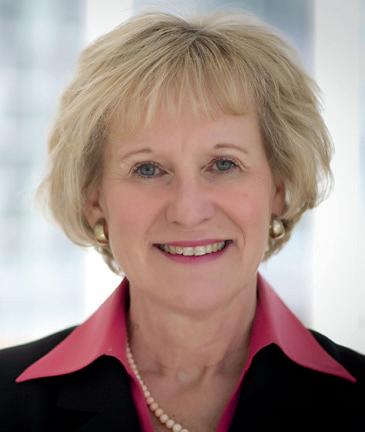
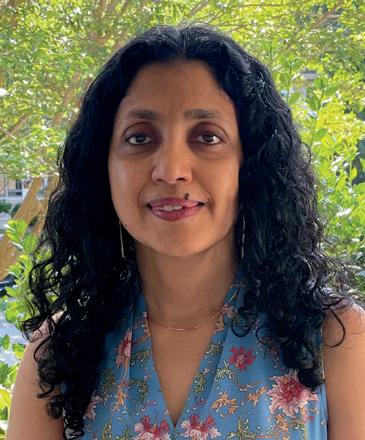
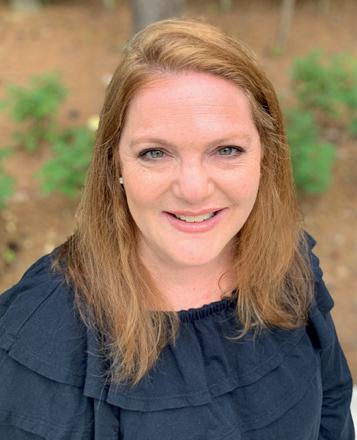
Jennifer Bullock earned a B.A. from Grinnell College and an M.S.W. from Smith College School for Social Work. She is a clinical social worker at Duke University’s Counseling and Psychological Services, working with undergraduate, graduate and professional students and serving as a liaison with student groups and other campus and community partners to provide programming, education and support. She has served as a substitute teacher in the Lower School and as a member of the Lower School Extended Day sta , and she is a member of the Diversity, Equity and Engagement Committee. She is the mother of Nathan ’24 and Jacob ’26.
Debbie Dibbert is a graduate of Tufts University with a B.A. in political science. She is Associate Vice Chancellor for Principal and Major Gifts at UNC-Chapel Hill. She served as DA’s director of development, alumni a airs and public relations for 10 years, helping lead two capital campaigns and sta ng two headmaster search committees. She is the mother of two sons who attended DA from Preschool through Upper School: Michael ’99 and Brian ’01.
Dr. Ashini Fernando holds a B.A. from Mount Holyoke College, a master’s degree in public health leadership from the UNC Gillings School of Global Public Health and a Ph.D. in pharmacology from Duke University. She is a public health scientist working in the elds of regulatory compliance of global health commodities and reproductive health. Fernando has been a member of DA’s Learning Environment Committee and a parent volunteer with First Lego League. She is the mother of Tharindu ’21 and Charith ’23.
Leora Fields earned a B.S. from the University of Maryland with a major in journalism/advertising and a minor in Hebrew. She worked in advertising in the Washington, D.C., area before moving to New York and then North Carolina, where she worked in advertising before becoming the director of marketing for a nonpro t organization. She has been involved with Parents Association as Preschool division representative, on the Welcoming Committee, with the All-School Picnic and DA Night at the Hurricanes, and is 2021–2022 Parents Association president. She is the mother of Asher ’21, Evan ’24 and Ammon ’27.
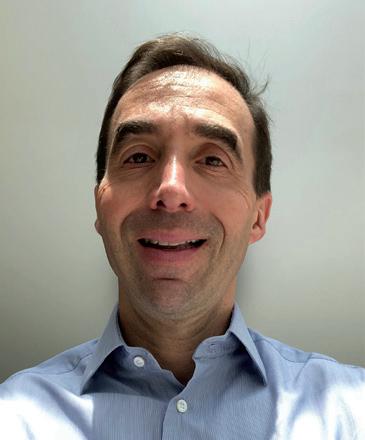

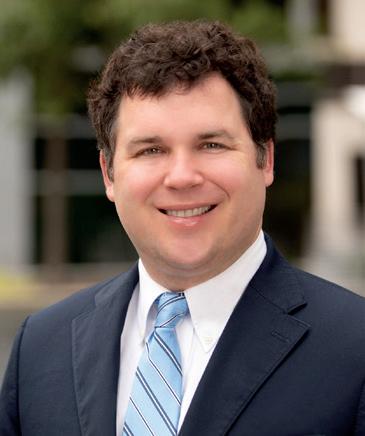
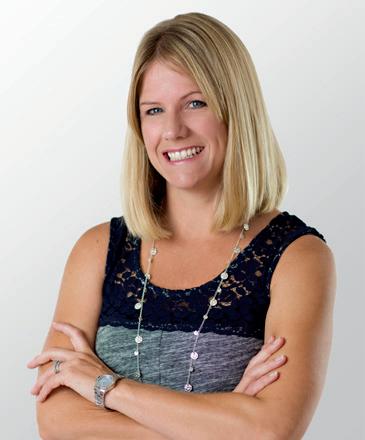
Randy Gelber graduated from the University of Michigan with a B.A. in economics and from the Wharton School of the University of Pennsylvania with an M.B.A. in nance. He is chief nancial ofcer of Epic Games. He has served on Durham Academy’s Finance Committee. Gelber is the father of Alexis ’23 and Jack ’29.
Dr. Delores Moore earned a B.S. from Duke University and an M.D. from the University of Alabama at Birmingham. She has practiced internal medicine and pediatrics for 16 years, and has been with WakeMed since 2010. She is treasurer of Parents Association and has served as chair of the New Parent/Welcoming Committee and as Preschool and Lower School division representative. She has been a member of the Development Committee and a DA Fund volunteer. She is the mother of Mailyn ’26 and Landon ’28.
Lee Patterson ’00 holds a B.A. from UNC-Chapel Hill, a J.D. from University of Richmond School of Law and an L.L.M. from Duke University School of Law. He is an attorney at Morningstar Law Group in Raleigh, where he focuses on mergers and acquisitions and general corporate matters. He has been active with the DA Alumni Board and is currently serving as president of the Alumni Board. He is the father of Lila ’30 and Davis ’32.
Melissa Pfeil earned a B.S. in marketing from UNC-Wilmington and a master’s degree in marketing research from the University of Georgia. She is vice president of marketing analytics at The Link Group, where she provides customer insights to marketing executives to help them make more informed business decisions. She has been Preschool representative to Parents Association, a member of the Welcoming Committee and a room parent in all four school divisions, and she is currently an Upper School room parent. She is the mother of Alex ’21 and Evan ’24.
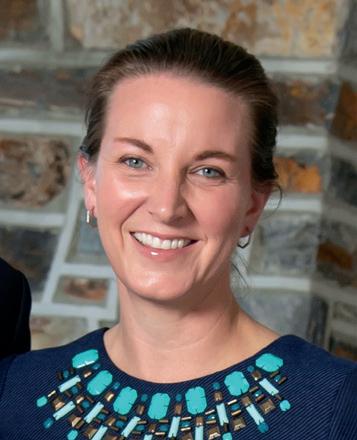
Jamie Krzyzewski Spatola ’00 holds a B.A. in English from Duke University, an M.B.A. from Cameron University and an M.A.L.S. from Duke University. She is vice chair of the board of trustees of the Emily K Center and is a writer, teacher and coach. She has previously served on the DA Board of Trustees and was chair of the Learning Environment Committee; is past president of the DA Alumni Board; is past member of the Headmaster Search Committee and the Strategic Planning Committee; is past co-chair of the DA Bene t Auction; and serves as a room parent. She is the mother of John David ’28; Mackenzie, a rising fourth-grader at Montessori School of Durham; and Madeline, a 4-year-old in Early Childhood at Montessori School of Durham.
Story by Susan Ellis // Photography by Melody Guyton Butts
In 1988, the Durham Academy Board of Trustees established the F. Robertson Hershey Distinguished Faculty Award in recognition of former Headmaster Rob Hershey’s decade of dedication to faculty excellence. Since that time, 33 teachers have been recognized for their extraordinary talents and contributions. They represent the best in teaching by: inspiring enthusiasm in the classroom and encouraging academic aspiration; demonstrating sensitivity to the academic and personal needs of the individual student; encouraging and supporting the e orts of colleagues; promoting the cooperation of a broad spectrum of the DA community; and contributing to school life outside the classroom.
Since arriving at Durham Academy in 1995, Upper School English and art history teacher Jordan Adair has improved the lives of many faculty and enriched the experience of hundreds of students. He ignites the re that fuels a student’s thirst for knowledge, curiosity and wisdom. He is rm, genuine, passionate, thoughtful, creative and extremely generous with his time. He loves what he does, and his passion nurtures, facilitates and inspires an appetite for learning. He guides his students and helps them carve a path for moral, happy and productive lives.
Sidney Hook, an American pragmatic philosopher and contributor to the philosophy of education, claimed that “everyone who remembers his own education remembers teachers, not methods and techniques. The teacher is the heart of the educational system.” This year’s Hershey Award recipient is fondly and rightfully known for both. Jordan is an adept teacher and one who is well aware of “best practices.” He is not only a gifted teacher, but an exemplary role model.
An Upper School colleague shared, “Over the course of my 41-year career, the last 11 at Durham Academy, I did not have a better colleague and more trusted friend. As well as being a transformative gure in the lives of his advisees and students, he was tremendously in uential in the careers of many of his English department colleagues and across departmental lines. He shared his ideas, was willing to debate pedagogy, discuss strategies and methods and he was always eager to pursue avenues that would make him a better, more e ective teacher.”
One of Jordan’s former students said, “He was my favorite teacher ever. He made us connect with each other through conversation and his kindness and understanding. I have never worked so hard for an A- in my life, but I loved it.”
Jordan is a member of the Upper School Assist Team, which is a non-disciplinary group that helps students address the use of alcohol and other drugs. His dedication to the Assist Team and the assemblies in which he shares his own experience of recovery, the stories of military veterans [who are annual guests as part of Adair’s course examining literary and artistic responses to war] and his passion for biking safety further exemplify his deeply personal commitment to sharing his own humanity and to teaching us all to be better humans through sel ess service.
He encourages the e orts of colleagues, supports the initiatives of DA, contributes to the greater school community and is a superb purveyor of information. Through the years, he has served on many school committees and task forces and can be seen keeping the score at the varsity basketball games. Early in his DA career, he coached the varsity boys basketball team.
Jordan wants his students to learn and to look inside themselves and understand who they are, how they feel, what they think and why. He refuses to accept super cial imitation of self-re ection in exchange for a grade. He demands authenticity and vulnerability from his students, and he frequently gets it. There is a reason so many students in their 20s, 30s and 40s remain in touch and come back to visit him.
“Even 20 years later, I still remember my years in Mr. Adair’s class so vividly,” an alumna recalled. “He is truly a ‘tough love’ teacher in the nest sense he challenges his students to be the best version of themselves and is not afraid to (very nicely) let them know when he thinks they have more to give.”
It should come to no one’s surprise he was the 2007 Upper School recipient of the Brumley Excellence in Teaching Award.
He is the epitome of a life-changing teacher who makes a di erence. Thus, it is tting that Jordan Adair is honored with the 2021 F. Robertson Hershey Distinguished Faculty Award.

“Mr. Adairʼs passion for teaching is surpassed only by how much he cares about his students. … I’m lucky to learn from him.”
— Emily Norry ’21

As the school year comes to an end, we welcome a new class of alumni to our association. The Class of 2021 has gone through so much during the last 15 months, but it has fought through adversity and come out on the other side ready to attack its next adventure. The unusual circumstances we have lived in have made us think outside the box about how we can engage and connect alumni with one other and with their alma mater.
The Durham Academy Alumni Board is stronger than ever, and under its leadership and guidance we hosted virtual events ranging from social gatherings with long-serving faculty like Teresa and Steve Engebretsen (respectively, Middle School French teacher and PE teacher/former athletic director), Owen
Bryant (Upper School history teacher), Jordan Adair (Upper School English and AP Art History teacher) and Head of School Michael Ulku-Steiner to a Black Alumni Reunion. In April, we honored Faculty and Sta Legacy Award recipient Verle Regnerus (assistant Upper School director, Upper School math teacher and registrar, and former varsity baseball coach), Alumni Service Award recipient Molly Shaw ’98 and Distinguished Alumni Award recipient Ward Horton ’94 at the Spring Alumni Reception. In February, Faith Couch ’14 spoke about her world-renowned photography work. In late April, we held our most successful Giving Day ever with more than 420 alumni donors. Alumni have shown their support to DA by o ering up their talents and their treasures.
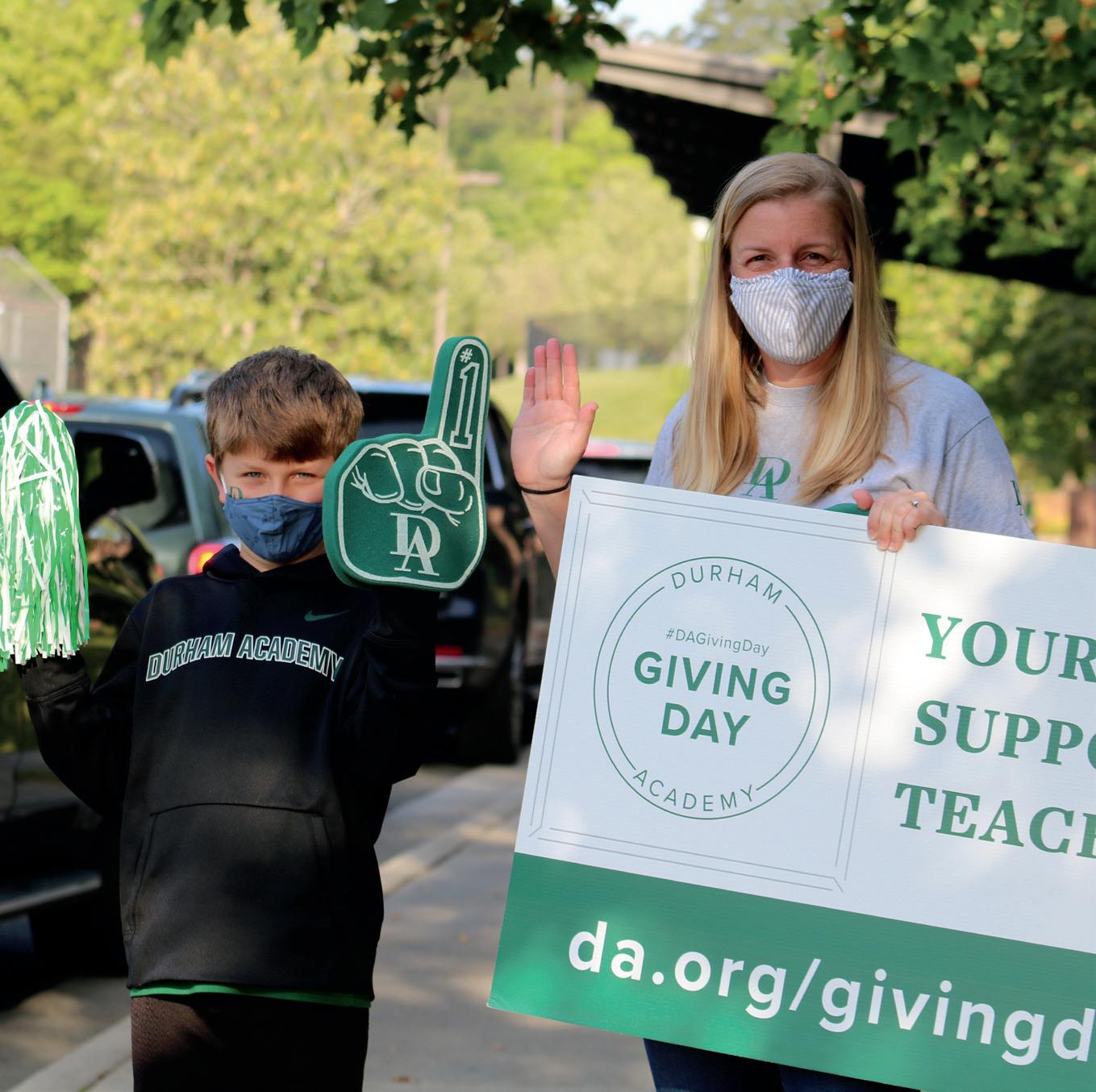
As we turn the page and look forward to the upcoming school year, we will unfortunately not be able to host reunions on campus this fall. Our plan is to host a huge celebration in fall 2022, when we will gather and honor graduates from classes ending in 0, 1, 2, 5, 6 and 7. In December, we will induct another class into the Athletic Hall of Fame. These seven inductees embody what it means to be a Durham Academy student-athlete and supporter.
In the coming months I am hopeful we will be able to see each other in person, whether here in Durham or in a city near you. Thank you for your continued support.
Go Cavs!
Tim McKenna Director of Alumni Philanthropy and Engagement
2021–2022
Lee Patterson ’00
President
Katye Proctor Freelon ’03
Vice President
Steed Rollins ’78
Kirsten Vollmer ’87
Brian Vick ’90
Meredith White Howell ’97
Bradley Hardy ’98
Molly Shaw ’98
Amelia Ashton Thorn ’01
Kent Cheesborough ’05
Nick Wisner ’06
Margie Gudaitis Hess ’07
Rob Kirkland ’07
Derek Rhodes ’11
David Peters ’13
Joia Freeman ’14
Jason Lapidus ’15
The Durham Academy Athletic Hall of Fame will induct its fifth class of honorees on Dec. 3, 2021, at 6:30 p.m. Established in 2013, the Athletic Hall of Fame comprises alumni athletes, coaches, administrators and supporters who were particularly outstanding in a specific sport and helped to advance athletics at DA in their time. This marks the fifth class inducted into the Athletic Hall of Fame. With the induction of the 2021 class, the hall will stand at 37 members, representing alumni classes ranging from 1977 to 2015, as well as coaches and supporters spanning the decades.
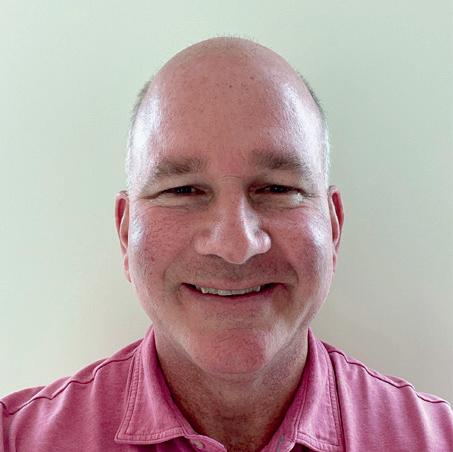
Beischer, an All-Conference and AllState basketball player, still ranks in DA’s top five in rebounding and field goal percentage. Wearing a Cavs track and field uniform, he set school records in shot put and discus and was an individual state champion in discus. He remains among DA’s all-time top five in shot put and discus. Beischer is now a professor of architectural history and theory at Stanford University.
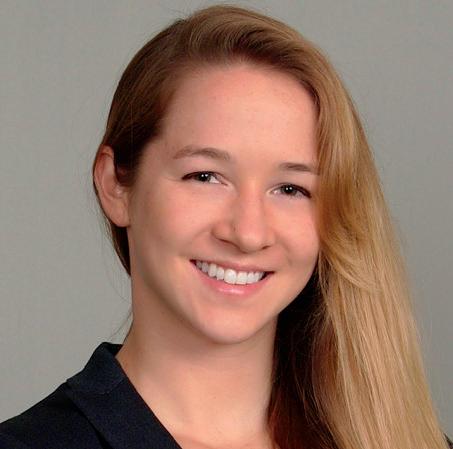
Soo — twice named N.C. Gatorade
Cross-Country Runner of the Year
— won track state championships in the 1,600- and 3,200-meter races. She graduated as DA’s record-holder in the 1,600-meter, the 3,200-meter and cross-country; she still holds the cross-country record. Soo ran track and cross-country at Duke University and is now an emergency medicine attending physician in Seattle.
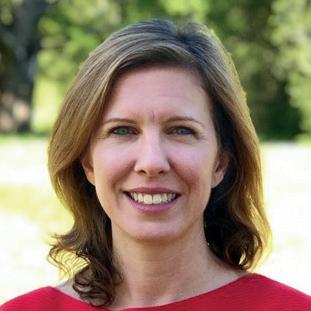
Cerwin excelled in field hockey, basketball and track at DA. She earned All-Conference and All-State honors in field hockey. She was a three-time individual event state champion in track and set the DA record in the 800-meter run. Cerwin went on to play field hockey at UNC-Chapel Hill, and she now works in digital transformation at Biogen.
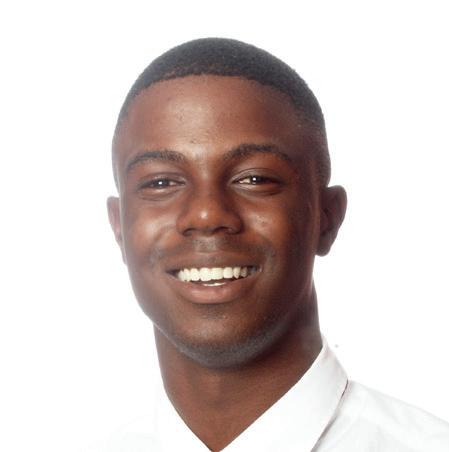
Warren, described as “possibly the best male tennis player in DA history,” won multiple All-Conference and All-State honors in a Cavalier uniform. He is the DA record-holder for most career wins in tennis, with 127 victories. Warren went on to play at the University of Connecticut and now works at Red Hat and serves as an assistant coach for DA varsity boys tennis.
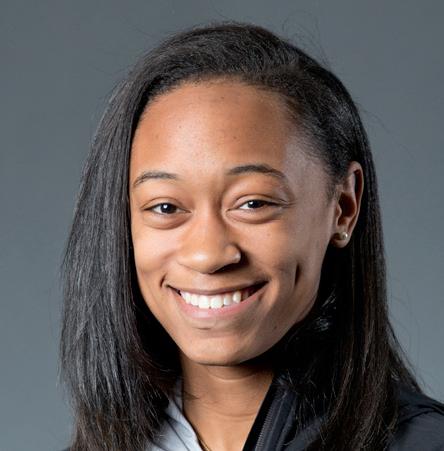
Rothwell scored more than 1,000 points in basketball. On the track, she won five individual state championships in three di erent events and currently holds DA records in the 100-meter, 200-meter, 100meter hurdles, high jump and long jump events. She set records in hurdles at both Dartmouth College and at Duke University, where she is earning a master’s degree in management studies.

As parents, grandparents and DA athletic program supporters, the late Dr. and Mrs. Moylan were consistent in their support of DA athletics. Their contributions of volunteer time, counsel with young coaches and administrators, financial assistance, medical advice and dedication to DA teams and athletes left an enduring mark on DA’s athletic program.

Collin Suggs ’08 is a young man who sets goals for himself and pursues them with almost relentless determination.
That’s what gets him up at 5 a.m. to lift weights; has him on his computer at 7 a.m. for a jump on the work day; keeps him on back-to-back work calls until 6 p.m. and then on his laptop before bedtime to stay on top of things; and holds him to a plan that will allow him to retire at age 55.
It’s a lot for a 31-year-old who said he struggled academically at Durham Academy, but he credits that with setting him up for success in college at N.C. State University and in his career with software company Red Hat.
“Being at DA was such a challenging academic environment and I was always towards the bottom of the academic scale, which probably isn’t a great story necessarily to tell students,” Suggs said, “but I think it’s important that current students understand just because you’re not at the top of the class academically, it doesn’t mean you’re going to be unsuccessful in life. I graduated Durham Academy [in 2008] with a 2.44 GPA — nothing that I’m proud of there — but DA gave me the foundation, the work ethic to go on and do well in college and really accelerated succeeding in my career.”
Suggs remembers an Upper School assignment to memorize a Shakespeare poem for Lanis Wilson’s English class.
“At the time, I wasn’t mature enough to care. I wasn’t going to memorize it, but he [Wilson] stayed on me. I never did memorize it, but I had to go to his room every day for probably a month straight to attempt it. I think it was building that work ethic and perseverance that really helped shape who I am today.”
He graduated from N.C. State with a degree in business administration, a concentration in marketing and a minor in economics. While in college, he did internships each summer, worked as a server at P.F. Chang’s restaurant and started his own painting business. Suggs turned family financial struggles into a positive, saying the experience helped him become a stronger person and vowing he would “be successful in whatever career I choose.”
He took a job right out of college with a payroll company, then stepped away from that job. The combination of a stressful sales environment and a serious downturn in his grandfather’s health was impacting Suggs’ life. He took some time and went back to work at P.F. Chang’s to pay bills and buy time between jobs. Suggs’ next job was a warehouse and counter sales manager for a plumbing company in Greensboro, involving a 75-minute commute from Raleigh each morning and afternoon.
“A year after I started working there — I met a lot of great people, learned a ton of stu — I got very fortunate. I was living next to a recruiter who recruited for Red Hat. I always wanted to go to [work at] Red Hat, and I’d applied in the past, but was never able to get my foot in the door. So just randomly living next to this recruiter, she stopped me one day walking into my apartment and said, hey, I see you drive this plumbing truck. Are you in sales, though? I am in sales. Would you be interested in a job at Red Hat? I’m like, yes, I’ve been trying to get in there.”
Suggs interviewed and landed the job. That was six years ago, and it was “a very low-level position in the sales organization at Red Hat, which to me was worth it because I knew if I got my foot in the door I’d be able to prove myself and I did just that. After eight months of doing the role they hired me for, I was promoted from lead generation to inside sales. I did inside sales for six months and they promoted me to mid-market sales. I did mid-market sales for one year and then they promoted me to enterprise or field sales. I spent the last three years working with state and local education customers in North Carolina, Tennessee and Virginia, really expanding the Red Hat footprint in those areas.” He was one of Red Hat’s top reps for the last three years, and in January 2021 accepted a management position to rebuild a mid-market team.
“I love working at Red Hat, but for me it’s a means to an end,” Suggs said. “I’ve set my retirement goal for 55. I want to get out of the workforce early. Part of the reason is because I work so hard right now, I believe I’ve earned the ability to retire early. … Red Hat is my means to get to that retirement level. I do enjoy my coworkers. I am learning a ton. My plan is to be the vice president of all of public sector sales here at Red Hat. I’ve got another step, two for sure steps, I need to take in order to get there. But definitely at my age and trajectory, I’m on course for that. There are certain milestones at work from a financial standpoint and from a career development standpoint that I’m trying to pursue aggressively.”
Suggs said work consumes his life and his wife, Vicky, is very supportive of that. They met when he was working in Greensboro, married in November 2020 in an online courthouse ceremony due to COVID-19 restrictions, and will have a wedding in September.
Fitness, cars and helping others are also part of the mix for Suggs.

“I was probably one of the smallest boys at DA, so when I graduated and went to college I wanted to eat more, get bigger, stronger,” he said. “Fitness became a pretty important part of my life, and Vicky shares that passion. We built a home gym, so when COVID happened we were able to continue with our exercise and fitness routine.” Thomas Davidson ’08, a DA classmate, works out with them most mornings and is Suggs’ financial advisor.
Suggs readily admits he is a car bu . “I really enjoy fast cars. I enjoy slow cars, like 4x4 Jeeps. When it’s a fast car — BMW, Porsche, Mustang, you name it — I probably tried it, had it for a little while and sold it.” He bought a 1995 Jeep Wrangler, and DA classmate Grant Fowler ’08 has introduced him to the overlanding and rock crawling culture. It was through yet another DA connection that Suggs was recruited to serve on the board of Students to Scholars, a nonprofit that helps promising middle school students attend independent schools.
“Between Students to Scholars and doing Big Brothers, Big Sisters, it’s really opened my eyes,” Suggs said. “I grew up very middle class. I had wealthy grandparents on one side, and I had rural, not so well-o grandparents on the other side. So growing up, I had this interesting blend of spending some summers on the golf course at Treyburn and other summers on the farm picking tobacco in Clayton, North Carolina. It really helped shape who I am, and I love to help people that want to help themselves. … Seeing children that haven’t been given the best opportunity and being able to talk to them and help them grow into who they are and give them a chance.”
Suggs lives near downtown Raleigh. He said it’s an area that has been undergoing gentrification, and “I’m always willing to help out the neighbors that might have the older house on the street. They’re willing to take that first step. And I am passionate about the youth because it’s not their fault that they were born into an environment that didn’t give them all the tools that I was very fortunate to have access to. That’s something that’s been pretty important to me.”
“I think it was building that work ethic and perseverance that really helped shape who I am today.”
— Collin Suggs ’08
Dear All,
On this nal day of Black History Month, it felt relevant to send a missive that I rst composed in December about the Parents Council Election of 1976–1977. Like the currents that are so powerful now race, power and fear of displacement these dynamics played at our school that year when a Black father, Dr. Tyrone Baines, was elected as the rst Black parent to become president of the venerable Durham Academy Parents Council.
I was in eighth grade that year, my best year in Middle School. Durham Academy had settled into itself as a multicultural institution carefully navigating the fault lines of race in an e ort to be truly inclusive and modern. It was the Bicentennial, and there was an electricity in the air throughout the country America was 200 years old, and we were here to celebrate it!
The ’70s was a decidedly modern era in terms of music and clothes, language and sensibility. We were, along with our parents, reimagining America and what it could be. The Constitution had held us together through the civil rights movement, the Vietnam War, the women’s liberation movement and the ght for the doomed Equal Rights Amendment bill. We had come so far.
Yet, the past remained prologue. We were still the South. The country club was still exclusive based on color, and gender roles were still pronounced.
were refreshments for Parents Night, served us cupcakes on special occasions, served as chaperones on school trips and dried tears or soothed anxiety when your own mom wasn’t around. My mother was a trailblazer as a trustee and a grade mother. I was slightly more proud of her being a terri c grade mother. That’s the way it was.
Our grade mothers were prim, well-appointed, coi ed, with warm smiles. They helped to create and crystallize the culture of our school and our connection.
Mrs. Nancy Anderson, the mother of Mark Anderson, stands out in particular as a cultural ambassador. She was the hostess with the mostest her kitchen was as familiar to us as our own kitchens. Mrs. Anderson seemed to e ortlessly host everything after school hours post-athletics games, a Student Council meeting, a Board of Trustees meeting, post-school plays, etc. She had a double oven, which was a wonder. Our DA moms represented perfection, precision, wisdom. That time was a charmed time.
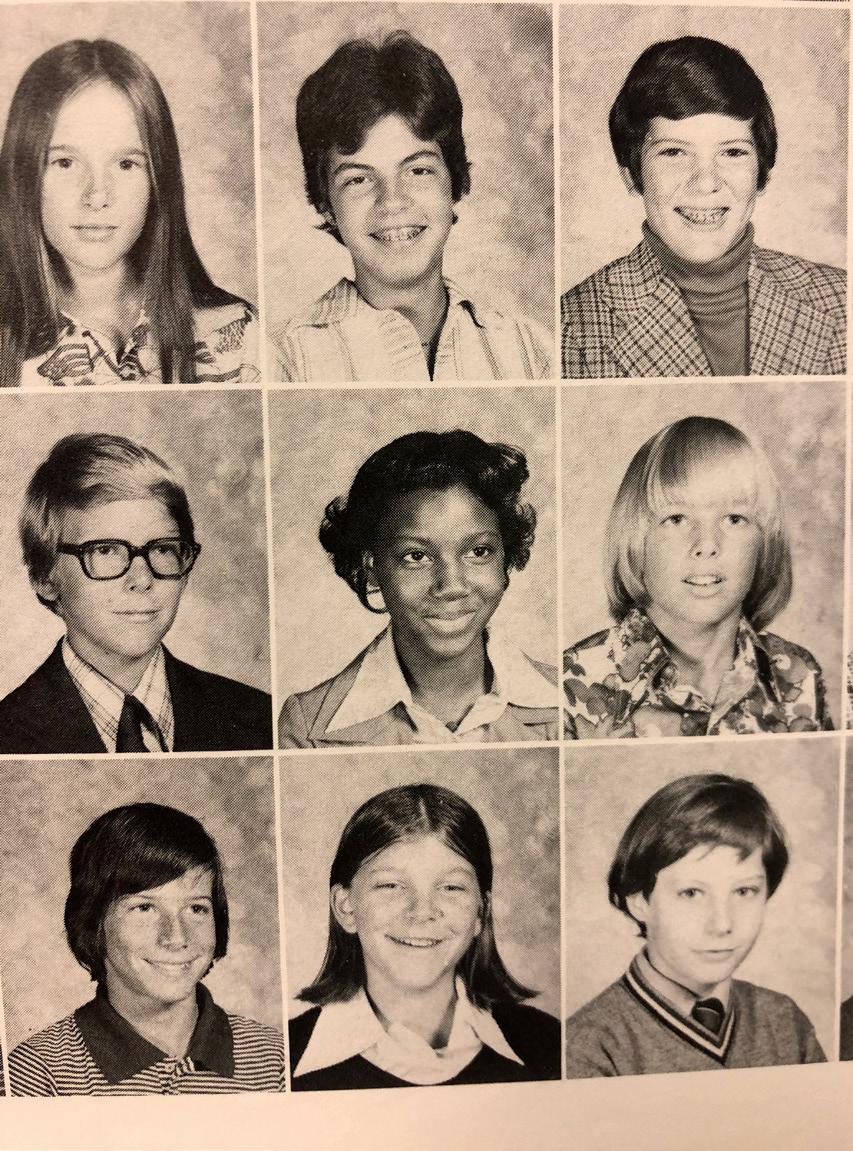
Our fathers were dads they volunteered as coaches, drove us on eld trips, gave interesting extracurricular talks that supplemented our world-class education. Dr. Danforth taught us chess, Mr. Ledbetter taught us about astronomy, my dad gave a talk about con ict resolution and so forth and so on.
But the power center outside of the Board of Trustees was the Parents Council. That was where our mothers reigned supreme.
If elected as grade mothers, our moms served refreshments at games and school events, made sure that there
We were the new America, the democratic promise made whole. And yet the old America still managed to rear its head, much like now. When North Carolina Central University professor Tyrone Baines, whose son was in either fourth or fth grade, decided to run for president of the Parents Council it was the ultimate test of
how new America we were. We didn’t pass the test. The partisan lines were hard and fast.
Old Durham and its allies vs. Chapel Hill, Black Durham and Northeast transplant Durham mainly folks from Duke and RTP. Lawyers were retained. Parliamentary procedure was king. Parents on both sides huddled furtively at school and called each other late into the night on strategy. Smiles were tighter. The air was not as light. I knew too much, and it hurt.
There were three recounts before Dr. Baines was nally declared the winner. There were hard feelings. Friendships
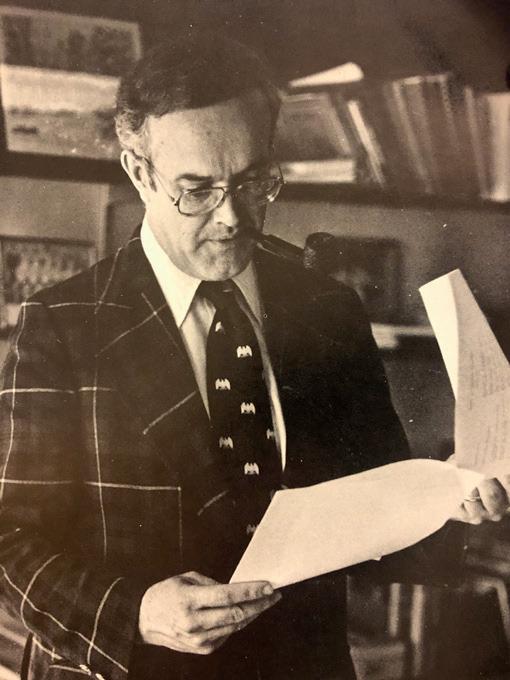
among parents ended. Bob Johnston, our fearless headmaster who had fought to have Black trustees on the board and who supported this new Black president, left for Milwaukee at the end of the year to take the reins of University School.
In the midst of the drama, right before the third recount, Mr. Johnston called me into his o ce. When I entered apprehensively, he smiled and said, “Oh, please sit down, you’re not in trouble or anything. I just wanted to have a short talk with you. I know you’re aware of everything going on with the Parents Council. So, I have a book for you. Are you familiar with the book Pro les in Courage by John F. Kennedy?”
I was. I replied that my father had a hardcover version, but that I had never read it. After all, I was into teen novels and biographies about women trailblazers.
Mr. Johnston pulled out a paperback version with a picture of President John F. Kennedy on the cover. He looked at me intently as he handed the book over to me and then said brightly, “You should read this book. In particular, there’s a story about U.S. Senator Thomas Hart Benton who opposed his colleagues by ghting against the expansion of slavery into the new territories like Missouri. By
standing up, Benton helped prevent the spread of slavery, but it cost him his political career.” Mr. J then went on to summarize the stories of other great leaders pro led in the book.
I loved politics, so I was intrigued by the stories, but also uncertain as to what they had to do with me. Mr. J took out his pipe, then laid it down on his desk.
“Valerie, it’s courage that determines the course of one’s personal history and in a larger sense, the history of the world around us. Courage may cost you. But in the end, who we are and how we are remembered is based on how much we are willing to stand up for the right thing, no matter what.”
I nodded my head, took the book and smiled. Mr. Johnston rose from his chair, as did I. He smiled warmly at me. “Enjoy the book,” he said. “Let me know what you think.”
Decades later, I think of that moment and that election. We persevered at DA, but things were lost. Then, in time, things were gained. The next year, I was elected ninthgrade class president. Dr. Baines had a ne tenure as Parents Council president. Things smoothed over. DA and its community survived.
Now, no one thinks twice about a Black parent on the DA board or as a president of the Parents Council. But it was courage and allyship that made this possible. Black and white parents like my parents and so many others, stood together at a di cult moment to make a di erence. Their courage paved the way. It still does. Courage matters. It always will.
Happy Black History Month, DA.
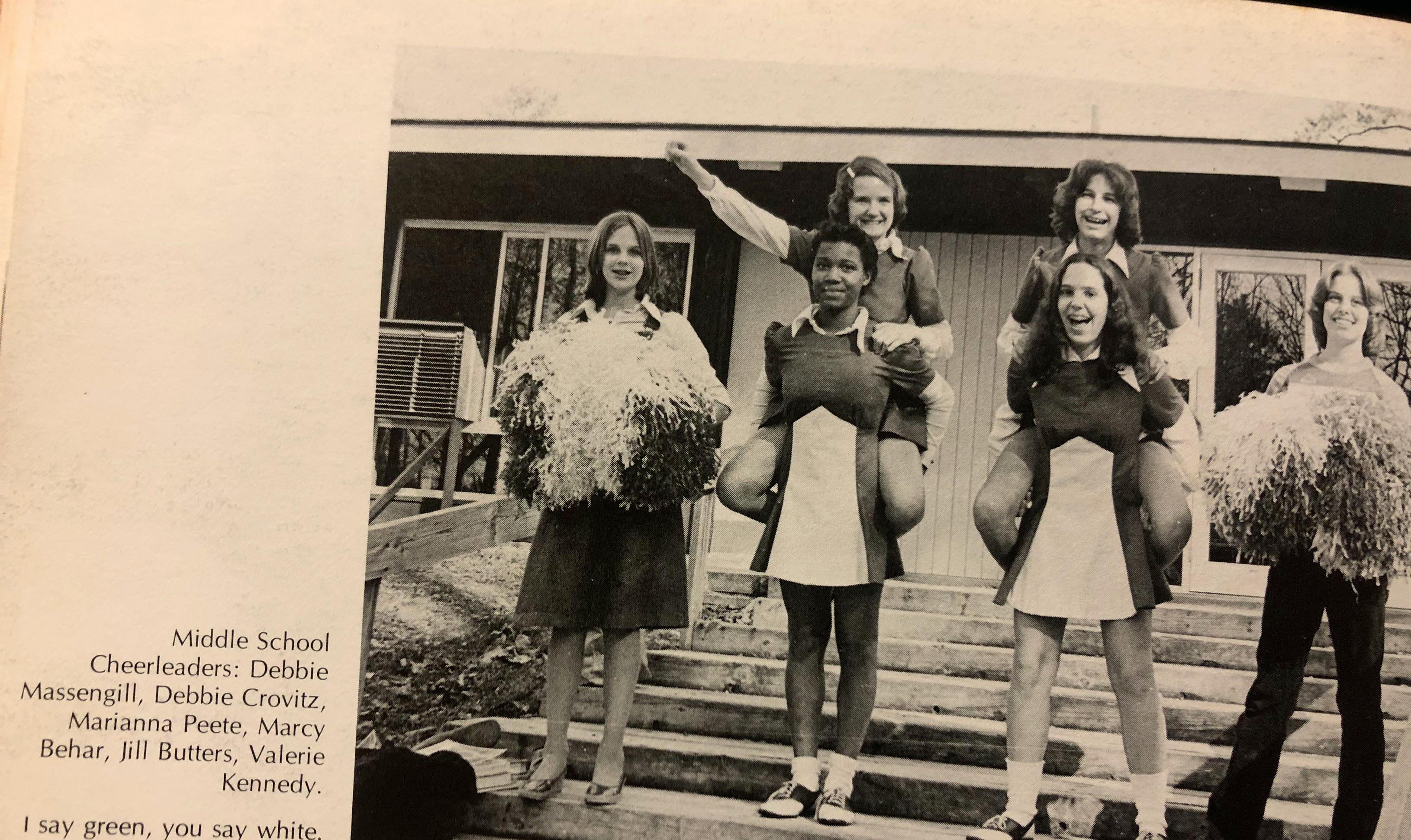

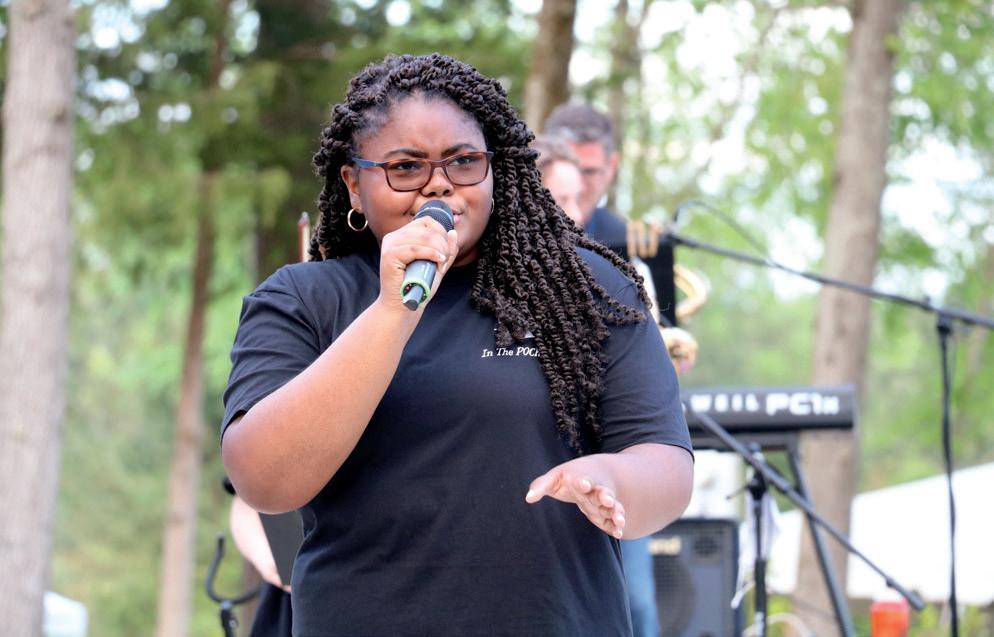
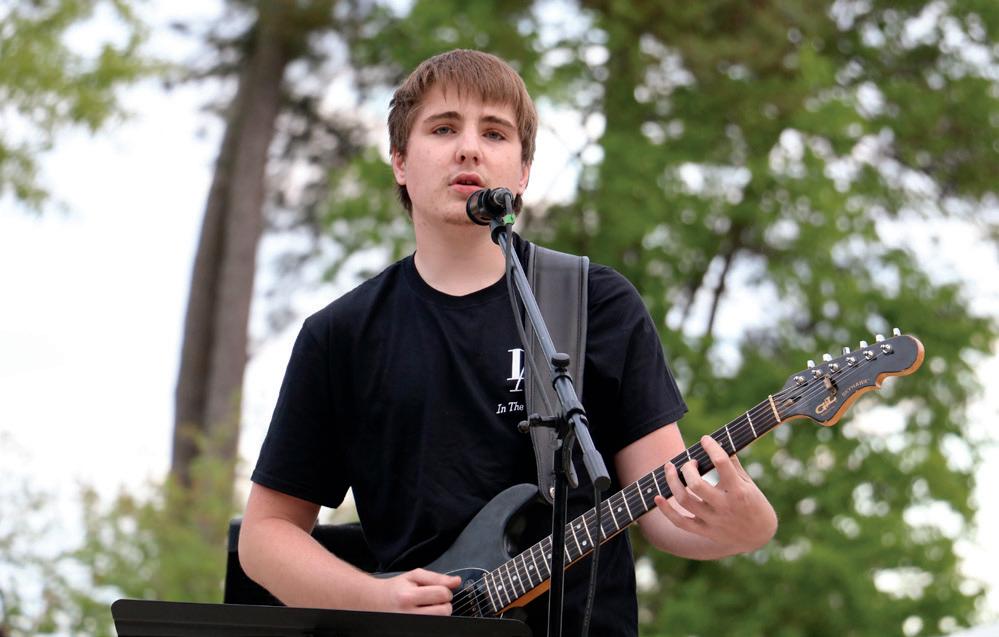

Story by Michael Meyer // Photography by Leslie King
During the 1997–1998 school year, a few curious and talented Upper School students who knew about Upper School physics teacher Dr. Herb Lamb’s life before Durham Academy asked him if he’d like to jam with them. Dr. Lamb grew up surrounded by the blues of the Mississippi Delta, was a self-taught piano and bass player, and had spent a number of years as a club musician.
Dr. Lamb was happy to oblige, and he and the students put together a few songs. Over the next few years, the group of students changed, ebbed and owed, but the jam sessions continued, even producing a few informal performances along the way.
In the 2002–2003 school year, a larger group of students upped the ante, staging their
own headlining concert with Lamb in Kenan Auditorium along with some of his musician friends from the community and assisted by the Upper School music teacher at the time, Dominic LaCasse. The following year, O ce of Information Technology Director Trevor Hoyt and I joined in the fun, we gave ourselves a name, actually printed up a program for the spring show, and In The Pocket was o cially established in the DA community. Trevor and I serve as co-directors of ITP.
Next spring will mark ITP’s 20th consecutive annual spring show and 25 years since those rst students approached Dr. Lamb in his physics lab. We’re ready to celebrate!
In The Pocket is inviting fans to an ITP Anniversary Celebration the weekend of
Saturday, Jan. 8, 2022! There will be reunions, activities, jam sessions and rehearsals throughout the weekend, with a concert for the public at 7:30 p.m. on Jan. 8. ALL In The Pocket alumni from all 25 years are invited and encouraged to attend! We will make music with everyone who wishes to. Trevor and I are hoping to have such a huge response that we have to add a second show!
ITPers far and wide, be on the lookout for o cial invitations later this summer (update your contact info at www.da.org/AlumniInfo to ensure we can reach you), and everyone else, mark your calendars for Jan. 8 at 7:30 p.m. for the ITP Anniversary Celebration. It’s been a wild ride. We can’t wait to celebrate with all of you!
1 — Our first studio-recorded album in 2006, followed by releases in 2012, 2016 and 2021.
2 — Our first club show at Motorco Music Hall in 2012, followed by shows at Haw River Ballroom and the Carrboro ArtsCenter.
3 — Collaborations with phenomenal professionals like The Beast, Banda Magda and (from our most recent Motorco show) Django Haskins and Mark Simonsen of The Old Ceremony.
4 — Many performances featuring DA faculty — from our first performance with Upper School English teacher Jordan Adair playing flute in our 2006 show, to our first-ever Faculty Show in fall of 2019.
5 — A lecture/demonstration for music educators from around the country at the 2015 National Association for Music Education Conference in Nashville.
6 — The development of our annual Alumni & Family Show — a tradition of current students getting to make music with ITP alumni and with their own family members.
7 — Tens of thousands of dollars raised through our shows for student clubs and DA-a liated organizations like Rise Against Hunger, WISER, Kidznotes, StrongHER TogetHER, SOCK Camp, and Bailadora #2 (DA’s former sister school in Nicaragua).
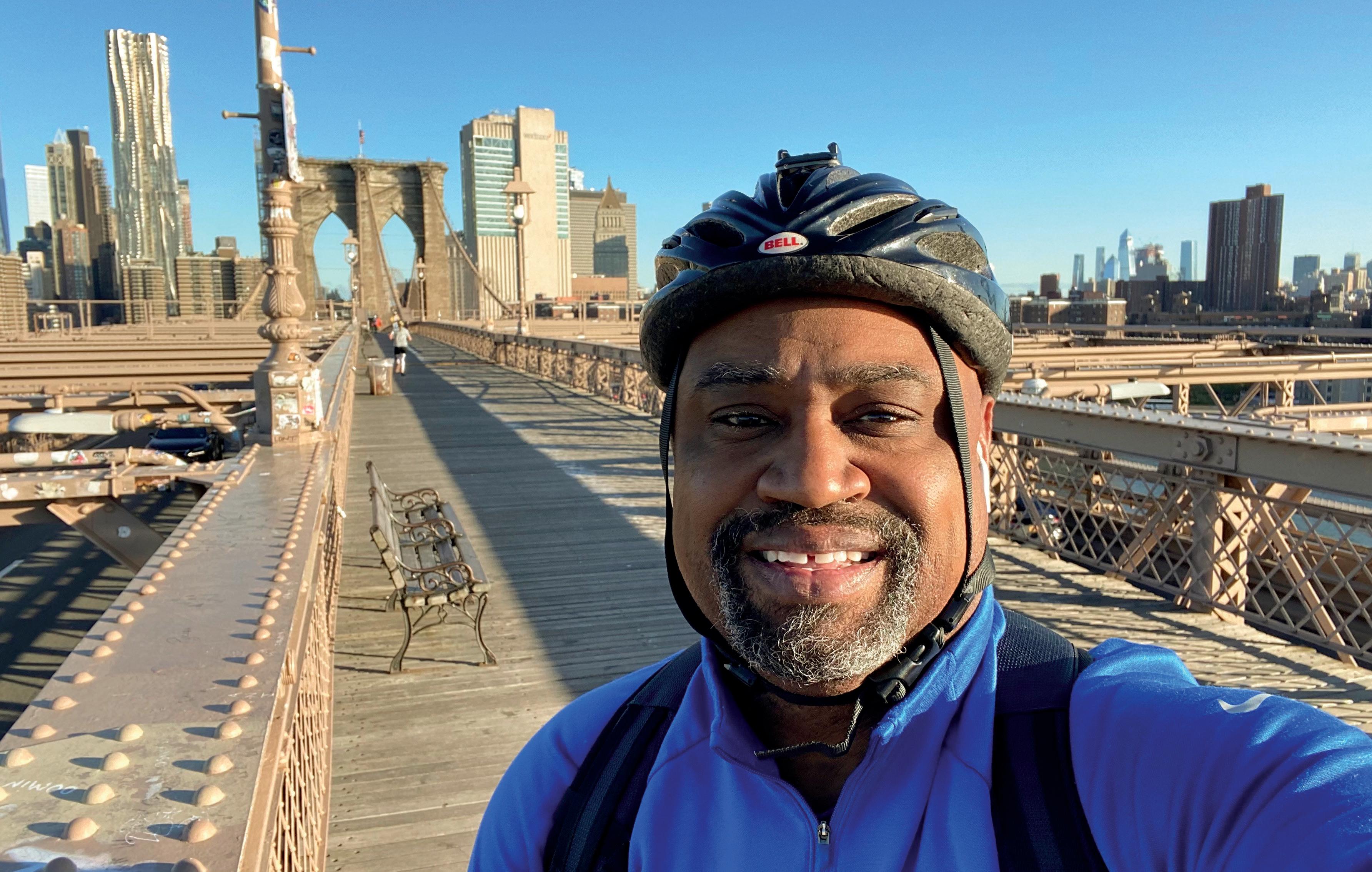
“I got a terrific education in the Durham public schools and made some lifelong connections and still keep up with my middle school friends. But I think DA just gave me this real passion for learning and being able to appreciate just what education means. That was something that I’ll never forget.
“Sitting in Lou Parry’s physics class or in Mrs. [Janice] Ching’s English class and rewriting and rewriting and rewriting and just understanding and appreciating. [Former Upper School math teacher] Jim Ebert pushing me in math class. Those were amazing times in my life. I mean, it was hard. It was stressful and I struggled at times, but looking back on it, it was the best thing to ever happen to me.”
Judkins played basketball and baseball, and his first two years at DA he ran cross-country. “Those cross-country teams were the only times I won a state title. [Former cross-country and track and field coach and Upper School math teacher] Dennis Cullen won them all the time.” He keeps up with DA friends — Charlie Shipman ’92 is a frequent golf partner, and Douglas Dicconson ’91 brings his sons over for outdoor playdates with Judkins’ girls. And Judkins has served on the DA Alumni Board.
“DA means the world to me,” Judkins said. “DA is the root and the foundation of everything I’ve become as a man, as a father, as a husband, as a person. And I just appreciate that, and I love being able to continue that relationship and partnership with DA.”
When Judkins was working at The Town School, his head of school recommended that he participate in the Institute for Aspiring Heads of School, an 18-month fellowship program sponsored by the National Association of Independent Schools. Judkins said he would eventually like to be a head of school, has interviewed for several openings and has been a finalist a couple of times. “I think this [Moravian Academy] job is a really good stepping stone for that because I’ll be able to supervise people and I’ll be able to do some visionary work for the school.”
Judkins has been passionate about working with and mentoring kids since he was a camp counselor at the YMCA during high school, but he never expected to go into education. So what has kept him working in schools for more than 20 years?
“Oh gosh, it’s just the impact on kids’ lives. That’s the most important piece. When I hear from former DA students, former Town students, former Rye Country Day students, and they tell me wonderful things that they learned from me or from a situation that we’ve talked about, that’s what keeps me in it, being able to change lives and impact lives.”
DA alumni from around the country and spanning the decades joined a Zoom call on April 14 to celebrate this year’s recipients of alumni awards: Ward Horton ’94 (Distinguished Alumni Award); Molly Shaw ’98 (Alumni Service Award); and Verle Regnerus (Faculty and Sta Legacy Award).

Watch the award recipients’ acceptance speeches in a recording of the Virtual Spring Alumni Awards: bit.ly/2021DAAlumniAwards
“I want to do more than celebrate Ward for his acting success tonight. You see, what I think Ward deserves credit for most of all is the extremely strong work ethic that his parents very clearly instilled in him and his two sisters from an early age. … Ward has been unafraid to take on small parts, as long as they earned him a learning experience or a new connection with a writer or director or producer or fellow actor. One after the other, those individual stepping-stone moments have turned themselves into an admirable career.”
— Garrett Putman ’94, introducing Distinguished Alumni Award recipient Ward Horton ’94
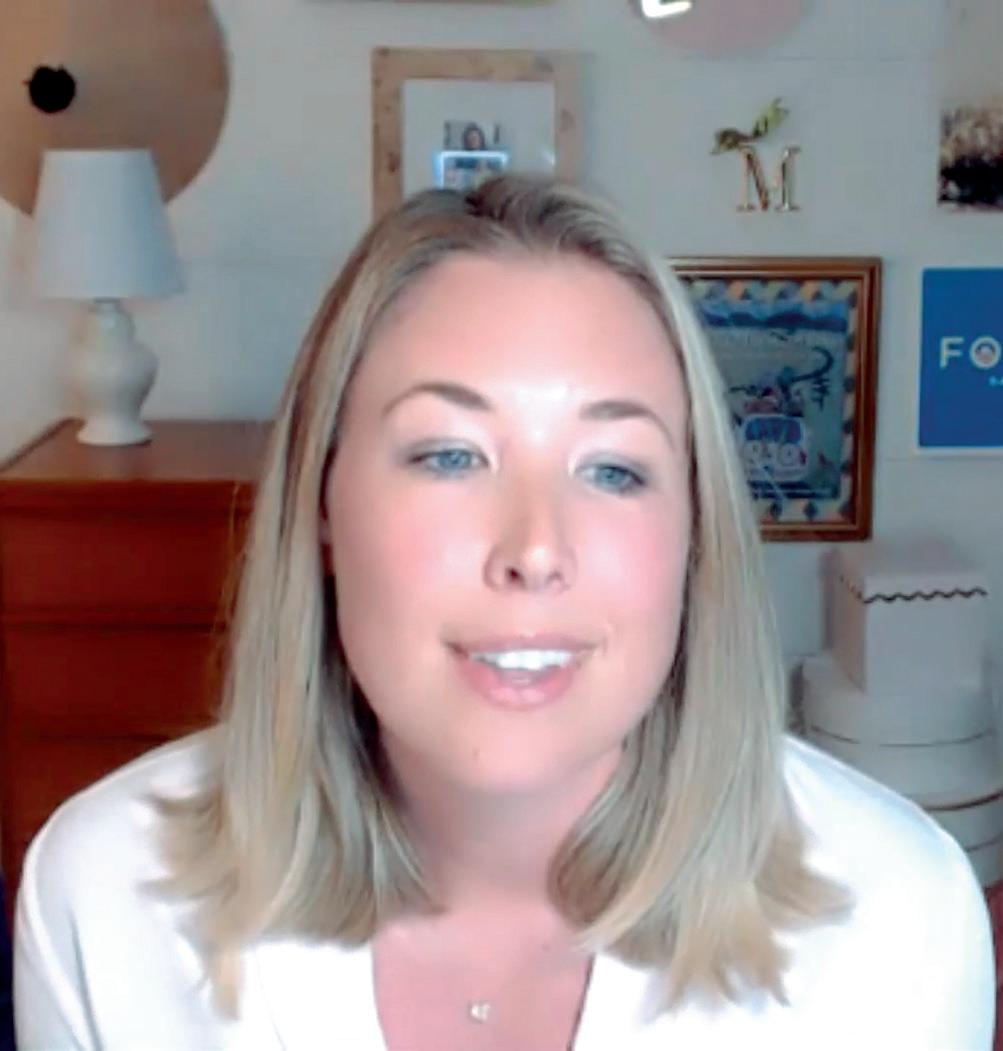
“[As CEO and president of Communities in Schools of Charlotte-Mecklenburg] Molly acknowledged that stories needed to be heard. She was just the person to listen and ask the right questions even of herself. She shared openly to deepen the bond and bridge the gap with the right people in her organization and she built trust and she shifted the power. … She re ects on her own privilege, power and race and carries a now visible backpack. And continues to use it to help others and continues to unpack it and learn its contents. She knows the work and growth is never nished in order to make appropriate change.”
— Katie Ryan Amick Kantz ’98, introducing Alumni Service Award recipient Molly Shaw ’98

“He’s a perfect colleague — he’s smart, he listens, he’s funny and he’s always willing to help. He goes the extra mile. He puts in hours, he thinks strategically for the students. He doesn’t worry about the recognition or who gets the credit or how long the week has already been, or what’s the stipend for that, he just goes the extra mile for the students. My advice to any young faculty member at DA or anywhere would be to be humble, work hard, work for the students, be like Verle.”
— Steve Engebretsen, Middle School PE teacher and former director of athletics, introducing Faculty and Sta Legacy Award winner Verle Regnerus, Upper School assistant director, registrar, math teacher and former varsity baseball coach
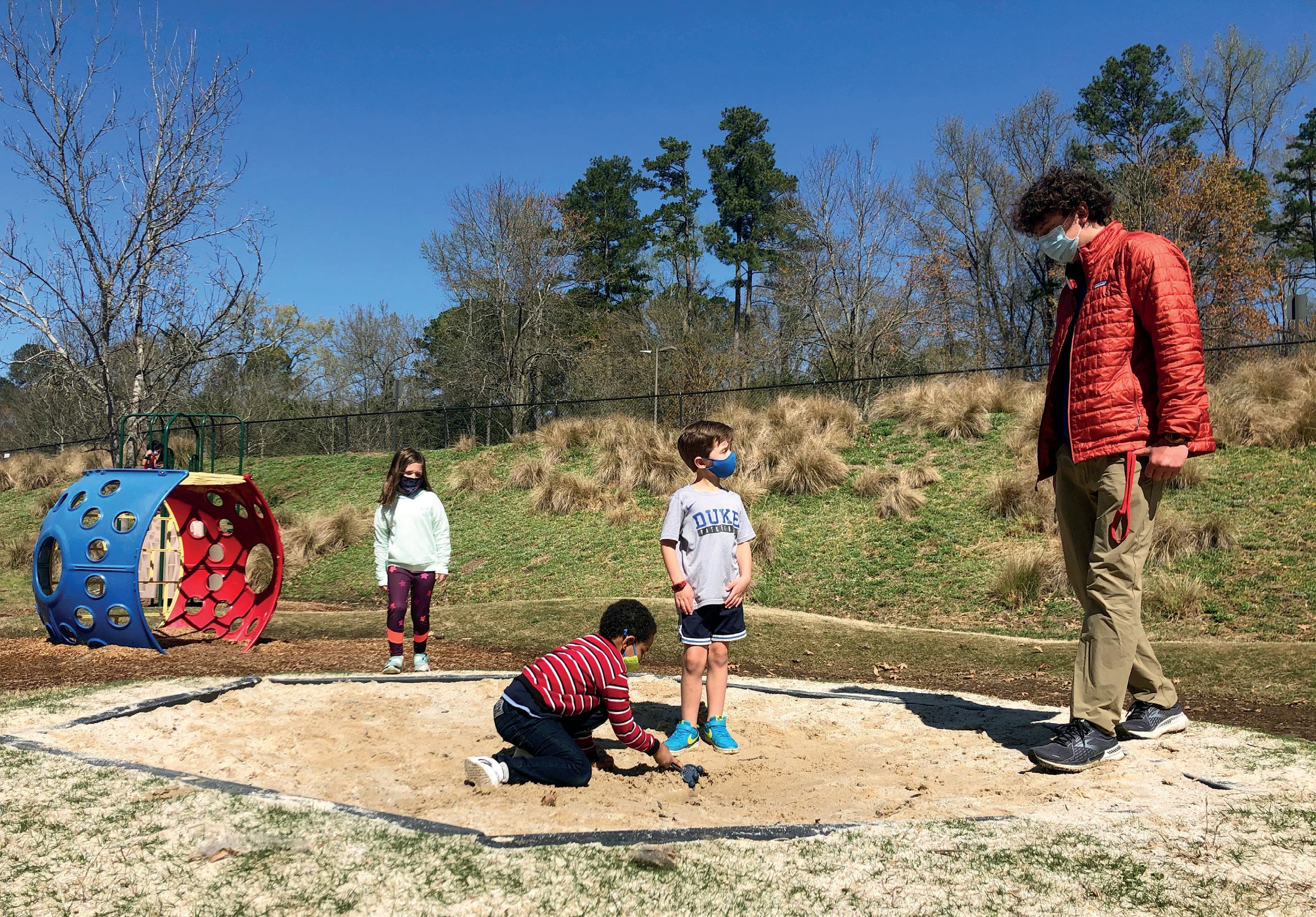
Story by Kathy McPherson // Photo by Melody Guyton Butts
Justin Warren ’15 played four years of varsity tennis at the University of Connecticut, but “DA tennis was probably my fondest time on the tennis court.” So when Durham Academy tennis coach Sean Bilsborrow ’94 asked Warren to help coach the varsity boys team, Warren’s answer was an enthusiastic “Yes!”
Warren had moved back to North Carolina after graduating from UConn with a degree in economics and human rights, and DA tennis was barely underway when COVID-19 halted the season in spring 2020.
“When COVID hit, we’d only gotten to play maybe one or two matches
that season, but we were able to stay connected throughout the summer with tennis being one of the only safe things you could do for a while,” Warren said. “It was always nice to be on the court with the guys. It’s nice now to really have a season, put in all that good e ort, good hard work and see the guys have that opportunity that kind of got robbed from them last year.”
Warren is one of at least 25 alumni who have been helping out at DA as their lives, like those of DA students, parents, faculty and sta , have been upended by the pandemic.
Warren balances a job with Red Hat — he works on talent acquisition for the firm’s internship program, focusing on diversity, inclusion and recruiting events — while helping Bilsborrow coach the DA varsity boys team. Warren attended DA from Preschool through Upper School, and his sister, Michaela, is a DA fourth-grader. With those long-standing ties to the school, he said he wants “to stay connected with my DA community.”
“Seeing these alumni engage with their alma mater is gratifying on so many levels,” Head of School Michael Ulku-Steiner said. “They are
simultaneously helping and imitating their own life-changing teachers. They are building their skills in real-life roles that — this year more than ever — make an immense di erence.
“They are o ering our students some useful bridges to the worlds that young adults inhabit, in college and beyond. I hope we will continue to expand this tradition of giving back and paying forward,” Ulku-Steiner added.
Another local DA alumna serving as an assistant coach this year is Emily Donaldson ’20, a standout debater at DA who qualified for the National Speech & Debate Association National Tournament three years in a row and finished in the top 12 in the country in the tournament’s Congressional (Senate) Debate event as a junior.
“I knew after four years of debating at Durham Academy that I really wanted to have that experience of giving back and coming back and just seeing the whole team from a di erent perspective,” Donaldson said.
As a first-year student at UNCChapel Hill looking to major in global international studies and double minor in French and sustainability studies, Donaldson said, “I would definitely be missing out if I wasn’t coaching [debate] this year. It’s just a new way of realizing how cool the DA community is and how much quality time can be spent with students and academic or extracurricular activities.”
Donaldson said Crawford Leavoy, director of DA’s speech and debate program, is “a very good mentor to me, both personally and as a debate coach” and knew she would continue to learn from him while helping coach the team.
While Will Norry ’20 was never a student in DA’s Preschool — he came to the school as a ninth-grader — he has found a home there this year. Norry expected to start classes at Grinnell College in Iowa this fall, but decided to take a gap year when the pandemic meant he would experience most or all of his first year of college remotely from North Carolina.
Norry is serving as an assistant with kindergarten and pre-k classes. “I
generally watch the kids while they go out on recess, either on the Preschool playground or the Lower School playground. I give the teachers a break and if they are not going out to recess, I help out in the classroom doing various things.”
Norry said he has “known for a while that I really enjoy working around kids and also I think education is something I’m really interested in as well.” As an Upper School student at DA, he volunteered as a first-grade buddy and helped with Lower School PE classes. In addition, he has served as a camp counselor in Western North Carolina.
The Lower School is familiar ground for Isabel Gutierrez ’17. Like Warren, she attended DA from pre-k through graduation and her mother, Michele Gutierrez, is the Lower School technology coordinator. That familiarity serves her well as she helps supervise students in the mornings at Lower School and in the afternoons is in charge of the first-grade cohort at Extended Day with her mom.
Working with young children does not particularly align with Gutierrez’s college studies — she graduated from N.C. Central University in May with a degree in environmental science with a concentration in geoscience and will return to NCCU for her master’s in earth science — but said “it was a good opportunity because it’s not far from where I go to school. I’m able to work and help at DA and also do my classes. I was able to balance it nicely.”
Director of Alumni Philanthropy and Engagement Tim McKenna said he’s grateful to Cavaliers who have pitched in to help at DA. “It is always great to have alumni on campus, but even more so this past year as we dealt with COVID,” he said. “The alumni who worked for us have played an integral part in the success of so many of our programs and o erings. I hope they have enjoyed being with our students as much as we have enjoyed having them here on campus.”
Class of 2020
Adam Astrachan, debate; Alex Bayer, tennis; Davis Beischer, soccer, basketball; Isaiah Caldwell, soccer, basketball, intern with DA sports information; Bennett Dombcik, debate; Madeleine Genova, speech; Katie Hunter, basketball; Adriana Kim, volleyball; Jacob Palmer, debate
Class of 2019
Justin Cobb, Upper School Chinese; Morgan Doyle, soccer; Roberto Escobar, soccer; Dianne Kim, debate; Sheridan Kum, virtual guest speaker, Upper School Chinese; Henry Rogers, virtual guest speaker, Mathematics of Finance
Class of 2018
Alexander Brandt, tennis
Class of 2017
Loften Deprez, debate
Class of 2016
Rohan Patel, debate
Class of 2015
Derek Brown, debate
Class of 2014
Catherine Yang, debate
Class of 2013
Jasmine Williams, virtual guest speaker, AP Spanish Language and Culture

Samantha Lanevi ’14 has an international background — her father is Swedish, her mother was born in Cuba, she was adopted from China when she was 6 months old and lived in Switzerland until she was 2-and-a-half — and she’s taking an international approach to pursuing a master’s degree in American history. The Wellesley College and Durham Academy graduate will attend England’s University of Cambridge for her Master of Philosophy in American History, and she has been awarded a fellowship from Wellesley to help fund her study.
“I spent a lot of time in Sweden and traveling around Europe, and it’s a place I really wanted to go back to,” Lanevi explained. “So when I was thinking about graduate school, I was looking at going abroad. Since my focus is on American history, people would say that it would be a good idea to do it in America. But I think in order to get another perspective — I’ve done all my education in the United States — I really wanted to try something new and get some di erent experiences. … You know, I’m turning 26 at the end of the year, so there’s really no time like the present to really take those sorts of opportunities.”
Studying at Cambridge will provide “an opportunity to see if I want to pursue further study or if I’d like to live and work in the United Kingdom or if I want to come back to the U.S. or to New York. I think it’s sort of a time when I don’t really know what’s going to happen next, and I feel fortunate to be able to have that opportunity, to sort of be in that position to not know. I’m not sure if I’ll pursue doctoral work or pursue a law degree or if I’ll go back into the workforce.”
Lanevi’s research topic will be white Southern women during the antebellum period, and she is looking at those women in a way that’s di erent than might be expected.
“Women in that period, we think of them as having little to no agency. They were sort of housewives or support systems for soldiers fighting on both sides of the war. But in actuality, there were a lot of women who had a lot of power in those times.”
There were women who were slaveholders, women whose husbands “married up” and gained wealth and social power via their wives, Lanevi said. There were also women who were spies for both sides of the Civil War as well.
“I’m going to take that narrative of these women who actually had and exercised a lot of agency. I’m going to connect that to the civil rights era, where you had the murder of Emmett Till, which is something that we had discussed on the Civil Rights Tour at DA. How you have this woman whose false accusation led to his [Till’s] murder, so she wielded her femininity in that way, and then connecting that to the present day when you have these false accusations against Black men by white women.”
Story by Kathy McPherson
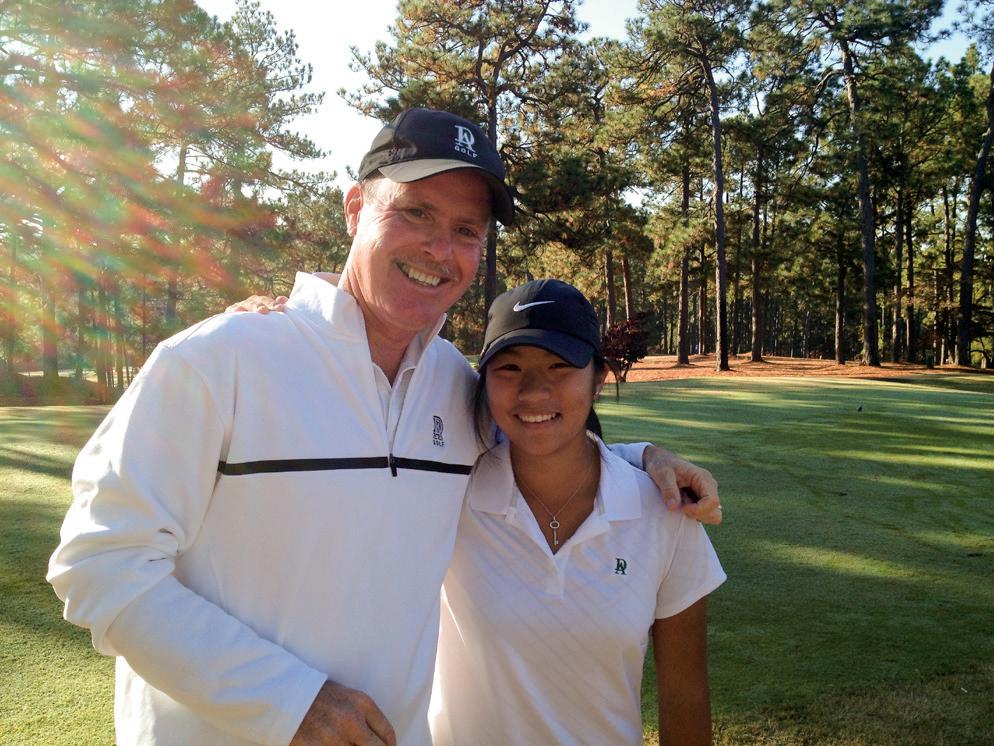
Citing the May 2020 viral confrontation between Central Park birdwatcher Christian Cooper, a Black man, and Amy Cooper (no relation), a white woman who was charged with filing a false police report for calling 9-1-1 to report being threatened when Christian repeatedly asked her to comply with park requirements and leash her dog, “all these other cases that are happening right now, that’s something that started in the antebellum period and has continued forward,” Lanevi said. “So that’s the main focus of my research.”
When she heads to Cambridge this fall to begin her studies, Lanevi will be leaving a job in Manhattan with Spink, a London-based numismatic auction house that was founded in 1666. She explained that Spink primarily deals with small collectibles such as coins, stamps, bank notes, commemorative medals and military medals. Lanevi joined Spink in December 2018 as a member of the auction team, took on responsibilities with finance and operations, and is now one of the main people running sales in the New York o ce.
She has dealt with military uniforms on mannequins, porcelain and Fabergé eggs. “It’s definitely been a crash course in how to package something that’s very fragile and very expensive and have it go to far reaches of the country and the world.”
Lanevi’s passion for history began in DA’s fifth-grade history class taught by Virginia Reves Hall ’91. “That was the first o cial history class I’d ever taken. I remember really loving it.” She wrote her first research paper, complete with footnotes, in Betsy Brown’s seventh-grade history class. But she said it was Upper School history teacher Mike Spatola who had the most impact on her history studies.
“I had Western World [history] with him, then I did two electives with him and I took AP Gov — four classes with Mr. Spatola. He really taught me everything that I needed to
know to be a really good history student,” Lanevi recalled. “We did seminars where you had to cite a piece of evidence every time you spoke. It was a graded, student-run class discussion. Which was terrifying as a 10th-grader, to be told OK, here’s the topic, here are the sources. You’re supposed to just facilitate your own discussion. …
“The discussions that we had in AP Art History, and then I took his [Jordan Adair’s] Artistic and Literary Response to War my senior year. That was probably one of the best classes I have ever taken at DA or at Wellesley, just the level of discussion we had, watching di erent films, discussing the films.”
— Samantha Lanevi ’14
“I have no doubt that really helped me at Wellesley. One of my professors actually commented that I was one of the best students he had in terms of picking out source material and integrating it into my prose for my papers. I 100% credit Mr. Spatola with teaching me how to do that.”
Classes she took with Upper School English and AP Art History teacher Jordan Adair were also pivotal for her. “The discussions that we had in AP Art History, and then I took his Artistic and Literary Response to War my senior year. That was probably one of the best classes I have ever taken at DA or at Wellesley, just the level of discussion we had, watching di erent films, discussing the films,” she said.
“And then on top of that, being part of the Veterans History Project [an oral history project in conjunction with the Library of Congress], bringing in veterans every couple of weeks. I remember Joe Collie [World War II veteran and DA alumni parent and grandfather] came to speak with us. He was one of the first veterans we had come to speak with us. It was such a tremendous opportunity to be able to learn about it, read the di erent books, watch the di erent films, have people come in who had actually lived the experience that we were learning about, and then putting that all together at the end of the year with the Veterans History Project. My friend Riley and I interviewed Brian Knowles, who I believe was a Marine. Just being able to have that multidimensional learning experience was very helpful for me. I have no doubt that DA had a tremendous impact on going to Wellesley, being successful at Wellesley and then moving forward to Cambridge.”
While academics were obviously important, Lanevi said being a part of the golf team was also a tremendously important part of her DA experience. She was a co-founder of the DA girls golf team and played on the team for three years. The DA team won back-to-back conference championships and earned back-to-back runner-up honors at the state tournament her junior and senior years.
Lanevi came home to North Carolina for a few months after graduating from college and helped Greg Murray coach the girls golf team. “Just to be able to see how the team had grown and progressed since I had started it in 2012 was something that was really special and something that I’m really, really proud of. … Just knowing that I was able to do that, in part because of Mur [Coach Greg Murray] and also because of Mr. Engebretsen [then Director of Athletics Steve Engebretsen]. If it wasn’t for Mr. Engebretsen finding the funds and supporting the team, that would not have been possible. That’s something I’ll always be very thankful to DA for making that possible.”


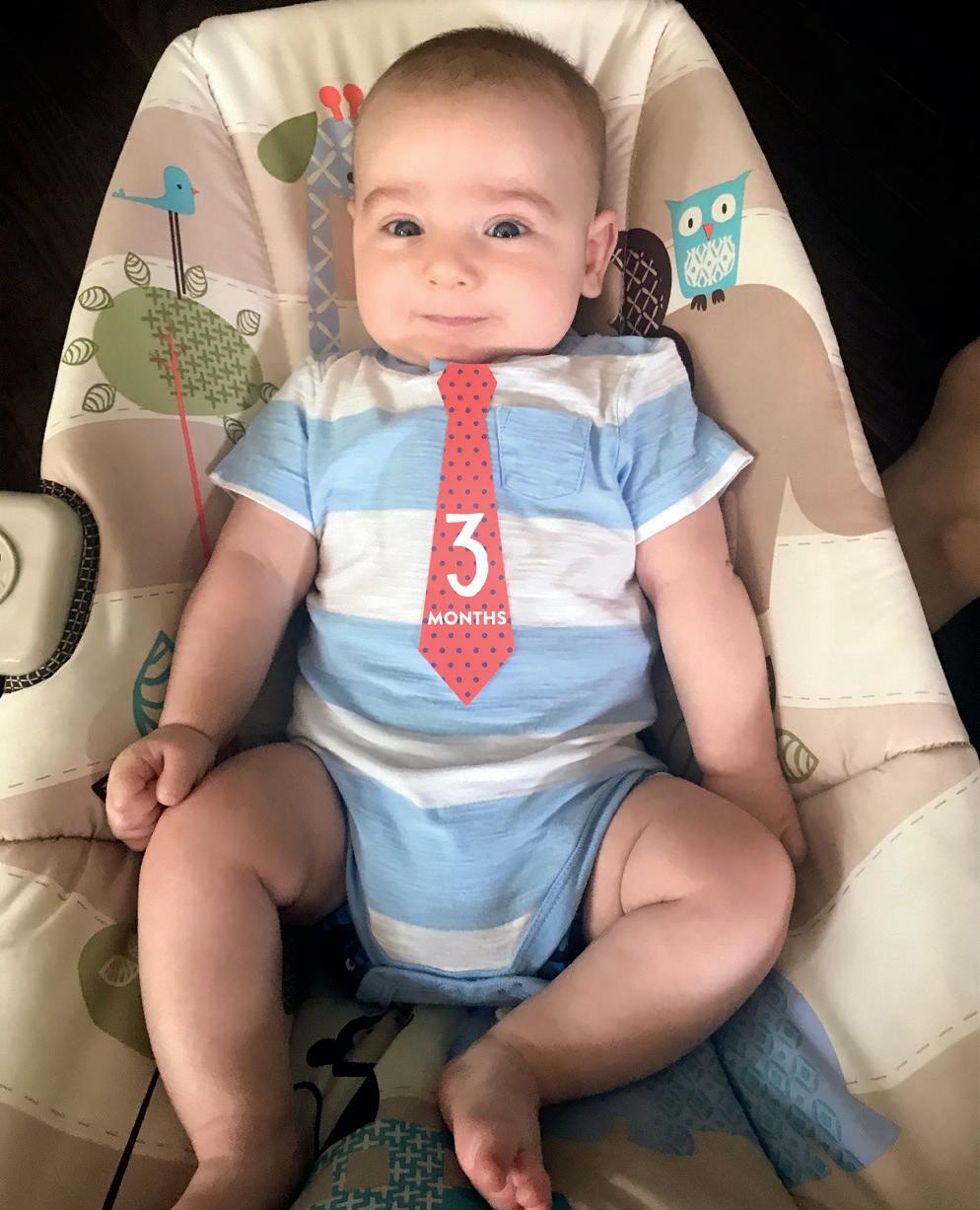


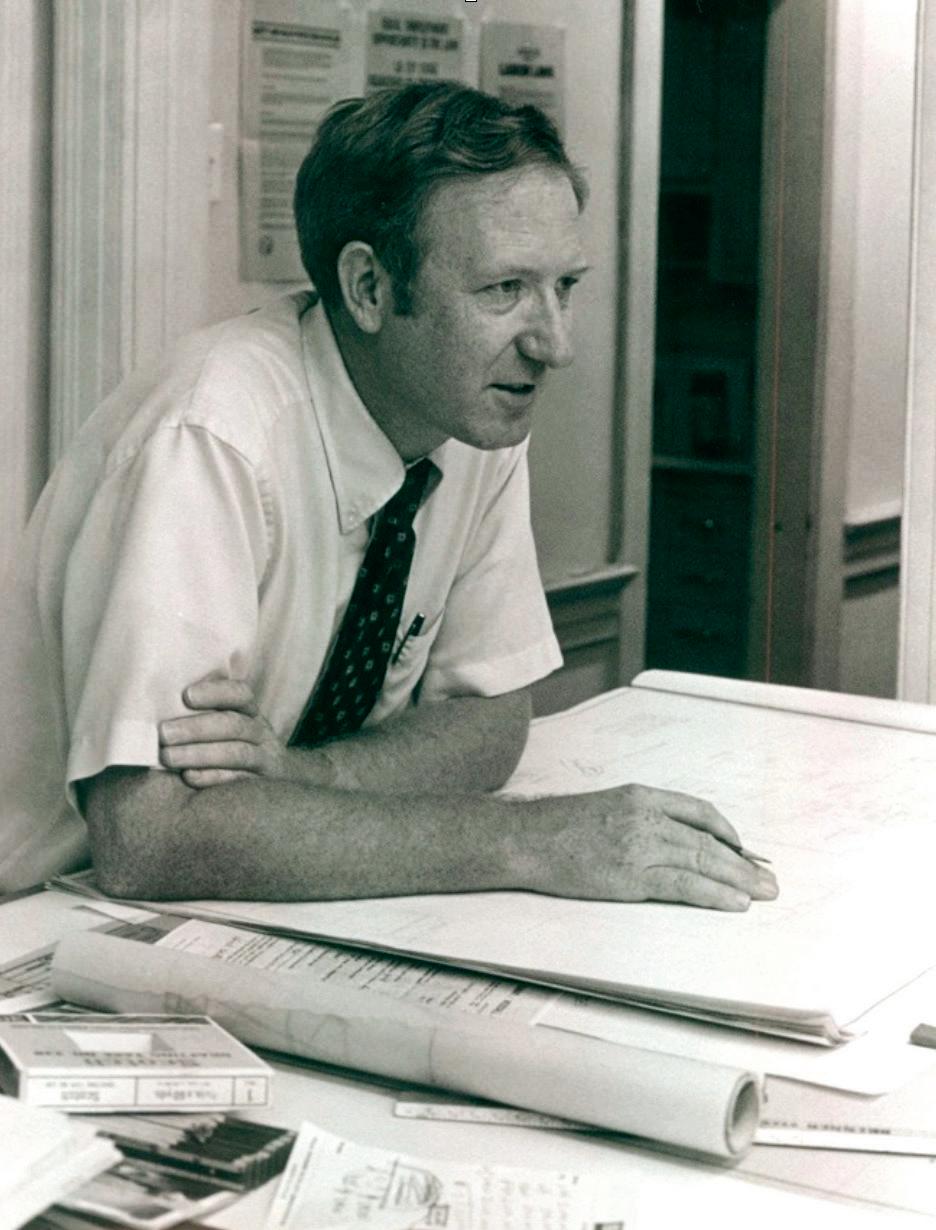
Max Isley, who died Feb. 17, was the original architect of the Academy Road and Upper School campuses as well as the father of four Durham Academy alumni.
Brought in to design a school for the new Academy Road campus in 1964, Isley was tasked with designing a school that included classrooms and accommodations for kindergartners through eighth-graders, a library, an assembly room, administrative o ces, a small gymnasium/auditorium and an outdoor recreation area. The result was a campus that he described as having a “residential personality” and proved to be his favorite project at DA.
“It had to be built economically without sacri cing quality,” Isley said in a story for Durham Academy Magazine’s summer 2018 issue. “My main priority was to create a ‘home away from home’ ambiance, so that the little ones, especially, felt a sense of security entering their classroom from a landscaped ‘yard’ through a ‘front door.’ ”
Five years after the Academy Road campus opened, DA announced in December 1971 that it was planning to build a $1.1 million Upper School on 42 acres at Ridge and Pickett Roads. Once again, DA turned to Isley, who replicated many of the same features that had been successful at Academy Road.
“Among additions was an auditorium/theatre complex,” he said. “The gymnasium was much larger with more amenities and outdoor playing elds accommodated a variety of events. Again, with plenty of space, I was able to create a high school campus on Ridge Road with the desired indoor/outdoor dynamics of the Academy Road school."

Robert S. Berry ’77, a physician who was a voice in the national debate about health care reform, died Dec. 28, 2020. He opened a clinic in Greeneville, Tennessee, in 2001, leaving emergency room medicine to provide care to individuals without health insurance. Berry expressed his concerns about the healthcare system and shared the bene ts he saw in the insurance-free, fee-for-service model. He was the focus of a front-page article in the Wall Street Journal in 2003; testi ed before a Joint Economic Committee of Congress in 2004; shared his experiences a few years later on two national television news programs; and was recognized in an editorial in World magazine. A graduate of N.C. State University and UNC School of Medicine, Berry earned a Graduate Diploma in Christian Studies from Regent College in Vancouver, B.C. He is survived by his wife of 27 years, Blair; two daughters, Margaret and Bekah; two sisters, Marki Berry Davis and Ann Berry Holladay; and a brother, Johnny Berry.
Margaret Stone Berry May died March 20, 2021. She served as the executive secretary for Durham Academy’s headmaster, who referred to her as his advisor and vice principal. She graduated from the Greensboro College for Women and in 1946 married her high school sweetheart, John Berry, who died in 2005. She married Frank May in 2015, and they lived together until his death over a year later. She was accomplished in golf, tennis and bridge; was interested in landscaping, interior design, houses and architecture; and obtained a real estate license. Despite her immaculate landscaping, she didn’t hesitate to build a large, paved eyesore of a basketball court in the backyard for her sons, and they were even allowed to mow the grass in the shape of golf holes. She is survived by two daughters, Marki Berry Davis and Ann Berry Holladay, and a son, Johnny Berry. She was predeceased by her son Robert Berry.
3601
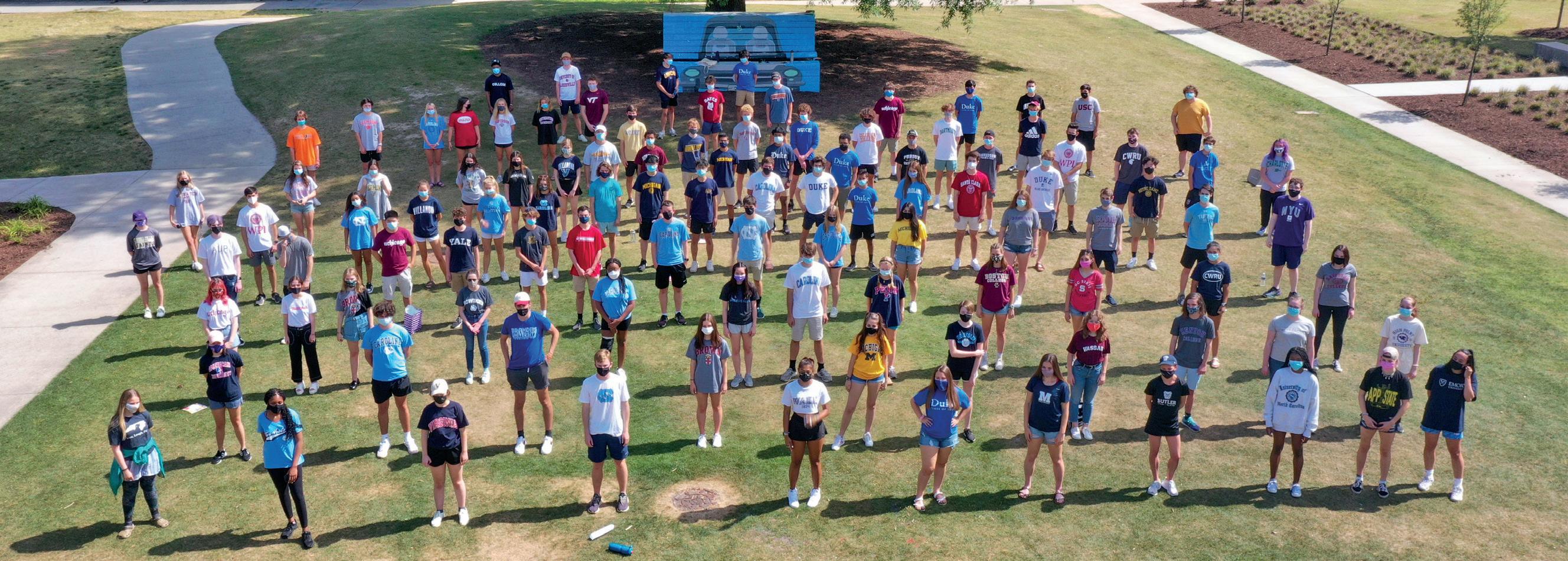
Congratulations, Durham Academy Class of 2021! We wish you continued success in your future endeavors:
American University
Amherst College
Appalachian State University
Arizona State University
Bates College
Boston College
Bowdoin College
Brandeis University
Brown University
Brown University-Rhode Island School of Design Dual Degree Program
Butler University
Carroll College
Case Western Reserve University
Clemson University
Colorado College
Dartmouth College
Davidson College
Dickinson College
Duke University
East Carolina University
Franklin & Marshall College
Georgia Institute of Technology
Gettysburg College
Hampden-Sydney College
High Point University
Kenyon College
Landmark College
Middlebury College
Morehouse College
New York University
North Carolina State University
Northeastern University
Oxford College of Emory University
Purdue University
Santa Clara University
The American University of Paris
The New School-Parsons School of Design
Tufts University
University of Chicago
University of Colorado Boulder
University of Louisville
University of Miami
University of Michigan
University of Nevada, Las Vegas
University of North Carolina at Asheville
University of North Carolina at Chapel Hill
University of North Carolina at Charlotte
University of North Carolina at Greensboro
University of North Carolina School of the Arts
University of Notre Dame
University of Pennsylvania
University of Richmond
University of South Carolina
University of Southern California
University of Vermont
University of Virginia
University of Wisconsin-Madison
Vassar College
Villanova University
Virginia Polytechnic Institute and State University
Wake Forest University
Wellesley College
Worcester Polytechnic Institute
Yale University